What Size Yacht Requires a Crew? (For Different Lengths)
While smaller yachts can be operated by a single person, larger yachts require a trained crew to operate them safely. Different types of yachts also have different crew needs, which can depend on the yacht's size, features, and intended use. In this article, we'll let you know what size yacht requires a crew, and how many crew are needed for different types and lengths of yacht.
Yachts that are over 30 feet in length require a crew to operate them safely. A yacht that is 100 feet in length requires a crew of at least four to six people, including a captain, engineer, stewardess, and deckhand. Meanwhile, yachts that are under 30 feet in length can be operated by a single person.
Recreational yachts are typically smaller and used for leisure activities like fishing, cruising, and water sports. Since these yachts are usually 30 feet or smaller, they can be operated by a single person without a crew. Let's see how many crew members are needed for other types of yachts.
- If the yacht is under 30 feet and is being used for recreational cruising, a crew of two is usually sufficient.
- A 90-foot yacht with multiple decks and luxury amenities may require a crew of 8–12 people, including a captain, first mate, chef, stewardess, and deckhand.
- For sailing yachts between 30 and 50 feet, a crew of four to six is typically required.
- A small superyacht may have a crew of around 20 people, while a larger one may require a crew of 50 or more.
- The cost of hiring a full-time yacht crew can range from $50,000 to $200,000 per crew member per year.
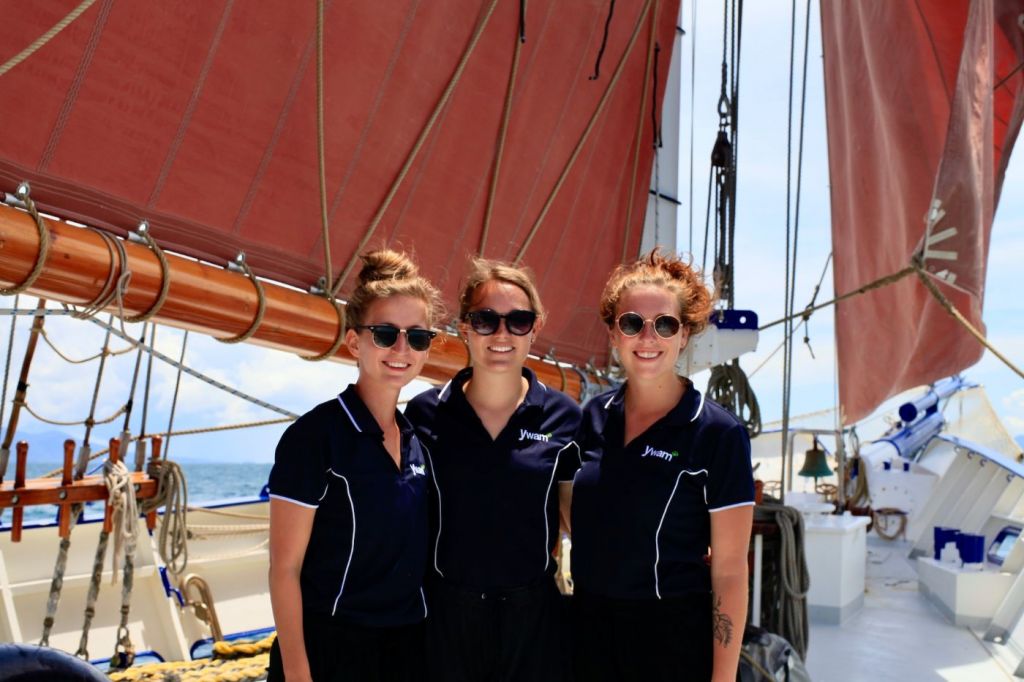

On this page:
Crew requirements for different yacht sizes, yacht types and their crew needs, the cost of hiring a yacht crew and the role of each member.
The size of the yacht is a key factor in determining whether you will need a crew and how many crew members you will require. Below is a table summarizing the crew size requirements for different yacht sizes:
| 1-2 | |
| 2-3 | |
| 3-4 | |
| 4-5 | |
| 5-6 | |
| 6-8 | |
| 8-10 | |
| 10-12 | |
| 12-15 | |
| 15-20 | |
| 15-20 | |
| 20-30 | |
| 30+ |
Crew size for yachts under 30 feet
Yachts that are under 30 feet in length are generally small enough to be operated by a single person. However, you still need to have some experience and knowledge of boating to operate them safely. It is also recommended to have at least one additional person on board for safety reasons.
If the yacht is being used for recreational cruising, a crew of two is usually sufficient. You may also need to obtain a recreational boating license depending on your location.
Not sure how to get a boating license? Find which state you're in and get a boating license here.
Crew size for yachts between 30 and 75 feet
Yachts that are between 30 and 75 feet in length may require a crew. These yachts are designed to be operated by a small crew or a couple, with one person serving as captain and the other as crew.
If you have experience and the yacht has upgraded features like autopilot, you may be able to captain your own yacht without a crew. However, if you are new to yachting or the yacht has more advanced features, you may need to hire a crew.
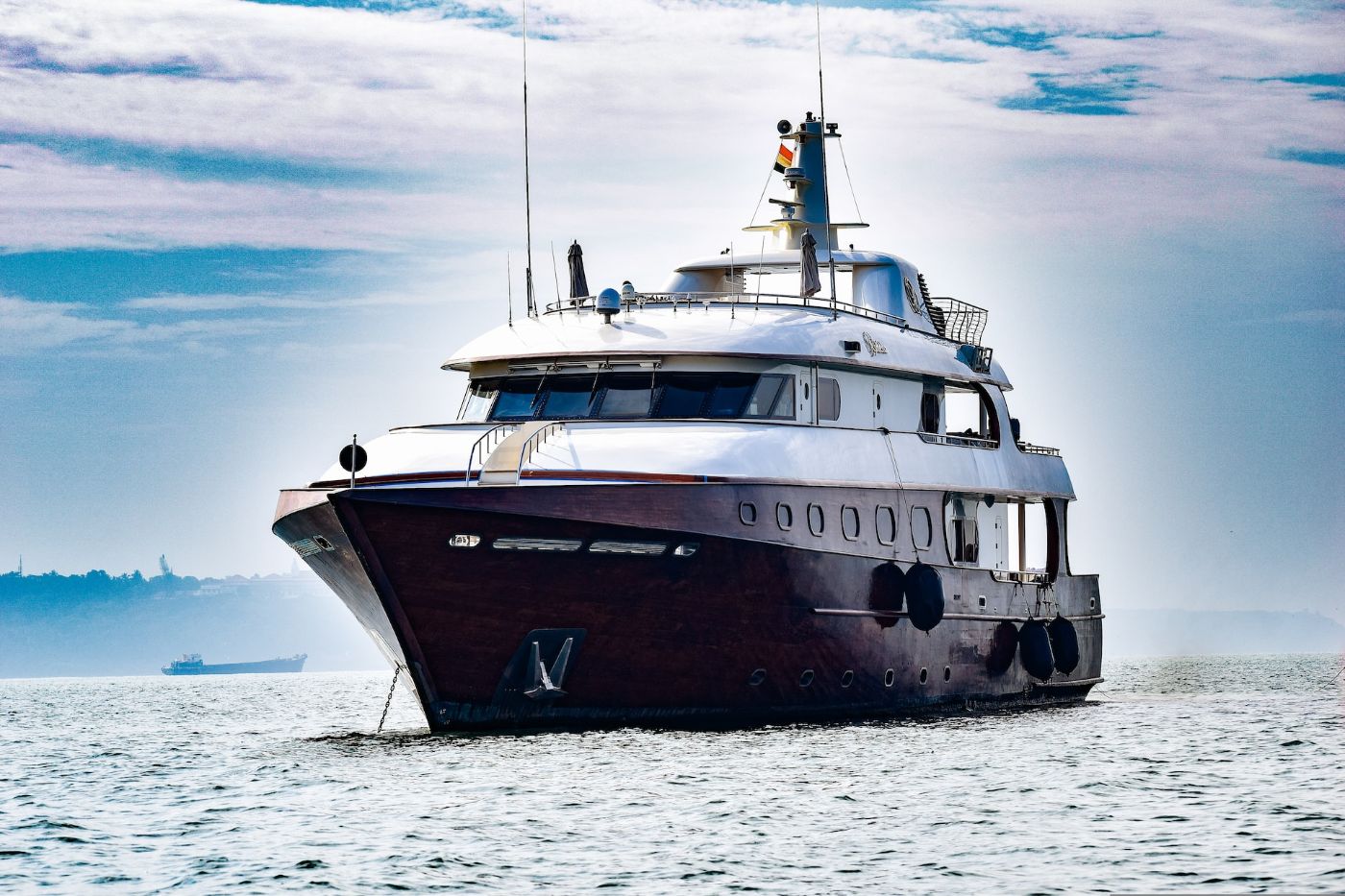
For recreational cruising, a crew of two to four people is usually sufficient . For larger yachts, there may be additional crew members such as a chef, stewardess, or engineer.
Crew size for yachts over 75 feet
Yachts that are over 75 feet in length generally require a crew to operate them safely. The exact number of crew members you will be based on the size and features of the yacht.
- A 90-foot yacht with multiple decks and luxury amenities may require a crew of 8-12 people, including a captain, first mate, chef, stewardess, and deckhand.
- A 100-foot yacht with advanced navigation and communication systems may require a crew of 10-15 people, including a captain, engineer, deckhand, chef, stewardess, and possibly a security officer.
- A 120-foot yacht with a helicopter pad, swimming pool, and other high-end features may require a crew of 12-20 people, including a captain, engineer, deckhand, chef, stewardess, helicopter pilot, and other specialized staff as needed.
Crew size for yachts over 300 feet
Bigger yachts require more crew members because they tend to be more complex and have more systems and equipment that need to be maintained and operated. Additionally, larger yachts typically have more amenities and features that require specialized staff, such as spa therapists, dive instructors, and security personnel.
A yacht that is 300 feet or more in length may have multiple decks, a helipad, a swimming pool, a movie theater, a gym, and other luxurious amenities that require a larger crew to operate and maintain.
In addition, larger yachts may require more crew members to ensure the safety of the guests and the vessel, especially when navigating in challenging waters or during adverse weather conditions. Larger yachts also often provide a higher level of service, which requires more crew members to ensure that every guest's needs are met.
Different types of yachts have different crew needs, which can depend on the yacht's size, features, and intended use. Here's what you need to know about yacht types and their crew needs:
| 20-100 ft | Personal use, weekend trips, fishing | ||
| 30-200 ft | Racing, cruising, adventure, exploration | ||
| 100-500 ft | Luxury, entertainment, social events | ||
| 50-300 ft | Charter, tourism, research | ||
| 50-200 ft | High-end amenities, personal service |
Crew size for recreational yachts
Recreational yachts are typically smaller and used for leisure activities like fishing, cruising, and water sports. Yachts that are 30 feet or smaller can usually be operated by a single person without a crew.
However, larger recreational yachts, like those in the 50-100-foot range, may require a small crew for maintenance and management.
Crew size for sailing yachts
Sailboats are a popular type of yacht used for racing, cruising, and exploring. For sailing yachts between 30 and 50 feet, a crew of four to six is typically required. This crew would include a captain, a first mate, a cook, and one or two deckhands.

For yachts over 50 feet, the crew size can range from six to 20 or more. This is because some yachts may also have additional staff, such as a chef, a stewardess, and a masseuse. These staff members are typically hired to provide luxury services to guests onboard.
One of the hidden costs of buying and owning a 50-foot yacht is the costs for staff and crew, which ranges around $50,000 - $150,000 per year.
Crew size for superyachts
Superyachts are the largest and most luxurious yachts on the market, typically measuring over 100 feet in length. A small superyacht may have a crew of around 20 people, while a larger one may require a crew of 50 or more.
Larger superyachts with more amenities and more guests on board will require a larger crew to ensure that all aspects of the vessel are properly maintained and operated. The team will typically include a captain, first mate, engineer, chef, stewardesses, deckhands, and other specialized roles depending on the yacht's amenities.
Some owners may prefer a smaller crew to maintain a more intimate and personalized experience, while others may opt for a larger crew to ensure that all tasks are handled efficiently and to the highest standard.
Crew size for commercial yachts
Commercial yachts are required to have a crew size that is appropriate for the size and type of the vessel, as well as the number of passengers on board. The crew size can vary greatly depending on the yacht's size, amenities, and intended use.
In general, larger yachts will have a larger crew, while smaller yachts may only require a few crew members. For example, a small yacht that is used for day trips or short-term charters may only require a captain and a mate. However, a larger yacht used for extended charters or as a luxury hotel at sea may need a larger crew.
The crew size for commercial yachts is regulated by various maritime authorities, such as the International Maritime Organization (IMO) and the United States Coast Guard (USCG). These authorities have established minimum crew requirements based on the size and type of the yacht, as well as the number of passengers on board.

Based on USCG requirements, a commercial yacht that is less than 100 gross tons and carries up to 12 passengers must have at least one licensed captain and one crew member. If the yacht carries between 13 and 36 passengers, it must have at least two licensed crew members. For yachts that are over 100 gross tons, the crew size requirements will be higher.
A captain license costs around $700 - $800 , but this may vary according to the country as well as potential extras you might need to purchase.
Crew size for luxury yachts
Luxury yachts are designed for comfort and style, typically featuring high-end amenities like spas, gourmet kitchens, and entertainment systems.
Luxury yachts require a larger crew because they are typically larger, more complex, and more luxurious than other types of boats. A larger crew is necessary to ensure that everything runs smoothly and that the guests have an enjoyable and comfortable experience on board.
Here are some of the reasons why luxury yachts require a crew of 10-30 persons:
Safety: A larger crew is necessary to ensure the safety of the guests and the yacht. The crew must be trained and experienced in handling emergency situations, such as fires, medical emergencies, and adverse weather conditions.
Navigation: Luxury yachts require a skilled crew to navigate the vessel safely and efficiently. The captain and crew must be familiar with the yacht's systems, equipment, local waterways, and navigation rules.
Maintenance: Luxury yachts require constant maintenance to keep them in top condition. A larger crew is necessary to perform routine maintenance tasks, such as cleaning, painting, and repairing the yacht's systems and equipment.
Service: Luxury yachts are known for their high level of service and hospitality. A larger crew is necessary to provide guests with personalized service, including gourmet meals, housekeeping, and other amenities.
Entertainment: Luxury yachts often have a variety of entertainment options, such as water sports equipment, movie theaters, and music systems. A larger crew is necessary to operate and maintain these amenities, as well as to provide instruction and assistance to the guests.
The cost of hiring a full-time yacht crew can range from $50,000 to $200,000 per crew member per year. This includes their salary, benefits, and any other expenses associated with their employment, such as training and uniforms.
Here's a breakdown of the average annual salaries for different yacht crew positions:
| $80,000 - $300,000 | |
| $60,000 - $120,000 | |
| $50,000 - $120,000 | |
| $35,000 - $80,000 | |
| $60,000 - $150,000 | |
| $30,000 - $55,000 |
The roles and responsibilities of the captain
- Responsible for the overall operation of the yacht including navigation, safety, and communication with other vessels
- Must have extensive knowledge of waterways
- Must make quick decisions in case of emergency
- Must hold valid Merchant Mariner Credential (MMC) issued by USCG
- For yachts over 100 gross tons, a captain must hold a USCG license for appropriate tonnage and route
- May need to hold specific endorsements, such as a towing endorsement or a radar observer endorsement
The roles and responsibilities of the captain engineer
- Responsible for mechanical systems on board the yacht such as engines, generators, and other equipment
- Must have a good understanding of how systems work
- Troubleshoots problems that arise
- Works closely with the captain and other crew members
- May be responsible for managing inventory and ordering spare parts and supplies
The roles and responsibilities of the stewardess
The stewardess is the first point of contact for guests and they are responsible for the following:
- Greet guests warmly and show them to their cabins
- Provide information about the yacht and its amenities, as well as local attractions and activities
- Clean and maintain guests' cabins
- Make beds and ensure fresh towels and linens
- Responsible for serving meals and drinks, setting the table, and clearing dishes
The roles and responsibilities of the deckhand
The deckhand is an entry-level position on a yacht and they work under the supervision of the first mate. They are responsible for a variety of tasks such as:
- Cleaning the yacht and handling lines and fenders
- Assisting with navigation and docking
- Maintaining the exterior of the yacht, such as washing and waxing the hull, cleaning the decks and windows, and maintaining the yacht's equipment and machinery
The roles and responsibilities of the chef

- Responsible for providing exceptional culinary experiences for guests
- Plans menus, prepares meals and manages galley and kitchen area
- Plans menus that meet the dietary preferences and restrictions of guests
- Creates menus for breakfast, lunch, and dinner, as well as snacks and appetizers
- Responsible for provisioning the yacht with fresh ingredients and supplies
- Prepares high-quality meals and presents them well
- Manages galley and kitchen area, including cleaning and maintaining the kitchen, managing inventory and ordering supplies, and ensuring that all equipment is in good working order
The roles and responsibilities of the first mate
- Considered as the second in command on a yacht
- Works closely with the captain to ensure the safe operation and navigation of the boat
- Responsible for managing crew and overseeing day-to-day activities on board
- Assists captain with navigation and piloting of yacht
- Monitors weather conditions, charts courses, and ensures the yacht is on track and avoiding potential hazards
- Manages crew and delegates tasks as needed
- May be responsible for scheduling and coordinating crew shifts, managing inventory and ordering supplies, and ensuring that the yacht is clean and well-maintained
- May serve as liaison between guests and captain, ensuring that their needs are met and that they have an enjoyable experience on board
The roles and responsibilities of the second mate
- Assists captain and first mate in navigation and operation of yacht
- Maintains the yacht's navigational equipment, including GPS, radar, and other electronic devices
- Ensures all charts and publications are up-to-date and that any necessary corrections or updates are made.
Leave a comment
You may also like, at what size is a boat considered a yacht (does size matter).
As a yacht enthusiast, it can be exciting to explore the numerous options available to you. Size does matter, but it is equally essential to consider the yacht's …

Do I Need a License to Drive a Boat? (Clear Info for 50 States)

Do You Need a License to Sail Around the World?

How Much Does It Cost To Get a Captain's License?
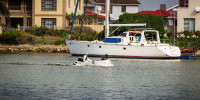
Cost of Buying & Owning a Small Yacht (Detailed Breakdown)

What Size Yacht Requires a Crew? Here’s What You Need to Know
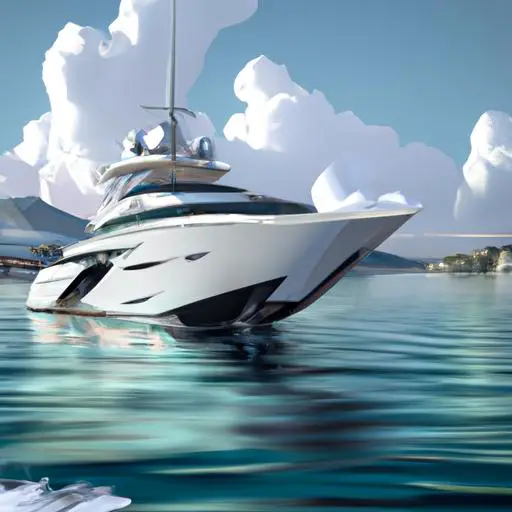
Do you dream of owning your own luxury yacht? Are you wondering what size yacht requires a crew and what kinds of responsibilities the crew members have? Whether you are just beginning to plan your yacht purchase or are a seasoned boat owner, this article will provide you with valuable information about the types of crew members, their responsibilities, and the benefits of having a crew on a yacht.
You will also learn how to choose the right crew for your yacht, considerations for hiring a crew, and how to properly care for your yacht crew .
So, let’s dive in and explore the exciting world of yachting!.
Table of Contents
Short Answer
Yachts that are over 30 feet in length generally require a crew to operate them safely.
This is because larger yachts typically require more maintenance and management than smaller ones, and without a trained crew, they can be difficult and dangerous to operate.
Some yacht owners opt to employ a full-time crew, while others may hire part-time or seasonal help depending on their needs.
What is the Definition of a Yacht?
When it comes to understanding what size yacht requires a crew, its important to first define what a yacht is.
A yacht is a large, luxurious vessel that is typically used for pleasure trips.
Yachts are typically motorized, and can vary greatly in size and design.
They may be used for leisurely cruises, racing, or any other type of recreational activity.
Yachts can range from small, open-deck vessels to large, multi-deck superyachts.
Generally, yachts over 80 feet in length are considered to be large enough to require a crew for operation.
The size of yacht that requires a crew depends on the size of the vessel, its intended purpose, and the needs of the owner.
Large yachts may require a larger crew to operate and manage the vessel, while smaller yachts may only need one or two crewmembers.
The crew will typically consist of a captain, engineer, mate, deckhand, steward or stewardess, and chef.
The captain is responsible for the navigation and operation of the yacht, as well as overseeing the other crewmembers.
The engineer is responsible for the maintenance and repair of the yacht.
The mate is responsible for deckhand duties such as cleaning and painting.
The deckhand is responsible for assisting the mate with various tasks.
The steward or stewardess is responsible for housekeeping and other guest services.
The chef is responsible for preparing meals for the guests.
Overall, the crewmembers are responsible for the day-to-day operation of the yacht, including navigation, maintenance, and housekeeping.
They are also responsible for providing a safe and enjoyable experience for the yacht’s guests.
Depending on the size of the yacht, the crew may also be responsible for additional tasks such as security, entertainment, and other services.
What Size Yacht Requires a Crew?

When it comes to yachts, size definitely matters.
If you want to enjoy the luxury of sailing the open seas, you’ll need to consider if a crew is necessary.
Generally speaking, yachts over 80 feet in length require a crew to operate.
Larger yachts may require a larger crew depending on the needs of the owner.
When it comes to crewmembers, they can include a captain, engineer, mate, deckhand, steward or stewardess, and chef.
These crewmembers are responsible for the day-to-day operation of the yacht, including navigation, maintenance, and housekeeping.
Additionally, they are responsible for providing a safe and enjoyable experience for the yacht’s guests.
The captain is typically the most experienced member of the crew and is in charge of all operations on the yacht.
The engineer is responsible for the maintenance and repair of the yachts mechanical systems.
The mate is responsible for navigation and safety, as well as assisting the captain with tasks.
The deckhand is responsible for taking care of the exterior of the yacht, such as cleaning, painting, and polishing.
The steward or stewardess is responsible for providing hospitality services to the guests, such as serving food and drinks.
Lastly, the chef is responsible for preparing meals for the guests.
Having a crew onboard a yacht is beneficial for many reasons.
A crew ensures that the yacht is operated safely, efficiently, and with the utmost care.
They also provide a level of luxury and convenience that many yacht owners desire, such as gourmet meals, drinks, and recreational activities.
Furthermore, having a crew onboard can help to alleviate stress and anxiety, allowing the yachts owner to focus on enjoying the voyage.
In conclusion, yachts over 80 feet typically require a crew to operate.
Depending on the size and needs of the yacht, the crew can include a captain, engineer, mate, deckhand, steward or stewardess, and chef.
Having a crew onboard provides a level of luxury and convenience that many yacht owners desire.
Furthermore, a crew ensures that the yacht is operated safely and efficiently.
Types of Crew Members and Their Responsibilities
When it comes to operating a yacht over 80 feet in length, a crew is necessary.
The size and number of the crew will depend on the needs of the yachts owner, as well as the size and type of yacht.
Common crew members can include a captain, engineer, mate, deckhand, steward or stewardess, and chef.
Each crew member has a unique set of responsibilities that are essential for the successful operation of the yacht.
The captain is the leader of the crew and is responsible for the overall safety, navigation, and maintenance of the yacht.
They must have the appropriate qualifications and experience to safely navigate the vessel and its passengers.
The captain is also responsible for ensuring that the yacht complies with all applicable laws and regulations.
They are often the main point of contact between the yacht and any authorities.
The engineer is responsible for the maintenance and upkeep of the yacht.
They must be knowledgeable in all aspects of the yachts mechanical and electrical systems, including engines, generators, and other onboard systems.
They are also responsible for troubleshooting and repairing any issues that may arise.
The mate is responsible for assisting the captain with navigation, maintenance, and other duties.
They must have an understanding of the vessels systems and be able to take the helm in the captains absence.
The deckhand is responsible for maintaining the exterior of the yacht.
This includes cleaning, polishing, and waxing the hull, decks, and exterior surfaces.
They must also be knowledgeable in the use of deck equipment, such as winches, windlasses, and mooring lines.
The steward or stewardess is responsible for housekeeping duties on board the yacht.
This includes cleaning and maintaining the interior of the yacht, as well as preparing meals and drinks for the guests.
The chef is responsible for preparing meals for the guests and crew.
They must be knowledgeable in all aspects of food preparation and presentation, as well as food safety and hygiene.
These are the typical crew members of a yacht over 80 feet in length.
Each crew member is responsible for ensuring the safe operation of the yacht and providing a pleasant and enjoyable experience for the guests.
An experienced and knowledgeable crew is essential for the successful operation of any yacht.
Benefits of Having a Crew on a Yacht

Having a crew on a yacht is an invaluable asset for any yacht owner.
A crew can provide a variety of services and benefits that can greatly enhance the experience of owning a yacht.
Having a crew on board can increase the safety of the yacht and its passengers.
A crew can help to navigate the yacht through unfamiliar waters, as well as handle any emergencies that may arise.
A well-trained crew can also help to maintain the yacht, ensuring that it is running at optimal performance.
In addition to safety, a crew can also provide a more enjoyable experience for those on board.
A crew can be responsible for housekeeping and meal preparation, freeing up the owner and guests to relax and enjoy the journey.
A crew can also help to organize activities, such as fishing, waterskiing, and sightseeing, to ensure that all passengers are entertained.
Having a crew on board also allows for greater flexibility when it comes to planning a trip.
A crew can help to plan a route, as well as provide advice on the best places to visit, the best restaurants to dine at, and the best activities to enjoy.
Finally, having a crew on board allows for peace of mind when it comes to operating and maintaining the yacht.
A crew can handle repairs and maintenance, as well as provide timely advice on any issues that may arise.
Overall, having a crew on a yacht can provide a wealth of benefits that can help to make the experience of owning a yacht much more enjoyable.
From increased safety and flexibility to more enjoyable activities, a crew can help to make owning a yacht a truly remarkable experience.
How to Choose the Right Crew for Your Yacht
Choosing the right crew for your yacht is an important decision that can make or break your boating experience.
Not only do you need to consider the size of the yacht and the number of crew members required, but you also need to make sure that the crew members you select are experienced, well-trained, and knowledgeable about the type of yacht you have.
When selecting a crew for your yacht, there are a few key factors to consider.
First, you need to make sure the crew members are qualified and certified to operate the vessel.
It is important to have a captain and crew that have the necessary certifications and experience to safely operate the yacht.
Additionally, you should consider the size of the crew you need.
Depending on the size of your yacht and the activities you plan to do, you may need more or fewer crew members.
In addition to experience and qualifications, you should also consider the personalities of the crew members.
You want a crew that is professional and knowledgeable, but also friendly and accommodating.
You want to make sure that the crew you select will be able to work well with the yachts guests and make sure everyone has a safe and enjoyable experience.
Finally, you should consider the cost of the crew.
Different crew members may have different rates depending on their qualifications and experience.
You should also factor in the cost of any additional supplies or equipment needed to operate the yacht, as well as any licensing or permit fees.
With careful consideration and research, you can select a crew that is qualified, knowledgeable, and friendly, and that will ensure that everyone aboard the yacht has a safe and enjoyable experience.
Considerations for Hiring a Crew

When it comes to hiring a crew for a yacht over 80 feet in length, there are a few key considerations to keep in mind.
The first is the size of the yacht.
Depending on the size and layout of the yacht, the number of crew members required may vary.
Larger yachts typically require a larger crew to manage maintenance, navigation, and housekeeping duties.
The second is the type of crew members you need to hire.
Yachts over 80 feet will typically require a captain, mate, engineer, deckhand, steward or stewardess, and a chef.
These crew members are responsible for the day-to-day operation of the yacht, and must be experienced and knowledgeable in their respective areas.
The third is the budget.
Hiring a crew for a yacht of this size can be expensive.
Depending on the size and scope of the vessel, the cost of hiring a crew can range from tens of thousands of dollars to hundreds of thousands of dollars.
Finally, you should also factor in the experience of the crew.
It is important to hire experienced and knowledgeable crew members who are familiar with navigation, maintenance, and housekeeping.
They should also be able to provide a safe and enjoyable experience for the yacht’s guests.
By taking all of these considerations into account, you can ensure that your yacht is well staffed and that the crew is up to the task of operating and maintaining the vessel.
How to Care for Your Yacht Crew
Having a yacht crew can be a great way to make sure your yacht is running smoothly, but it also comes with certain responsibilities.
As the yacht owner, you must ensure that your crew is taken care of and their needs are met.
This means providing them with proper wages, benefits, and a safe and comfortable working environment.
The first step to taking care of your crew is to ensure they are paid a fair wage.
This should be based on the size of the yacht, the type of work they will be doing, and the amount of experience they have.
It’s important to remember that the crew is responsible for the safety and enjoyment of the yacht and its guests, so they must be adequately compensated for their work.
In addition to wages, the crew should also be provided with benefits such as health insurance and paid vacation.
This ensures they are taken care of and that they can take time off if needed.
It also shows that you value their contributions to the yacht and appreciate their hard work.
Finally, you should also provide a safe and comfortable working environment for your crew.
This means making sure the yacht is well-maintained and that all safety protocols and regulations are followed.
It also means providing adequate rest and leisure time for the crew, as well as ensuring that their living quarters are clean and comfortable.
Taking care of your yacht crew is essential for ensuring that your yacht runs smoothly and that your guests have a safe and enjoyable experience.
By providing them with a fair wage, benefits, and a safe and comfortable working environment, you can make sure your crew is taken care of and your yacht is running at its best.
Final Thoughts
As you can see, owning a yacht larger than 80 feet will require a crew to operate.
Depending on the size of your yacht, you may need to hire a captain, engineer, mate, deckhand, steward or stewardess, and chef.
When choosing your crew, it is important to consider their experience, qualifications, and availability.
Additionally, it is important to be mindful of their wellbeing and provide them with a safe and comfortable environment.
Ultimately, having a crew on your yacht can provide many benefits and provide you with a memorable and enjoyable experience.
James Frami
At the age of 15, he and four other friends from his neighborhood constructed their first boat. He has been sailing for almost 30 years and has a wealth of knowledge that he wants to share with others.
Recent Posts
When Was Banana Boat Song Released? (HISTORICAL INSIGHTS)
The "Banana Boat Song" was released in 1956 by Harry Belafonte. This calypso-style song, also known as "Day-O," became a huge hit and remains popular to this day for its catchy tune and upbeat...
How to Make Banana Boat Smoothie King? (DELICIOUS RECIPE REVEALED)
To make a Banana Boat Smoothie King smoothie at home, start by gathering the ingredients: a ripe banana, peanut butter, chocolate protein powder, almond milk, and ice. Blend the banana, a scoop of...
Yacht Crew Job Board
With Bluewater's expertise in crew training and yacht crew recruitment, finding your ideal yacht crew vacancy is simple. We offer yacht management services to a variety of exclusive superyachts. Our team excels in sourcing top-notch yacht crew positions, spanning from 25-meter private yachts in the Bahamas to 50-metre charter yachts in the Mediterranean to luxurious 100+ metre superyachts navigating the globe extensively.
66 yacht crew jobs available now.
Yacht Crew Training
Alongside sourcing the latest yacht crew jobs worldwide, Bluewater offers a range of specialised yacht crew training courses. Whether you're new to the superyacht industry seeking entry-level qualifications, an experienced deckhand or engineer aiming to advance your career, or a dedicated crew member looking to enhance your resume with certifications like HELM (Human Element Leadership and Management), Yachtmaster, or OOW (Officer of the Watch), explore our comprehensive yacht crew training options.
Working on a Luxury Yacht
Working as a crew member on a superyacht is undeniably one of the most rewarding yet demanding professions, calling for hard work, dedication, and professional training. The opportunities within the yachting industry are vast, and at Bluewater, we are committed to helping every crew member discover their ideal yacht crew position. Our recruitment division focuses on finding the perfect yacht for crew members and provides unparalleled professional support. Our recruitment experts guide crew members through every step of their yachting career journey, ensuring they receive the best possible assistance.
Manage Your Yacht Career
Whether you're seeking a yacht crew position as a deckhand, engineer, onboard masseuse, stewardess, chef, chief stewardess, purser, first officer, or captain, take control of your yacht career. Create a profile and join one of the world's largest yachting communities for free.
66 JOBS FOUND
- Temp till end of season
- Qualifications: STCW, ENG1
- Experience: previous yachting
- Salary: 4000 EUR
- 2:1 rotation
- Qualifications: III/3
- Experience: sail if possible
- Salary: 6000 euros

- Qualifications: STCW, ENG1, Food Hygiene Level 2
- Experience: 2 Years +
- Salary: 7000EUR (DOE)
- Qualifications: STCW, ENG1, Yacht rating
- Experience: 2 seasons+
- Salary: DOE
- Seasonal (Until 30/09/2024)
- Experience: 10 Years +
- Salary: 9000EUR
- Qualifications: OOW3000GT (as minimum)
- Experience: At least 2 years’ of experience
- Salary: 5000 EUR
- Qualifications: STCW, ENG1, Food & Hygiene Level 2
- Experience: 3 Years +
- Salary: 6000EUR (DOE)
- Temporary (10 Days)
- Qualifications: Yachtmaster Ocean or OOW3000GT
- Qualifications: STCW, ENG1, Food Hygiene Level 2, Massage Qualifications
- Experience: 1 Season +
- Salary: TBC
- Qualifications: STCW, ENG1, PDSD, PBL2
- Experience: 1 Year +
- Salary: 3000EUR

Do You Need A Crew For Yachts? Helpful Tips (With 6 Examples)
Whether or not you need a crew for a yacht depends on several factors.
In this article, we will help you figure out exactly what you need.
Table of Contents
Here’s When You Need a Yacht Crew:
With the appropriate boat licenses, you can typically operate a boat up to 75 feet without a crew. However, most yachts need crew for docking, launching, caring for guests, and watching for danger or other boats. Without a crew, an autopilot feature may be crucial to help with keeping you on course.
A crew can help because someone must always be on watch to look for nearby vessels or other dangerous situations, as well as docking
Here’s everything you need to know about when you will need a yacht crew:
What Exactly do you Need a Yacht Crew for?

Yacht crews do a lot of things to help maintain the boat and keep it running smoothly.
Some of these duties include:
- Launching and docking the boat
- Accounting or managing the operating expenses
- Cooking, bartending, or other types of services for guests
- Engineering and/or regular maintenance for onboard appliances and ship mechanics
- Piloting and driving the boat
- Cleaning the interior and general housekeeping duties
- Supervising guests and other crew members on board
Here’s a list we made with 10 typical tasks performed by the crew on a yacht . It’s a great read if you are considering whether you will need a crew or not!
Depending on your boat and your experience, you might not need all of those duties to be done. For example, superyachts might need a cook, while sportfishing yachts might not (even if they have a grill).
Some boaters prefer to do the piloting and engineering independently, while others want to lounge around and enjoy the weather.
Make sure you analyze your reasoning for having a boat before you hire people you might not need to employ.
Do you consider boating to be a social activity? Or do you prefer to boat alone, where you can enjoy the peace that can only be found on the water?
If you’re in the latter group, you may have pondered over one or more of these questions before:
- Can I pilot this boat on my own?
- Do I need a crew?
- Why do I need a crew?
What is the Biggest Boat I can get Without Having to Hire a Professional Crew?
It really does depend on your experience with a recreational boat and how comfortable you are on your boat.
For avid and experienced boaters, anywhere from a 30’ to a 74’ sportfishing boat is a decent size that they can handle independently.
There are many things to consider when figuring out what boat to buy , especially if you plan on operating the watercraft on your own.
Remember that you’ll probably need help (even if it’s just your family and/or friends) who can help you cast off the lines and tie up when you need to dock.
Also, keep in mind that you’ll need an autopilot if you plan on using a powerboat on your own. Here’s everything you need to know about which yachts have autopilots.
Yes, many people can handle these tasks on their own, but they also have the help of electronic charting and steering, pod drives, and bow thrusters, which can help hold the boat’s position while you casually tie off.
Which Licenses Do I Need to Operate a Yacht Without a Crew?
There are several different licenses you need to know about when we are talking yachts.
Especially if you are bringing guests (if they are paying for the trip).
For more information, here is everything you need to know about boat license types .
Does Every Motor Yacht Need to Have a Crew?
When it comes to boating, there are many different types of people drawn to this recreational activity.
Some want to race, others fish, while others want to cruise around the harbor while catching some rays. In addition to that, some want to spend that time with friends and family, while some want to enjoy some peace while out on the water.
There is nothing wrong with being a “do-it-yourself” type of boater, whether you’re into sailing yachts or motor yachts. However, there are plenty of reasons why boating with a crew can come in handy.
Safety & Emergency Help:
Having a crew is safer.
It is always safer to go out on the water with other people. In emergencies, when something unexpected happens, or even if you need a hand with something, it is safer to have other passengers and crew members there for you to count on.
When you are out on the water with a limited crew or yourself, you have to be extra careful since there isn’t anyone there who can rescue you or help you get out of a tough situation.
Wearing a life jacket regularly all by yourself can get cumbersome, after all.
Because of that, short-handed boatmen often use the “Lifesling,” which is a horseshoe-shaped collar secured to a victim to help get them back on board.
Some offshore sailors tow a long line behind the vessel for a crewmember to grab if they fall overboard.
Guests & Cleanup Help:
If your yacht is commercial or hosts guests, operating it is like owning a small hotel.
Crews are a must when you have guests onboard, as you will not be able to pilot the yacht, dock, launch, clean, cook, serve, and entertain guests.
Furthermore, you shouldn’t have to!
Guest experiences are made better when you have all hands on deck to help keep things running smoothly and safely. Taking on that burden alone is not necessary.
Family Yacht or Single Captain:
Some families like to own their own yacht and don’t care about crews or getting help out on the water.
Families of four or five could potentially crew the yacht themselves!
Therefore, if your ship is for personal and private use and you don’t want to hire a crew, make sure you bring enough people with you to help you take care of the ship’s requirements.
If you are a single sailor, however, and you captain, dock, launch, and maintain the ship yourself, make sure that you have open radio communications if you ever need help and have to call the coast guard.
What Do I Need to Own and Sail a Yacht?
If you choose to set sail on your own, it is important to have the right disaster and spare equipment on board in case of emergency.
A common checklist of everything you need to do, from trailering to getting underway to cleaning the boat, can be handy in emergencies.
After all, it can be difficult to think of what to do when your adrenaline is through the roof.
Let’s go over some basic emergency equipment for your boat as well as some handy spare parts you should keep close at hand:
- PFD’s, horn, fire extinguisher, and other appropriate safety equipment
- Floatation devices and emergency raft
- VHF radio, a cell phone, or a satellite phone
- A pair of binoculars
- Maps and charts
- Two to four fenders
- Some extra dock and anchor lines
- An extra plug for your hull drain
- An extra set of keys
- A spare bearing set and tire for your trailer
- Some engine oil (just in case)
- A basic tool kit (look and make sure that the tools match the hardware on your boat)
- A couple of flashlights
- Duct tape (which will always come in handy)
- Brush for your boat
- A trailer coupler lock
- Your boat cover
- Some sunscreen and a hat (and other skin protection)
- Spare alternator belt
- Spark plugs
- An extra set of bearing and hubs
- Extra prop and hardware
- Another water pump kit
- Spare flags for emergencies
What Training do Crewmembers need to Operate a Big Yacht?

If you decide to get a crew, each member of your crew must have different qualifications, based on their role on the boat.
For professional crew members, two of the bigger training certificates are:
- STCW Basic Safety Training – This should be required of your entire crew to work on a charter yacht or a commercial yacht. It is not required for private boats, but it is highly desirable and wouldn’t hurt to have on hand.
- ENG1 Seafarer Medical Certificate – This is a medical examination required to prove whether or not you are fit for working on the water. An MCA-approved doctor must issue this.
Each Crewmember Must Have the Following (by job description):
- MCA Efficient Deckhand training (EDH)
- Deck/Yacht training
- VHF radio training
- RYA Radar training and the RYA competent crew training
- MCA Proficiency in designated security duties (PDSD)
- RYA Powerboat (at least level 2) and the RYA Tender Operator
- General GRP and carpentry repairs
- An interior crew-training course or courses, such as the PYA GUEST Program
- STCW Proficiency (Medical First Aid) and the STCW Proficiency in Survival Craft and Rescue Boats
- VHF Radio Short Range Certificate (GMDSS/DSC)
- RYA Powerboat (at least level 2)
- PWC Personal Watercraft Proficiency
- MCA Proficiency in Designated Security Duties (PDSD) and the MCA Human Element, Leadership and Management (HELM) at Operational Level
- Deck / Yacht Rating
- AEC Approved Engine Course
- MEOL Marine Engine Operator License
- Marine Diesel Training and Experience
- Auxiliary Equipment & Basic Ship Construction
- MCA Sea Survival for Yachtsman
- Advanced Fire Fighting
- STCW Proficiency in Medical First Aid
- Chief Engineer Statutory & Operational Requirement
- Applied Marine Engineering
Final Thoughts:
Having a crew aboard your vessel will help you ensure that you have a fun, leisurely cruise or voyage.
An experienced crew can help ease your tensions and worries. A crew can help alleviate the chaos and energy that might come with frantically doing things on your own.
There are many yachts out on the water, which is operated “short-handed.”
This means that it is being operated on less than the usual number of crew members that would typically be used.
In the past, it was common practice that 70-foot boats had dedicated captains and crew members (at least one). These days, 80-foot boats are being crewed by husband-wife teams.
If you choose to go this route, make sure to:
- Choose the right yacht for you (the right size and type)
- Outfit the yacht for extra amenities, balanced with simplicity (don’t make things overcomplicated)
- Prep yourselves by talking through scenarios beforehand, planning, and taking your time.
- Consider anchoring via remote controller for the power windlass.
- Have the appropriate emergency gear on board.
Being a short-handed boater can seem intimidating, but it can be a wonderful adventure as well.
Click to share...
Super yacht jobs
Find the best yacht jobs and career opportunities
257 open positions
Nurse/Housekeeper 2:2
Sole engineer required for a 35m+ charter yacht, temp chef required for a 60m+ support vessel, temp housekeeper required for a 80m+ motor yacht, recruitment & management partners.

We listened to feedback from active crew members and agencies, including our own Director, an ETO within the industry, to create a platform that delivers an easy to use system, to aid you in finding your next job, or your next crew member.
Crewin.com was developed with the end user at the forefront of our minds. Our mission is to supply a modern and user friendly job-boards platform, connecting recruiters & crew, enabling more efficient placements and employment.
What we value most, is being able to provide a platform that works for you, every time, all the time, from any device.
Join Crewin today
Whether you are looking for a job, or you are a recruiter looking for crew, we will help you stay on top of it all.
Send us your feedback!
- Yachting for beginners
- Owning a yacht
- Motor Yachts
- Sailing Yacht
- Indian Ocean
- Mediterranean
- Buying or Selling a Yacht
- Yachting Events
- FAQ – Luxury Yacht Charter
- FAQ – Buying a Yacht
- FAQ – Sell your Yacht
- How Much Does It Cost To Charter A Luxury Yacht?
- All our Blog Post & News

Yacht crew positions : Hierarchy, Missions & Salaries explained
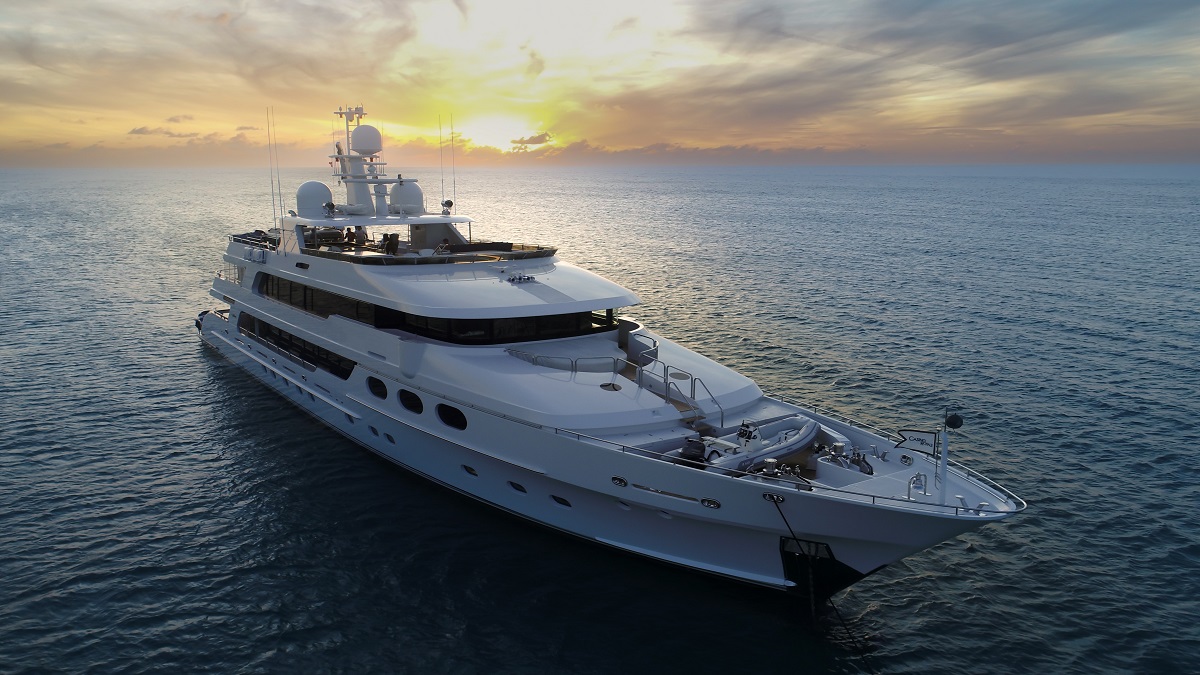
Like any well-run hotel, restaurant, or other luxury service, a crewed yacht needs organized structure and good management. Whether you’re staffing your own luxury vessel or looking for an exciting career working and traveling the world, you need to know how this structure works, and what you can expect to pay or earn and do in the various roles on board.
Every yacht is a little different, and organization may reflect the style of the captain or the demands of the owner. But the same jobs need to be done on almost every boat. Organized with ranks, heads of each division report to the Captain. It’s not a military-style organization, but there are parallels with merchant marine grades and structures.
Smaller yachts need fewer crew, and staff may wear multiple hats that cross more traditional divisions and may combine some jobs with others. Large yachts have more distinct divisions or subdivisions, with more specialization to divide tasks and manage staffing. The core skills are the same, but finding staff with the right blends to do the jobs is key. Crew with broader skills are highly sought after.
As a yacht owner, you shouldn’t have to worry about day-to-day management decisions or organizing all this. That’s why you have a captain, and it’s better to leave staffing decisions entirely up to him or her. But it’s still important to know what it is people you’re hiring do, why they’re there, and how many you need. You don’t want too many crew, or to be short-handed. An understanding of what your yacht needs helps you talk to the captain to keep your yacht running how you want it.
For those looking to break into yacht crew work, consider your skills and strengths, and what jobs appeal to you. You’ll need training before you work, and you can direct your job path through the training you seek. Your goal is a suitable position on a well-run yacht, so make yourself the most attractive candidate possible.
Yacht Work Life
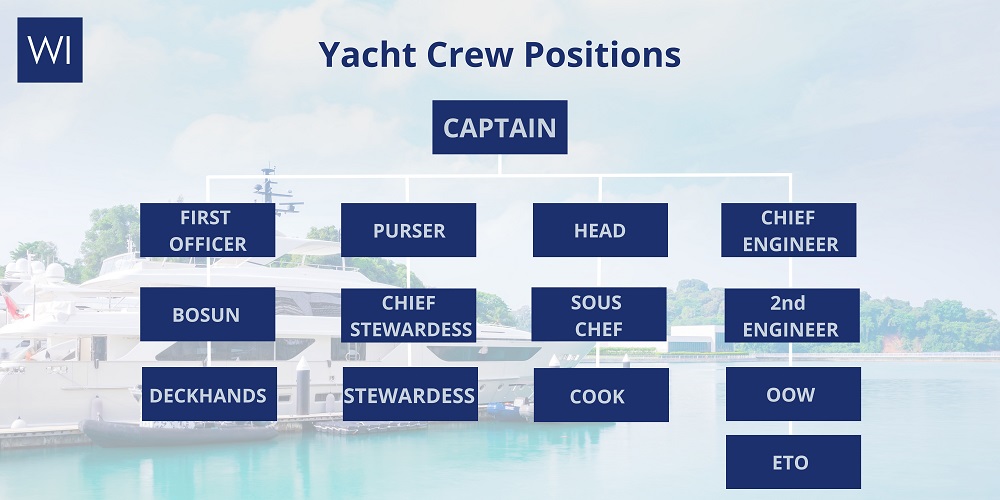
Working on a yacht is also living on the yacht. Crew must have a space to sleep, food, and all the basics that any employee needs. Large yachts have space reserved for crew, and owners looking for quality crew should provide good working and living conditions. Your crew takes care of you, and you should take care of them.
Depending on where a yacht operates or what flag she flies, a variety of labor laws or rules may be in effect. These requirements may be for work visas, contracts and written agreements, and compliance with merchant and ship crew treaties and laws. Be prepared to have work and non-disclosure agreements between yacht and crew, though a few yachts skip this.
Seasonal Jobs
Many yacht positions are seasonal. Year-round employment is more likely for senior crew like the captain and department heads, but not all yachts see year-round use. And some yachts may use different crew in different locales between seasonal moves.
Any job listing should give seasonal information, with geographic information, the length of the season, and the prospects for year-round positions and repeat employment.
Hours, Salaries, and Expectations
Yacht crew is a service job at its core, and every yacht owner is looking for service-oriented people who understand how to deliver a hotel-quality living and restaurant-quality fine dining. Work experience in luxury hotels and restaurants is a big plus for some jobs, and makes breaking into yacht work easier.
Yacht work can be very demanding, with periods of intense work when the owner and guests or a charter party is on board. Long days aren’t uncommon, but often balance with slack time when the boat is empty of passengers. There is always work to be done, but there’s usually a chance for time off.
Most salaries are monthly, since many positions are seasonal. Pay ranges are commensurate with experience, rank, and responsibility. Private vessels usually offer higher base pay, as charter crew can earn tips on top of their base salary. Because of the demands of the lifestyle, compensation is good and you have minimal living expenses on board.
Benefits and Time Off
Because so many jobs are seasonal and may occur in different countries and locations, benefits offered to yacht crew vary widely. But it is not uncommon for crew to be offered health and accident insurance and a flight to the vessel. Living on board, you’ll get food, rooming (usually shared), basic toiletries, uniforms, and laundry. Yachts with a longer view may offer additional training to long-term prospects.
Time off is usually linked to boat use, and may be sporadic in-season or when the boat has the owner and guests on board. There will always be some time off, but it may be between very intense work periods.
Most crew jobs have an employment contract that meets the Maritime Labour Convention 2006 (MLC). This should spell out the contract period and duration, as well as salary, leave and time off, probationary periods, repatriation policies, and any other crucial details to meet the minimum international standards of crew welfare.
This contract should also contain shipboard policies on confidentiality and non-disclosures, drug and alcohol use on board, personal hygiene expectations, interpersonal relationships, and dispute resolution. Job expectations and requirements can also be included, with specific language about roles, tasks, and cooperation between divisions.
Note that all crew agreements will explicitly prohibit drug use on board, most limit alcohol consumption and ban hard liquor on board, and many boats have policies prohibiting intimate personal crew relationships. Because the crew is living on board full time and in close quarters, rules to maintain decorum and crew harmony may be in writing.
Training & Certificates
Two key certifications are required for yacht crew. Employers look for the STCW (Standards of Training, Certification and Watch-keeping for Seafarers) and the ENG1 (Seafarer Medical Certificate). Insurers generally require crew to have these two certifications or the equivalent.
The ENG1 isn’t a class. It’s a medical exam to ensure that the crew is physically fit to serve at sea and has no underlying conditions that may arise far from help. It’s best for prospective crew to secure the ENG1 before investing more time and money training.
STCW is a week-long class on the basics of onboard safety. This includes hands-on modules covering personal survival, fire safety, first aid and CPR, accident prevention, and security awareness. It needs to be refreshed every five years.
Shared, Hybrid, and Crossover Jobs
Larger vessels will have more defined duties and specific areas of responsibility. But smaller yachts may want the crew to have different roles in different situations. For example, a hybrid job description may read “3rd Engineer/Steward” and describe a role in engineering when the boat is empty but on inside crew when passengers are on board.
When hiring or seeking jobs be prepared to look for creative crossover skill sets to meet the needs of the vessel.
Extra Skills and Duties
Any extra skills outside the regular duties makes crew more attractive. From stewards who can teach yoga, give massages or play cocktail piano to deck crew who know how to water ski, SCUBA dive, or fish, anything that crew can bring to enhance the passenger experience adds value to the employee.
If you’re looking for a position, list the skills you’d be comfortable using. If a vessel owner is looking for something specific, spell it out and figure out how that special duty fits into the employee work day.
The Four Main Divisions
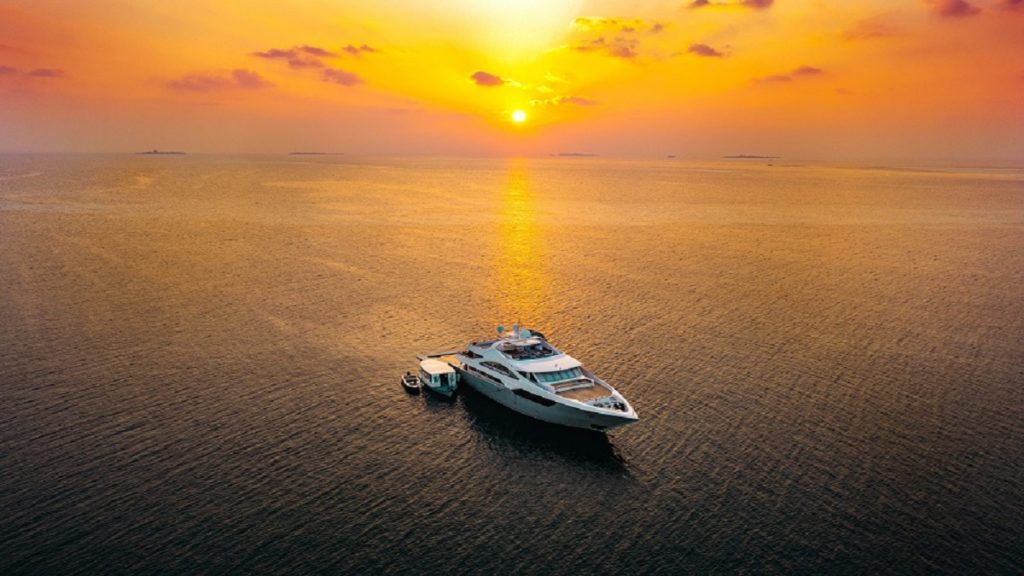
Most yacht crews break into four primary divisions which group related tasks and responsibilities together. While the grouping sounds like it’s by section of the boat, they’re really more functional. For example, stewards (Interior) will definitely serve meals, whether they’re in the main dining room or out on deck. Deckhands (deck) are going to be involved in painting, sanding, and varnish jobs anywhere on the boat.
The deck crew handles most of the exterior operations of the yacht, and runs it. Deck hands and crew keep the boat looking clean and shiny, and handling most vessel operations. This includes driving and operating the yacht, navigation, running all launches and ship’s craft, handling lines, and all maintenance and painting, washing, and shining.
2-Interior (or Inside)
Inside crew are primarily the stewards and housekeepers. Larger vessels will have a dedicated housekeeping staff separate from the stewards, but smaller vessels may not.
Stewards keep the interior clean, do all housekeeping, laundry, food and beverage service, cabin preparation, and anything else needed for the comfort of the passengers.
3-Engineering
Below decks, the engineering department ensures the safe and smooth running of all the ship’s machinery and electronics. Engineers are engine and systems specialists, and there will usually be a dedicated electronics expert. Most engineer jobs require professional training and certification.
Fine dining is a hallmark of the yachting experience, and a full-time galley crew prepares all meals for passengers and crew. The head chef plans the menus and provisions the boat, while junior chefs assist the head chef with meal preparation and keeping the galley spotless.
Yacht Job and Department Details
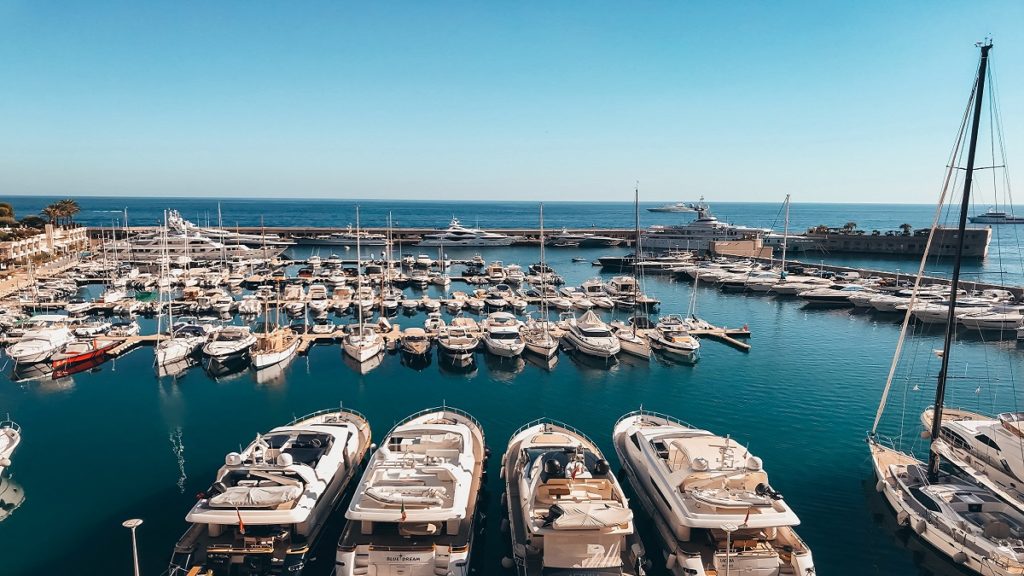
Departments are all organized in a hierarchy, with a department head reporting to the Captain. The clear chain of command makes for smooth operations, with all communications going up and down ranks. Junior staff will occasionally take instructions from other divisions as all crew is expected to help as needed. A captain or department head may organize staff differently, so reporting structures listed are guidelines only.
All salary ranges are monthly figures and are ranges based on yacht size and crew experience. Senior jobs on larger yachts have more responsibility than the same job title on yachts with smaller crews. Experienced crew are very desirable and can expect more pay for their positions.
Listed responsibilities are not exhaustive, and different yachts may allocate some jobs to different positions.
Read also: The yacht charter experience ladder
The Captain

The captain of the vessel is the overall decision maker for the yacht in all situations, including the safety of the vessel. The owner should leave the Captain responsible for operational decisions about hiring and staff and operating the ship. To become a captain requires years of experience and training, and a broad set of skills including yacht operations, personnel management, budgeting and finance. The captain works directly with the owner and owner’s representative, if the captain is not also acting as the representative.
On an organization chart, the Captain is usually placed in the deck division, but the Captain is always the senior-most crew on the yacht and all division heads report to the Captain.
Responsibilities include:
- Responsible for all navigation and running the yacht.
- Senior decision maker on all crew hiring.
- Manage repairs, refits, and yard work.
- Manage budgets and accounting. On larger yachts, this task ends more on the Purser, but the captain is always responsible.
- Ensure all paperwork, clearances, and legal requirements are completed.
- Primary contact with the owner or charter parties.
Reports to: The yacht owner
Salary Range: $6,000 to $22,000
The deckhands handle all the outside responsibilities of the ship, including cleaning and maintenance of the yacht and all the ship’s vessels and toys on board. Deck crew will have significant contact with passengers in this role, operating launches and delivering guests to and from shore and handling the toys.
All deck crew have watch responsibilities on passage, and daily responsibilities keeping the yacht pristine and clean. They will also do line handling and secure the yacht.
Deck department : Chief Mate/First Officer
The Chief Mate or First Officer is the second in command of the vessel, and left in charge when the Captain is not on board. The first mate has the requisite skills to stand in for the captain and run the yacht if needed and usually acts as the division head of the deck team.
The seamanship skills needed are similar to the Captain’s position.
- Primary safety officer for the yacht and all passengers and crew.
- Supervise and manage all operations on deck.
- Bridge watches on passage.
- Passage planning and navigation.
There may be additional mates on larger vessels, these 2nd, 3rd, etc. mates have similar responsibilities on rotation. But the first mate is senior and always second in command.
Reports to: Captain
Salary Range: $4,000 to $9,500 (First mate)
Second and more junior mates may earn $2,000 to $4,000
Deck department : Bosun
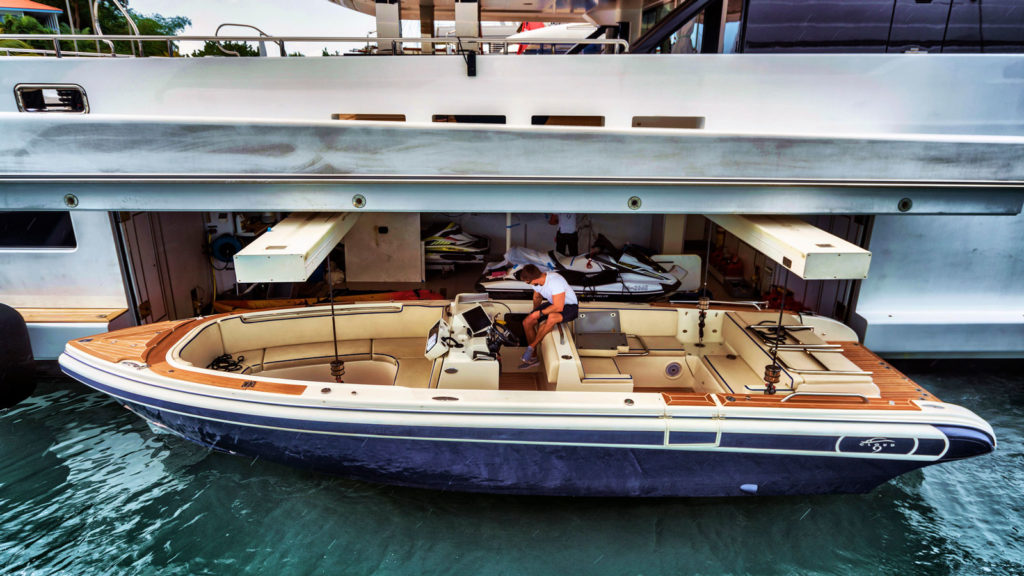
The Bosun is the senior deckhand and manages the junior hands on board. This will usually be the most experienced hand on board.
- Organizing all operations on deck.
- Coordinating the use, storing and launching of the ship’s boats, toys, and equipment.
- Managing the passerelle, watching passenger safety.
- Contact point for guest service on boats, toys, and trips to shore.
Reports to: First mate
Salary Range: $3,000 to $5,000
Deck department : Deckhands
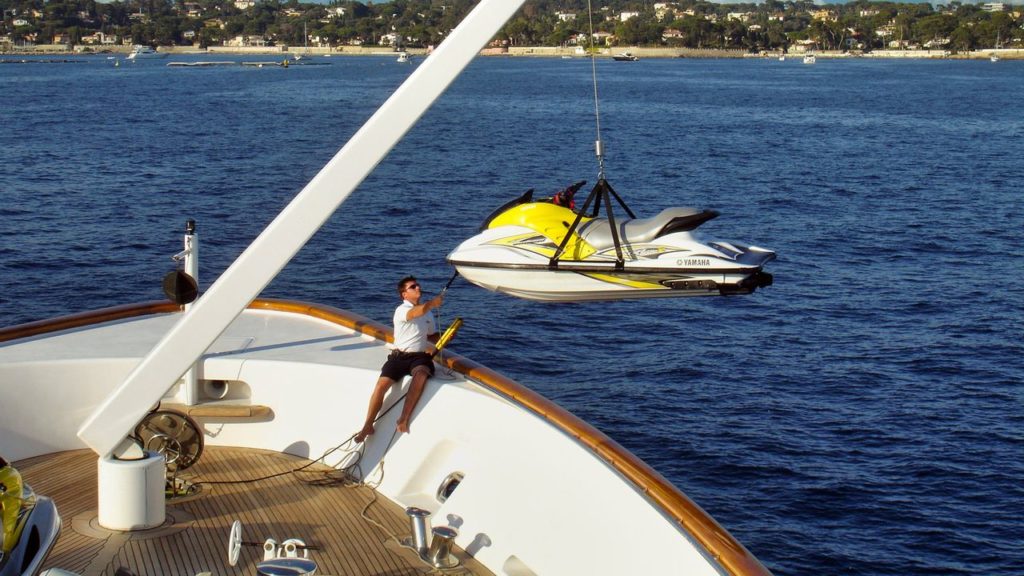
Deckhands are constantly busy with maintenance, cleaning, polishing, and assisting guests as needed. They will assist other departments as needed or given special duties.
- Daily cleaning of the yacht’s exterior.
- Painting, varnishing, polishing.
- Line handling.
- Launching and operating dinghies and tenders.
- Repairs and carpentry.
- Helping guests as needed – everything from handling baggage and gear to embarking and disembarking.
Reports to: Bosun
Salary range: $1,300 to $3,000
Though every position on a yacht is service-oriented, the interior or inside crew provides the primary customer service. They will interact the most with the passengers daily, and they’re directly responsible for the quality of their experience on board.
Interior department : the Purser
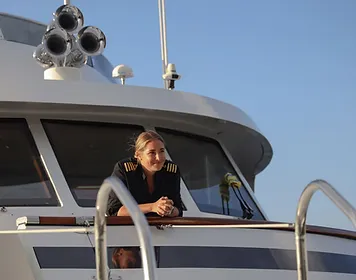
The purser is the chief financial officer of the yacht and handles all the financial operations on board. Accounting, purchasing, payroll and hiring, and all money matters end up with the Purser. This is a senior staff position, and may be the interior department head. Smaller yachts may eliminate the purser’s job and add it to the captain’s and other senior staff duties.
Responsibilities Include:
- Accounting and bookkeeping for all financial transactions.
- Human resources and payroll.
- Handling logistics for all departments related to purchasing.
- Managing contracts.
- Event coordination, including off yacht bookings and payments.
- Primary administration of the boat’s business paperwork.
- Inventory and supply management.
Salary Range: $4,000 to $8,000
Interior department : The Chief Steward/ess
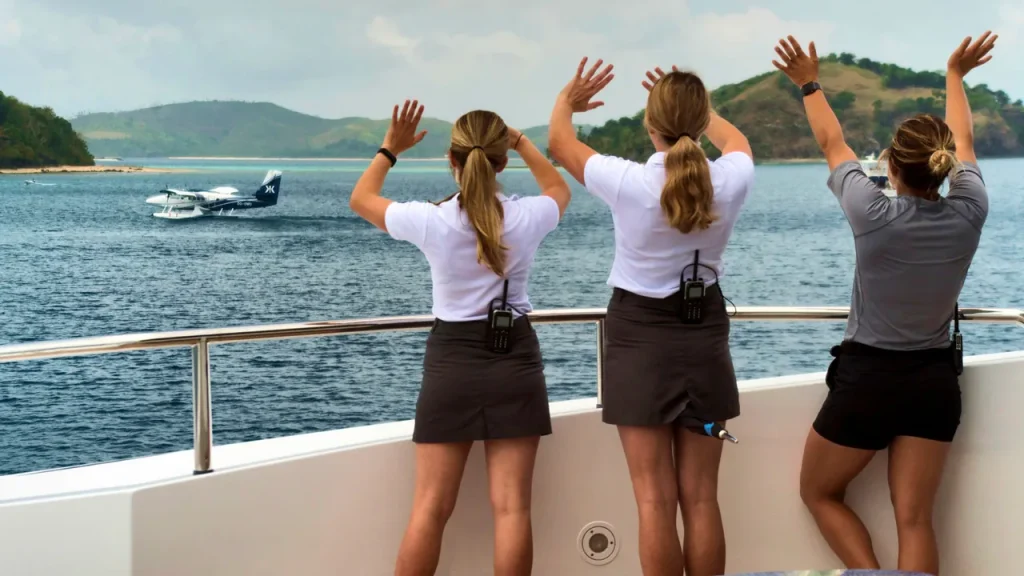
The chief steward or stewardess has primary responsibility for all service roles inside. Food and drink service, cabin preparation, and anything to do with helping the passengers be more comfortable and enjoy their stay. The chief steward will be inside crew with several years of experience.
The chief steward manages the interior staff, setting and enforcing vessel service standards. The chief steward ensures the crew delivers a five-star hospitality experience.
Chief Steward Responsibilities:
- Scheduling and training junior crew for meal and drink service and cabin preparation.
- Primary contact with guests for meals and drinks.
- Sommelier and wine service.
- Coordinate with the galley for meals and presentation.
- Decorate the interior, from flower arrangement to table settings.
- Arrange onshore activities and outings.
Reports to: Captain or Purser, depending on the yacht
Salary Range: $4,000 to $8,500
Stewards/Stewardesses
The stewards and stewardesses are the primary guest service staff. They will work closely with guests and passengers, and have daily contact with them as they meet most of their needs while on board.
Steward Responsibilities:
- Food and drink service.
- Room preparation and turndown service.
- Cleaning, polishing, housekeeping, and inside maintenance.
- Cabin detailing.
- Laundry, pressing, and folding.
- Help with outings, trips, debarkations.
Reports to: Chief Steward
Salary Range: $1,500 to $4,500
Housekeeping

Larger yachts may have a dedicated housekeeping and laundry staff. This will be part of the inside crew, under either the purser or the head steward. There may be a senior housekeeper, if there are more than one housekeeping crew on board.
Responsibilities are the cleaning and laundry portions of the steward’s job, and a laundry steward may spend most of her time inside the ship’s laundry.
An experienced Head of Housekeeping may earn from $4,500 to $7,000, while a Laundry Steward typically earns from $2,500 to $3,500.
Read also: CAN OWNING A YACHT TO CHARTER (REALLY) BE PROFITABLE?
Food service requirements on any yacht are high. Whether it’s a privately owned vessel or a charter, the expectations are always for top tier food service, with a variety of meals planned for the requirements of every passenger. Chefs and cooks prepare all meals on board for passengers and crew, but sometimes other interior crew may help with prep work or cleanup.
Smaller yachts have smaller galley crews, but the largest vessels may have an executive chef and several sous chefs. All chef positions require formal culinary training and experience, but cook positions are often entry level. Promotion from cook to chef is unusual without additional training.
Galley department : the Head / Executive Chef

On larger yachts, an Executive Chef will run the entire galley with the help of sous chefs and cooks. With an Executive Chef, there’s an expectation that the food and menus will be on a level with Michelin star-rated restaurants.
The executive chef brings a thorough understanding of food preparation and presentation, and moves food preparation past creative up to artistic. Job responsibilities are similar to a chef, but the job demands and the required experience and education are much higher.
Salary range: $7,000 to $11,000
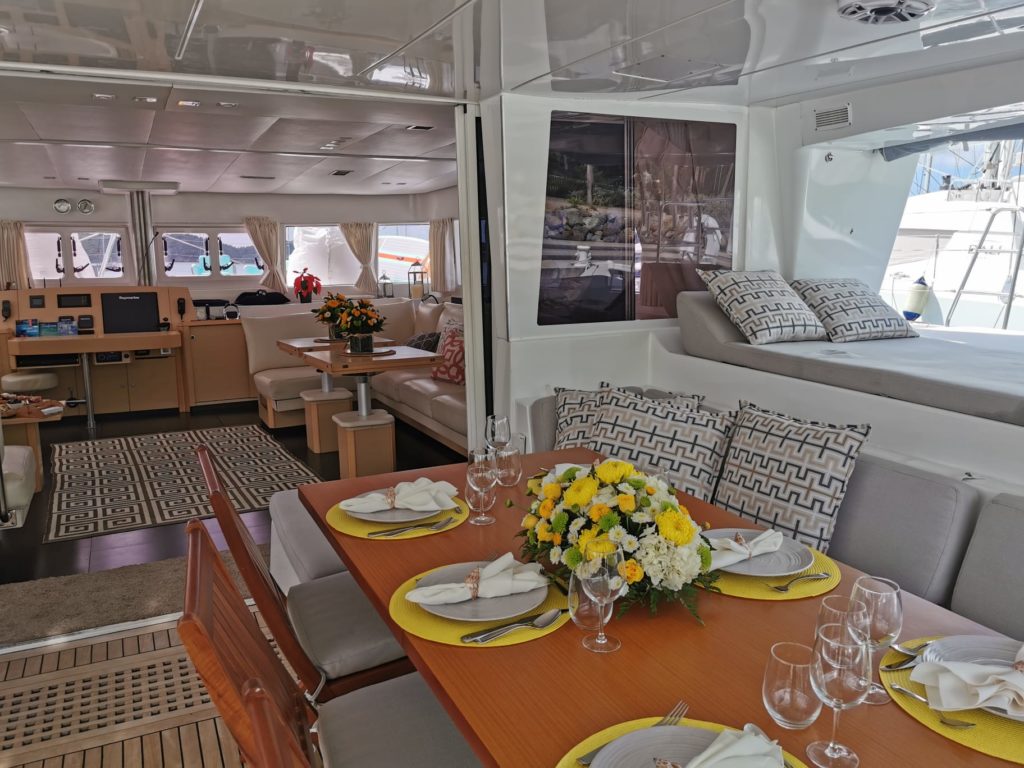
The chef has overall responsibility for all meals on the yacht, from provisioning in remote places to hygiene and good safety. If there’s only one chef, she’s the head of the galley crew. Finding the best provisions in far away locations and making the best of local food availability is a major part of the job.
- Planning a delicious and varied menu for passengers.
- Sourcing all food and arranging transport to the yacht.
- Maintaining and operating within the galley budget.
- Preparing passenger meals with professional presentation and style.
- Cleaning and maintaining galley and galley equipment.
- Deliver menus and meals on time, while running an organized and spotless galley.
Galley department : Sous Chef
The sous chefs assist the chef in all aspects of running the galley, and may have independent assignments to plan and guest and crew meals. While not primarily responsible for provisioning, the sous chef will help with food selection, menu preparation, and planning. A sous chef must have formal culinary training.
Reports to: Head chef
Salary Range: $3,500 – $6,000.

Galley department : The Cook
Cooks may be entry-level positions or experienced, but do not require formal gastronomy education. They will assist the chef and sous chefs, cooking meals and dishes for guests and crew, helping with provisioning, and keeping the galley neat.
- Assist with provisioning and buying high-quality food from local sources.
- Follow all food handling and safety guidelines.
- Assist the head chef as needed, taking direction and guidance.
- Prepare guest and crew meals as required.
- Staying on top of galley inventories and supplies.
Salary Range: $2,500 to $3,500
Engineering
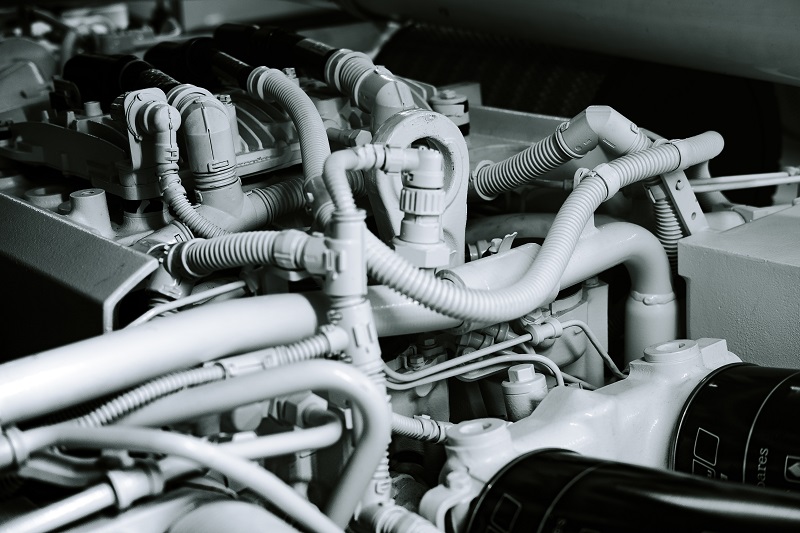
The engineering department keeps the yacht and all its systems working. Whether it’s the engines, electronics, air conditioning, or the plumbing – it’s up to engineering to keep it running.
There is considerable overlap with commercial shipping in the engineering field, as many of the same skills apply. And there is a broader range of qualifications and grades based on the size and power of the vessel. Job ratings may be set by required experience based on tonnage of ship or power of engines, with corresponding levels of pay and responsibility.
Unlike commercial shipping, engineers may get involved in other aspects of running the yacht, like helping with docking and water sports with mechanical toys.
Engineering certifications, training, ratings, experience and licensing are critical to hiring competent engineers, and for engineering crew it’s an important facet of career advancement. This is important for Chief and 2nd Engineers, which are often broken out by MCA (U.K. Maritime and Coastguard Agency) rating or other international equivalent.
MCA ratings for engineers Commercial and Private Yachts over 24m are:
Y4: Less than 200 Gross Tons and less than 1,500 kW engine power Y3: Less than 500 GT and 3,000 kW Y2: Less than 3,000 GT and 3,000 kW Y1: Less than 3,000 GT and 9,000 kW
There is also an unlimited rating for merchant vessels larger than the Y1 category. For discussing salary and responsibilities, we will include all ratings in one position description, but pay scales with the size of the yacht and any required higher ratings.
Chief Engineer
The chief engineer manages all aspects of keeping the yacht and its systems running. The chief engineer manages all the engineering staff, and directs all maintenance, repairs, troubleshooting and upgrades. This is a management position, but requires extensive hands-on technical experience and knowledge. Chief engineers on large yachts hold an MCA Y1 or Y2, smaller boats will have a lower rated chief and a smaller staff. Check Jooble.org to find abroad marine engineer vacancies.
- Provisioning, shopping, and stocking.
- Preparing passenger and crew meals.
- Following instructions and cooking under the direction of others.
- Galley cleaning.
- Follow food safety and storage procedures.
- Food pre-preparation.
Salary Range: $6,000 to $15,000
2nd Engineer
The second engineer is also a highly skilled position requiring a rating or license and several years of experience. This senior level engineer also needs knowledge of how to troubleshoot and maintain all yacht systems.
- Maintain and manage all engineering operations.
- Hire, train and supervise all engineers.
- Project manage all upgrades and retrofits, including managing budgets, contracts, and suppliers.
- Coordinate maintenance schedule for the entire yacht around the usage and seasonal schedules.
- Maintain costs and accounting for engineering operations.
- Design and handle all safety operations.
- Set and maintain standards for operations and cleanliness in the engine room.
Reports to: Chief engineer
Salary Range: $5,500 – $10,000
OOW (Officer of the Watch) Engineer
The OOW is a junior engineering position, but still licensed. There are two categories of OOW – MEOL (Marine Engine Operator License) and the more junior AEC (Assistant Engine Course). The overall responsibilities are similar, working to support the senior engineers and handle independent assignments. The AEC rating is entry level for licensed crew, but has training and certification.
- Support the chief in all projects.
- Maintain a clean, safe engine room.
- Perform all maintenance, troubleshooting and repair tasks as needed.
- Support motorized water sports.
- Occasionally assist with other vessel operations, like line handling.
Reports to: Chief Engineer
Salary Range, MEOL: $4,500 to $6,000 Salary Range, AEC: $2,500 to $3,500
Electronics/Technology Officer (ETO)
The ETO takes responsibility for all audio-visual and information technology on board. Ensuring passengers have access to the internet, movies, television, and music is a primary responsibility. This position carries a fair amount of passenger interaction, and an ETO needs good troubleshooting skills to go with customer service skills.
- Ensure all audio/visual and entertainment systems are always available for passengers.
- Assist passengers with personal technology and ship systems as needed.
- Conduct regular maintenance and upgrades of the network, information, and A/V systems around passenger schedules.
- Assist other engineers as needed, especially with electronic systems.
- Contribute as needed with other departments for boat and passenger operations.
Salary Range: $4,000 to $9,000
Junior Engineer
This is a lower or entry level position for someone with engineering skills but without formal licensing or certification. The junior engineer will help with safety and cleanliness, and assist in any engineering tasks as needed. The ability to solve problems and fix things opens this spot for anyone capable and willing to do the job.
- Help with cleaning, maintenance, and safety functions.
- Help anywhere needed on the yacht.
- Assist senior engineers as needed, taking direction and following instructions exactly.
- Constantly develop skills.
Read also: IS BUYING A BOAT A BAD IDEA?
Whether you are a yacht owner or considering entering this dynamic industry with an established and reliable crew, it is essential to have an understanding of the yacht’s hierarchical structure, mission priorities, and salary expectations. By doing your research on the complexity of yachting before hiring your team, you can confidently select the right group of experienced and qualified professionals for your needs. Staying up-to-date on top industry trends and knowing the capabilities of each type of yacht crew position will enable you to make sound decisions that support a safe and cost-effective journey. With quality personnel at your helm, you can cruise unhindered in luxury and explore new destinations with peace of mind.
Fractional Yacht Ownership : Everything you Need to Know
What is the best country to register your yacht offshore, you might also like.

What differentiates a yacht from a superyacht or a mega yacht?
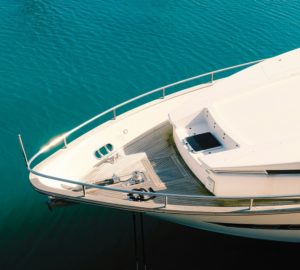
Chartering Requirements and Regulations: A Guide for Boat Owners

What are the Fastest Cruising Catamaran on the Market?
- Frank Magazine
- Denison History
- Virtual Tours
- Alaskan Yachts
- Azimut Yachts
- Back Cove Yachts
- Beneteau Yachts
- Benetti Superyachts
- Bertram Yachts
- Boston Whaler
- Broward Yachts
- Buddy Davis Sportfish
- Burger Yachts
- Cabo Yachts
- Carver Motoryachts
- Center Console
- Chris-Craft Yachts
- Cruisers Yachts
- DeFever Trawlers
- Dufour Sailboats
- Fairline Yachts
- Feadship Yachts
- Ferretti Yachts
- Formula Yachts
- Fountaine Pajot Cats
- Grady-White
- Grand Banks Trawlers
- Hargrave Yachts
- Hatteras Yachts
- Hinckley Picnic Boats
- Horizon Yachts
- Hydra-Sports
- Intrepid Boats
- Jarrett Bay Sportfish
- Jeanneau Yachts
- Kadey-Krogen Trawlers
- Lazzara Yachts
- Luhrs Sportfish
- Marlow Yachts
- Maritimo Yachts
- Marquis Yachts
- McKinna Motoryachts
- Meridian Yachts
- Midnight Express
- Mochi Craft
- Neptunus Motoryachts
- Nordhavn Trawlers
- Nordic Tugs
- Ocean Alexander Yachts
- Offshore Yachts
- Oyster Sailing Yachts
- Pacific Mariner Yachts
- Palmer Johnson Yachts
- Pershing Yachts
- Prestige Yachts
- Princess Yachts
- Pursuit Yachts
- Riva Yachts
- Riviera Yachts
- Sabre Downeast
- San Lorenzo Yachts
- Sea Ray Boats
- SeaVee Central Consoles
- Selene Trawlers
- Scout Yachts
- Sunseeker Yachts
- Tiara Yachts
- Trinity Superyachts
- Viking Yachts
- Westport Yachts
Yacht Crew Jobs: How To Get Hired + Work On A Superyacht
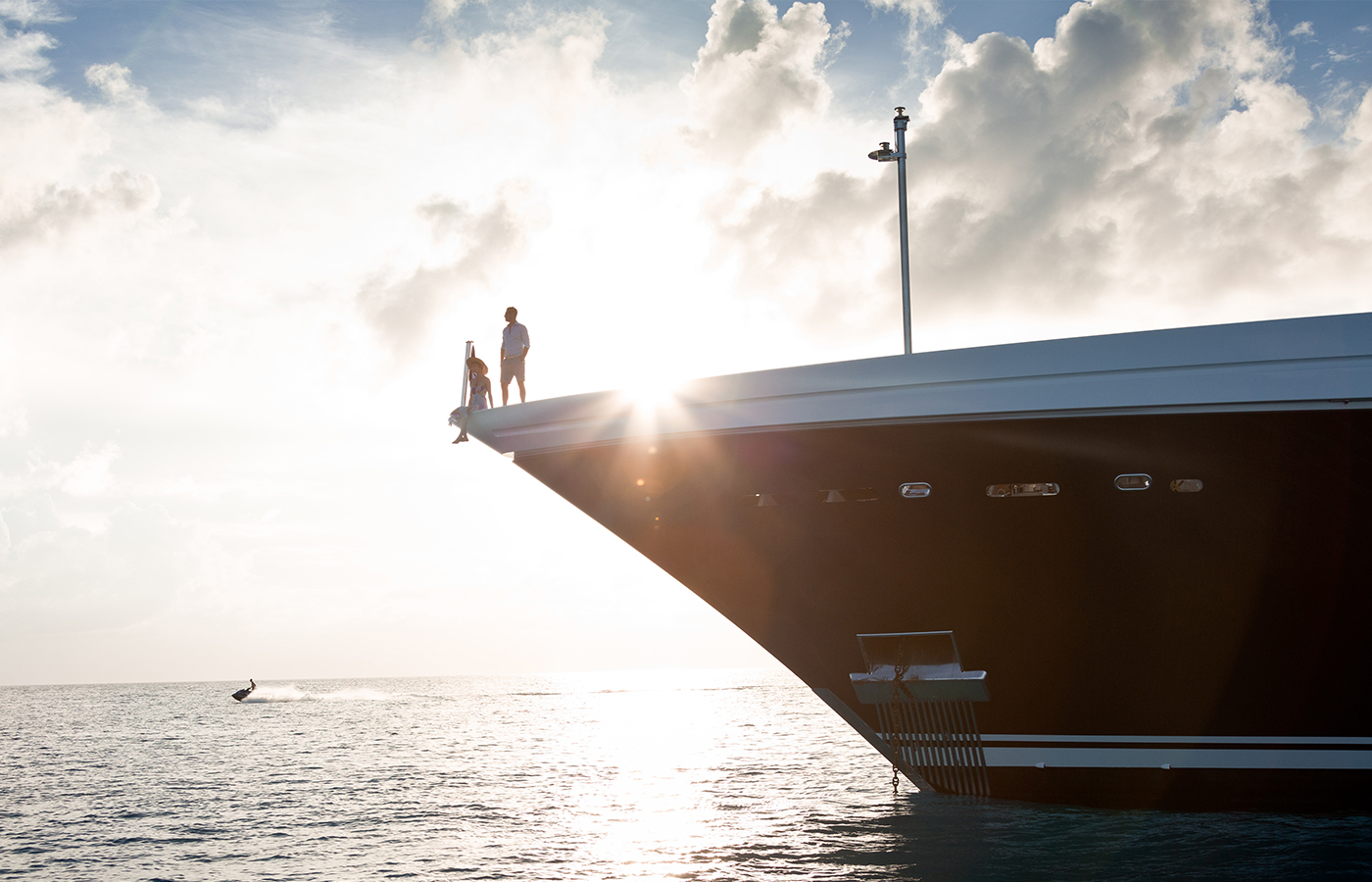
August 7, 2020 4:50 pm
Interested in working on a yacht denison’s lead crew coordinator jill maderia details what aspiring crew professionals need to know before their first job..
Looking for a job that allows you to travel the world? Working as a crew on a superyacht may be a dream for many. Yacht crew are held to the highest standards of professionalism, catering to superyacht owners and guests to create the ultimate yachting experience. Whether you’re interested in becoming a deckhand, stewardess, or chef, we’ll break down how to enter the yachting industry and provide tips on how to prepare for your first yacht crew job.
Q: What courses do I need to complete before working on a yacht?

A: Crew must have the basic safety course called STCW. If they are working on a charter yacht, they will also need the ENG1 (medical clearance). While STCW is the basic course needed, addition courses might set you apart, as it shows commitment to a career on yachts.
For example: The Power Boat class is important to have if you are deckhand, but having this and learning how to drive a tender, would benefit anyone that works on a yacht.
Any extra courses such as hospitably, silver service, mixology are a plus and will help crew better market themselves for opportunities.
Q: After completing my courses, how do I get a job on a yacht?

A: You must have a great CV. Create a portfolio of your work. If you are a Chef or stew, have photos of your food, table settings, flower arrangements. I have had a deckhand show “before and after” projects such as teak work on deck too. Our crew website can create an album of your work.
Plus, showcase your skills. While qualifications are required, your skills that you have might be the reason you get that dream job. Many boats, especially charter yachts, seek out crew with additional skills, whether it be a stew with cooking or childcare experience, or a deckhand that is also a drone operator or photographer.
Q: Do I want to work on a private yacht or a charter yacht?

A: There are benefits to both. There is a difference, as charter boats you will have a combination of owner vs. charter guests. In addition, crew often like the benefit of the additional gratuity at the end of a charter, which can be a range of 15-20%.
Q: What is the interview process like for yacht crew?

Presentation is key: Both with your CV, and in your interview. Your first impression is important, so dress the part as much as you can. Keep in mind, many interviews are via FaceTime or Zoom. Treat virtual interviews the same as you would in-person, show up on time and be professional.
Q: How can networking help my crew career?

Go to crew events, or consider crew housing. You never know where your next job may come from. Maintain relationships with crew agents, other crew members, and industry professionals. It important to be out and meeting people in person or even virtually on Zoom.
Q: Any other tips that will help in landing a yacht crew career?

- 1) Research: Read industry publications. This is especially important for those who have never worked in the hospitality industry. In addition to taking your courses, conduct your own research.
- 2) Crew Housing: When crew stay at a crew house, they have the benefit of networking with other crew. They may even find jobs from crew mates and share ideas and tips in the industry. There are a variety of crew typically, from green to experienced and they all have a story to tell or some wisdom to share.
- 3) Daywork: Sometimes daywork can lead to long term opportunities. While daywork is temporary, crew may not realize that daywork can lead to the Captain or department head interviewing you and seeing how you might fit in with a boat full time.
- 4) Checking in: Check in with your agents. The better your crew agent knows you, the easier it is for them to properly match you to a boat. Keep your crew agent informed on if you’re still looking for work.
Ready to start your career in crew? Contact Lead Crew Coordinator Jill Maderia , or explore all the options Denison Yachting offers in our crew division.
Jill Maderia
- Email: [email protected]
- Cell: 954.600.7058
- Office: +1.954.278.9250
- Show Listings
Latest News

NEWS | July 22, 2024
133 broward 2008 sold by gary hardcastle & brian nobles [kashmir].
133 Broward 2008 Sold by Gary Hardcastle & Brian Nobles [KASHMIR] KASHMIR, a 133′ Broward built in 2008, was sold by Gary Hardcastle, who represented the Seller, and Brian Nobles, who introduced the Buyer. KASHMIR accommodates 12 guests in six staterooms including an on-deck master suite, three king bed suites, and

NEWS | July 17, 2024
Charter yacht profile: 135′ horizon stay salty.
Charter Yacht Profile: 135′ Horizon STAY SALTY This 135-foot-long Horizon is the perfect charter yacht for exploring the Bahamas. This article was written by Bill Springer. Photography courtesy of Denison Yachting. What makes a great charter yacht? It’s a question I’ve been asking charter brokers for many

NEWS | July 10, 2024
Mike horn’s four-year expedition: the final frontier.
Mike Horn’s Four-Year Expedition: The Final Frontier As he undertakes a four-year expedition onboard Pangaea, Mike Horn explains the power of yachting in global exploration and his plans to encourage the next generation of explorers. This article was written by Rachel Ingram. Photography courtesy of Mike Horn.
Essential Guides
Ocean Mapping
New to Yachting
ESSENTIAL YACHT QUALIFICATIONS
Qualifications required to work on board a yacht.

All crew, regardless of their position on board, need to have completed the STCW Basic Safety Training along with obtaining a recognised Seafarers medical certificate, the most popular being the ENG1 which is issued by an MCA ( Maritime and Coastguard Agency ) professional medic.
Without these two certificates, a yacht crew recruitment agent cannot assist you in finding work onboard a yacht .
STCW Basic Safety Training
STCW is a one week long course that provides students with an important introduction to working at sea and the necessary safety knowledge.
STCW stands for ‘Standards of Training, Certification, and Watchkeeping’ and is required for all crew who are working onboard commercial ships or superyachts.
The course teaches the basics of staying safe at sea and it comprises of 5 modules:
Personal Survival Techniques
Fire Fighting and Fire Prevention
Elementary First Aid
Personal Safety and Social Responsibility
Proficiency in Security Awareness
The STCW certification is valid for 5 years from completion of the course, and after that you are required to take an STCW Refresher Course in Fire Fighting and Sea Survival . So, prior to looking for work onboard a yacht, you must make sure all your certification is up to date.
The good news is that there are training centres all around the world where you can complete the STCW course and obtain your certification. Research online to find the nearest centre to you and get started. The course takes 5 days to complete so make sure you have accommodation nearby.
It's also important to ensure that your certificates are issued in English and that the course is certified either by MCA or the national maritime organisation of the country where you take your course.
Seafarers Medical Certificate
Seafarers Medical Certificate is a medical test performed to establish whether your health and your level of fitness allow you to work at sea. The most popular Seafarers Medical Certificate is ENG1 which is issued by an MCA approved doctor but you can also get an equivalent counterpart test in your country.
ENG1 is valid for two years so you will have to make sure to renew it regularly before it expires. Always keep an eye on your expiry dates because, as yacht crew, you might find yourself in the middle of the season with no way of renewing it instantly.
Without a valid Seafarers medical certificate, it is illegal for you to stay and work on board, so always make sure your certificates are up to date.
You can research online to find a medical professional certified to issue a Seafarers Medical Certificate near you.
See the list of MCA approved doctors based in the UK . See the list of MCA approved doctors outside of the UK . See the list of Countries whose seafarer medical fitness certificates are accepted as equivalent to the UK ENG1.
There are two essential certificates all yacht crew need to have to be able to work on board a yacht, regardless of their role.
Other essential guides.

What you need to know about B1/B2 visa

Download yacht crew CV templates

How to write a memorable yachting CV

How to prepare for a yacht interview?

What are the two main yachting seasons?

Big yacht crew hubs you should know about

Is yachting the right choice for me?

Yacht crew salary guide
Explore yacht roles
Download the full ypi crew recruitment market report.
Download the YPI CREW Recruitment Market Report for an in-depth analysis of current trends in superyacht crew recruitment. Gain valuable insights into the market dynamics and trends specific to each department, providing a comprehensive overview of the industry landscape.
Explore the latest in yachting

YPI CREW Announces its 2024 Superyacht Recruitment Market Report

Embarking on an Engineering Career in Yachting: Crafting Your CV

YPI CREW is a proud sponsor of the ‘Seas the Day’ Ocean Rowing Team

YACHT CREW GUIDES
Learn about different positions on board a yacht.

YACHT CREW SALARY GUIDE
Let’s get started. call us on +33 (0)4 92 90 46 10 or email us., our mission, vision and values, mlc 2006 compliance, essential guides, yacht crew positions.
Chief Officer
Second Officer
Third Officer
Chief Engineer
Interior Crew
Head of Service
Head of Housekeeping
Specialist Positions
Spa Manager
Spa Therapist
Personal Trainer & Yoga Instructor
Hairdresser
Mandatory Certificates
B1/b2 visa information, how to write a memorable cv, how to prepare for an interview, yachting seasons, yacht crew salary guide, is yachting the right choice for me, cv templates, ocean mapping, new to yachting.
+33 (0)4 92 90 46 10

Yacht Crew Positions and Salaries
The organisational structure onboard a superyacht follows a strong hierarchy based upon a military model. Exact job duties and lines of authority are set and strictly adhered to. This hierarchy is followed on the vast majority of yachts; however, responsibilities of the crew on smaller yachts are often merged.
There are four departments on yachts with clear organisational structure:
- Deck (including Bridge) – Safety, passage delivery, maintenance of the yacht's exterior, guest outdoor activities
- Engineering – Safety and smooth operational running of the yacht
- Interior – Housekeeping, guest wellbeing, activities, accounting
- Galley – Food preparation, stock control, hygiene, galley maintenance
The top of the hierarchy on each yacht is the Captain , who reports to the yacht owner either directly, or through a representative or a yacht management company.
Salaries vary and depend on the yacht size, use, type and location, as well as the experience and qualification of the crew member. We included typical salaries of crew based on the data available from reputable industry sources, as well as our research of over 60,000 crew registered with us.
Deck Positions
The primary duty of the Captain is the overall safe manning and operation of the yacht. Yacht Captain is responsible for the vessel, yacht crew, owner and guests, including personnel management, shipyard/project management, legal and regulatory compliance, accounting, achieving owners' objectives, and answers to the owner regarding all decisions.
| Captain | €4,000 - €15,000 |
First Mate / Chief Officer
The First Mate or Chief Officer is the right hand of the Captain. Takes command of the yacht from Captain when required. Shares Captain's responsibilities as required.
| Chief Officer | €3,000 - €13,500 |
| 2nd Officer | €3,000 - €8,000 |
| 3rd Officer | €2,500 - €6,000 |
| Security Officer | €3,000 - €5,000 |
Bosun / Lead Deckhand
Bosuns are usually experienced Deckhands with additional responsibilities. They are in charge of Deckhands onboard the yacht and often spend a lot of time with guests during outdoor activities. The Bosun is normally the main tender driver.
| Mate | €2,500 - €6,000 |
| Bosun | €2,500 - €5,500 |
| Lead Deckhand | €2,500 - €5,000 |
Responsible for the maintenance of the exterior of the yacht and keeping it in pristine condition at all times. Deckhands also assist in maintaining, cleaning and operating yacht's tenders.
| Junior Deckhand | €2,000 - €3,000 |
| Carpenter | €3,000 - €4,000 |
Engineering Positions
Chief engineer.
Responsible for the Engineering Department and for all technical aspects of the boat and its equipment. The Chief Engineer's duties include overseeing all mechanical and electrical operations, ensuring all planned maintenance takes place and liaising with subcontractors.
| Chief Engineer | €5,000 - €15,000 |
Second / Third Engineer
The Second and Third Engineers report directly to the Chief Engineer. They assist in maintaining all mechanical and electrical operations of the yacht.
| 2nd Engineer | €3,000 - €10,000 |
| 3rd Engineer | €2,500 - €6,500 |
| Sole Engineer | €3,500 - €12,000 |
| Motorman | €2,500 - €4,000 |
ETO / AV/IT Officer
Electro-Technical Officer (ETO) and AV/IT Officer are in charge of daily maintenance of all electronic, computer, audio/visual and communications equipment and their efficient operation. This includes the radio, radar, telephones, satellite communications, navigation systems, computers, Internet connection, interior equipment (TVs, sound systems), etc.
| ETO | €4,000 - €8,000 |
| AV/IT Officer | €4,000 - €7,000 |
Electrician
The Electrician is responsible for maintenance of all electrical circuits onboard the vessel, circuit breakers, switches, lighting, batteries, etc.
| Electrician | €4,000 - €6,500 |
This is an administrative position on large yachts. The Purser is responsible for all operations in the interior department, including inventory, purchasing, provisioning, accounting, organising guest activities, and assisting the Captain with the yachts paperwork.
| Purser | €5,000 - €9,000 |
Chief Steward(ess)
Duties are similar to those of other Steward(ess)es onboard the boat, but on a more senior level, including managing the interior department and training. Small yachts with less crew do not have a Purser. The Chief Steward(ess) is in charge of all the responsibilities normally carried out by the Purser on large yachts.
| Chief Steward(ess) | €4,500 - €8,500 |
| Interior Manager | €4,000 - €8,000 |
| Head of Servicer | €4,000 - €7,000 |
| Head Housekeeper | €3,000 - €5,500 |
| Spa Manager | €3,500 - €5,500 |
Steward(ess)
Steward's or Stewardess's main responsibility is to maintain the interior of the yacht and provide the highest standard of care to the owner and guests. They serve food and drinks, prepare guest activities, pack and unpack luggage and are on call for anything that the guests want anytime day or night. On some yachts, they help the deck crew moor the yacht.
| 2nd Steward(ess) | €3,000 - €6,500 |
| 3rd Steward(ess) | €2,500 - €4,000 |
| Spa Steward(ess) | €3,000 - €4,000 |
| Service Steward(ess) | €2,500 - €5,000 |
| Housekeeping Steward(ess) | €2,500 - €4,000 |
| Laundry Steward(ess) | €2,500 - €4,000 |
| Sole Steward(ess) | €3,000 - €6,000 |
| Junior Steward(ess) | €2,000 - €3,500 |
| Butler | €3,500 - €6,000 |
| Stew/Deck | €2,500 - €4,000 |
The Head/Executive Chef onboard a luxury superyacht is a culinary trained professional responsible for the overall management of the galley department on larger yachts, including guest and crew meals, provisioning, food safety, maintaining strict hygiene standards and financial/budgetary administration.
| Head Chef | €6,000 - €10,000 |
Assists the Head Chef in all aspects of galley duties. The Sous Chef may be required to independently provide crew meals or guest meals at the direction of the Head Chef.
| Sous Chef | €3,500 - €8,000 |
Crew Chef / Cook
Large yachts employ a separate crew and guest chef. The Crew chef provides meals for the crew.
| Crew Chef / Cook | €3,000 - €5,000 |
| Sole Chef | €3,500 - €9,000 |
| Stew / Cook | €2,000 - €4,500 |
Other Positions
Many yachts, especially the large ones, have several additional positions. These are often combined with primary roles, e.g. Stewardess / Masseuse or Deckhand / Dive Instructor . The most common are:
| Beautician | €3,000 - €4,000 |
| Hairdresser | €3,000 - €4,000 |
| Massage Therapist | €2,000 - €4,500 |
| Nurse | €3,000 - €4,500 |
| Dive Instructor | €3,000 - €6,000 |
Career Advice:
Email address:
Remember me Forgotten password?
Password Reset
Enter your email address and we will email you a password reset link.
Email address:
- Brokerage New Construction How to Buy How to Sell
- Yacht Fleet Yacht Catalog Charter Marketing Destination Guides
- Financial Services Payroll & Accounting Payroll Service Process Logistical Support Admin Services Crew Admin
- Job Descriptions Crew FAQ
- About Sitemap
- Yacht Department Directory
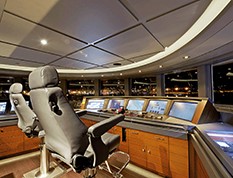
Engineering
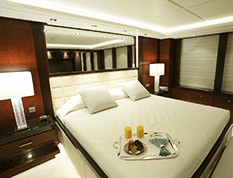

About the Yacht Positions
The diversity and opportunities to work aboard superyachts around the world are endless. The yachts range in size from 60ft to 600ft with crew of 1 - 100 crew members in four primary departments. Each department is responsible for a unique set of tasks aboard and is suited for individuals with specific skillsets and experience. Explore professions within each department.

Yacht Crew Jobs and Salary Info
Here is a guide to the types of jobs found on board yachts for both the Exterior and Interior departments. Get information on job descriptions, skills and experience required to be hired, as well as the expected salary for the position. From entry level yacht jobs (ie. deckhand or steward) to a career path in the yachting industry, understand how each crew member contributes to the efficient operation of a yacht.
Yacht Crew: Deck Department
Other Titles: Master; Second Master; Second Captain
Job Description: The Captain is responsible for the safety of the passengers, crew and the vessel. The Captain oversees the navigation of the vessel, legal and regulatory compliance, budgeting and accounting, vessel maintenance, training, hiring and disciplinary action. The Captain must also achieve the owner’s objectives and answer to the yacht owner for all decisions that are made. Depending on the size of the yacht and number of crew will determine how much the Captain delegates versus the tasks completed by the Captain. Some large yachts may have a Second Captain as second in command.
Experience and Skills Required: The Captain must have a wealth of maritime experience and training including excellent engineering knowledge and knowledge of all safety and environmental regulations. Typically a Captain has worked through the other officer ranks on a superyacht. A Captain on a vessel larger than 3,000 GRT, needs the STCW Master Unlimited licence along with all its necessary courses. Additional skills required include management and accounting skills.
Average Salary: $4,000 to $8,000 per month (Captain of a vessel 60 to 100 feet.) $7,000 to $15,000 per month (Captain of a vessel 100 to 160 feet.) $12,000+ per month (Captain of a vessel 160 feet and up.)
First Officer
Other Job Titles: Chief Officer, Chief Mate
Job Description: The First Officer assists the Captain with navigational planning, administrative duties, crew discipline and safety. The First Officer is responsible for the vessel’s navigation and sets the navigational watch schedule. The 1st Officer manages the Bosun and deckhands, overseeing the maintenance of deck equipment and inventory. The 1st Officer also supervises the water sports equipment (aka: toys). The 1st officer may also be the designated security, safety, or medical officer.
Experience and Skills Required: The First Officer must have qualifications and licences that conform to International Maritime Organization (IMO) and STCW. The standard requirement is Chief Mate (Yacht) 3,000 gt A-II/2 or higher with previous Officer of the Watch experience. Applicants of smaller yachts may have certificates such as RYA Yachtmaster Offshore or Yachtmaster Ocean. Additional certification such as Dive Master or Fishing Specialist, are also an asset.
Average Salary: $5,000 to $8,000 per month (120 feet to 180 feet.) $7,000 to $12,000+ per month (180+ feet)
2nd Officer
Other Titles: Officer of the Watch
Job Description: Yachts larger than 140 feet employ a Second Officer in addition to the First Officer. The 2nd Officer understudies the 1st Officer. He is a navigational watch keeper and assists the First Officer with administrative and safety duties. The 2nd Officer leads the deckhands in deck maintenance duties. The 2nd Officer may also be designated security, safety, or medical officer duties.
Experience and Skills Required: The Second Officer must have qualifications and licences that conform to International Maritime Organization (IMO) and STCW. The standard requirement is Officer of the Watch (Yacht) 3,000 gt A-II/1 or higher. Previous yacht experience is preferred. Additional certification such as Dive Master or Fishing Specialist, are also an asset.
Average Salary: $5,000 to $6,000 per month (140 feet to 180 feet.) $5,500 to $8,000+ per month (180+ feet.)
Other Titles: Lead Deckhand, Senior Deckhand
Job Description: Under the direction of the First Officer, the Bosun supervises the deckhands in the deck cleanliness and maintenance of the vessel. The Bosun develops, executes and assists in planned maintenance and repair of the exterior of the vessel. This includes painting, varnishing, repairing, caulking, and fibreglass repair. The Bosun monitors the condition of the ship’s fire and safety equipment and is responsible for maintenance of the toys and tenders. The Bosun is a watchkeeper, security officer, and tender driver when needed.
Experience and Skills Required: The Bosun should be in possession of the Yachtmaster Offshore (or higher) or the OOW certification which includes GMDSS. The Bosun should have knowledge of maintenance products and knowledge of all equipment onboard. The Bosun should have knowledge of the water sports equipment and some engineering knowledge. Minimum three years experience as a yacht deckhand is required. Additional certification is an advantage.
Average Salary: $3,000 to $4,500 per month (100 feet to 180 feet.) $4,000+ per month (180+ feet)
Other Titles: Junior Deckhand
Job Description: This entry level position is expected to undertake a variety of tasks. These include cleaning, polishing, waxing, painting, varnishing, sanding, fibreglass repair, carpentry, line handling, exterior maintenance, driving tenders (if qualified), setting up toys, diving (if qualified), helping clean cabins, helping prep meals, helping serve meals, and helping clean engines. On smaller vessels, there may be one deckhand versus larger yachts may have five or more deckhands supervised by a Bosun.
Experience and Skills Required: Although no previous yachting experience is required, general seafaring skills are expected. Deckhands should have basic knowledge in navigation, boat handling, engines and radio equipment. Additional skills such as painting, woodworking, fibreglass experience are an asset. Additional certifications such as diving qualifications and fishing skills, Tender Driving Licence, and the Radio Operators Certificate (ROC) are also beneficial.
Average Salary: $2,000 to $4,000 per month (60 feet to 120 feet.) $2,500 to $3,500 per month (120 feet to 180 feet.) $2,500 to $4,000+ per month (180+ feet)
Yacht Crew: Engine Department
Chief engineer.
Job Description: The Chief Engineer is responsible for the safe operation of engine room operations. The Chief is also responsible for the maintenance of the vessel’s engines, generators, hydraulics, outboard engines, electrical systems, plumbing, HVAC systems including refrigeration and air conditioning, fuel polishing, water makers, computers, entertainment systems and other interior equipment. The Chief Engineer plans and executes the vessel’s preventative maintenance. On a small yacht he may be the only engineer onboard, while larger yachts he may supervise a team of engineers to perform the maintenance.
Experience and Skills Required: The Chief Engineer must have extensive maritime experience and training including knowledge of all safety and environmental regulations. Depending on the size of yacht will determine the minimum qualifications required. At the very least, Chief Engineer Certificate of Competency (Y4) A-III/3 is limited to vessels less than 200gt and less than 1,500kw in size. The highest qualification for a Chief Engineer is the Chief Engineer Unlimited A-III/2.
Average Salary: $5,000 to $10,000 per month (120 feet to 180 feet.) $7,500 to $15,000+ per month (180+ feet)
2nd Engineer (Licensed)
Other Title: Junior Engineer Licensed, Second Unlimited, OOW Engineer (AEC)
Job Description: The 2nd Engineer assists the Chief Engineer in the safe operation of the engine room. The 2nd Engineer performs maintenance on the vessel’s engines, generators, hydraulics, electrical systems, plumbing, HVAC systems including refrigeration and air conditioning, fuel polishing, outboard engines, water makers, computers, and entertainment systems.
Experience and Skills Required: Depending on the qualifications will determine the engineer’s average salary. An Engineer with only the Assistant Engineer Unlimited A-III/1 (AEC) certificate makes less than an Engineer with a Chief Y3 Licence. In general, an engineer must possess expert knowledge of mechanical, electrical, electronic and other on board equipment.
Average Salary: Junior Engineer (Licensed with AEC) $3,000 to $4,500+ per month. 2nd Engineer (Chief Y2 to Y3) $6,000 to $8,000/m (160 feet to 190 feet.) 2nd Engineer (Chief Y2 to Y3) $7,000 to $9,000+ per month (190+ feet)
Junior Engineer (Unlicensed)
Other Title: Engine Crew; OOW Engineer
Job Description: As directed by the licensed 2nd Engineer, the unlicensed Junior Engineer performs tasks such as cleaning, painting and maintenance of the technical spaces, bilges and equipment. Other duties may include maintenance on the vessel’s engines, generators, hydraulics, electrical systems, plumbing, HVAC systems including refrigeration and air conditioning, fuel polishing, outboard engines, water makers, computers, and entertainment systems. Team player duties include line handling and water sports equipment.
Experience and Skills Required: An unlicensed Junior Engineer needs only the Yacht Rating Certificate. Alternatively, an OOW Engineer needs the Marine Engine Operator License (MEOL) to be qualified as an officer of the watch. A Junior Engineer or OOW Engineer needs knowledge of general systems on board (diesel, refrigeration, air conditioning, plumbing, electronics and outboards). Additional certification is an asset.
Average Salary: $3,000 to $4,500+ per month (160 feet to 300 feet)
Electronic Technical Officer (ETO)
Other Job Titles: Electronic Engineer; Electrical Engineer, Audio Visual and IT Engineer
Job Description: Electronic Technical Officers and Electricians are employed on larger yachts (160+ feet). The ETO reports to the Chief Engineer and is responsible for the maintenance of all electronics, computers, internet, televisions, entertainment systems, satellites, radios and communications equipment for efficient operation.
Experience and Skills Required: An ETO or electrician may have experience as an engineer on a yacht with a specialty in electrical and electronics. The STCW Engineering certification may be a requirement depending on the yacht. Land based experience in electrical, electronics, or IT server maintenance may also be acceptable.
Average Salary: $3,000 to $8,000+ per month (Depending on Experience and Qualifications)
Yacht Crew: Interior Department
Other Title: Interior Manager
Job Description: On yachts larger than 160 feet, a Purser is employed as the person responsible for the overall operations and guest relations of the interior department including housekeeping, bartending, table setting and silver service. The Purser oversees all interior purchasing, provisioning, human resources, and the accounting for the entire yacht. The Purser works with the Chef on menus and wine pairing. The Purser acts as a concierge for the guests with their knowledge of restaurants and activities in the yacht’s cruising area.
Experience and Skills Required: Requirements for a Purser include all the PYA GUEST Level 3 courses such as the Interior Yacht Management program. Typically, the Purser has previous yacht experience as a Chief Stewardess.
Average Salary: $6,000 to $9,000 per month (160 feet to 250+feet)
Chief Steward
Other Job Titles: Head of Housekeeping
Job Description: The Chief Steward is responsible for the overall cleanliness of the interior of the vessel. Duties include setting the schedules for guest service and cleaning, and supervising stewards in their duties. The Chief Steward organizes with Chef for guest meal service. The Chief Steward is also responsible for inventory and interior accounting. On smaller vessels the Chief Steward is in charge of interior operations, whereas larger vessels the Chief Steward reports to the Purser.
Experience and Skills Required: Requirements for a Chief Steward include all the PYA GUEST Level 3 courses such as the Interior Yacht Management program. Typically, the Chief Steward has extensive experience as a Steward. Other skills required are the ability to delegate, attention to detail and excellent communication skills.
Average Salary: $3,000 to $6,500 per month (100 feet to 140 feet.) $5,000 to $9,000 per month (140 feet to 200+ feet)
Job Description: Typically on yachts over 140 feet, a Butler is employed to make sure the guests are having all their needs met. The Butler is responsible for providing impeccable service to guests. The Butler may assist with party planning.
Experience and Skills Required: Previous experience as a butler is preferred as is yacht experience. Additional certification in the PYA GUEST courses is beneficial.
Average Salary: $5,000 to $8,000 per month (140 feet to 250+ feet)
Other Job Titles: 2nd Steward; Junior Steward; Laundry Steward; Solo Stew
Job Description: The Steward or Stewardess is responsible for cabin preparation, detailing interior, bartending, Silver Service (food and drink service) and laundry. More specifically this means cleaning and polishing bathrooms (heads) and bedrooms, bed-making, ironing and folding linens, table-setting, polishing cutlery, and flower arranging. As an entry level position, duties may also include deckhand tasks.
Experience and Skills Required: As an entry level position, there are no mandatory certificates needed (apart from the Basic STCW 95 course). Although, the more experience and training that a candidate has, the better chances of getting hired. Food and beverage experience and hotel experience are an asset. Any or all of the PYA G.U.E.S.T. introductory level courses are beneficial. Additional skills such as massage or beautician will also increase hiring opportunities.
Average Salary: $2,500 to $4,000 per month DOE (100 feet to 160 feet.) $2,500 to $5,500 per month DOE (160+ feet)
Other Titles: Executive Chef
Job Description: The Chef is responsible for all food prepared on the vessel. The Chef plans meals for an entire itinerary and prepares them with a high degree of presentation. The Chef is responsible for provisioning, ordering, purchasing (negotiating with worldwide suppliers) and storing food items. The Chef may work solo or alongside a Sous Chef, depending on the size of the vessel. The Chef must maintain immaculate cleanliness and hygiene in the galley and a Chef must be well organized. Smaller vessels may expect the Chef to participate in other duties, too.
Experience and Skills Required: Although smaller vessels may hire non-culinary trained persons for a position as a Chef, only culinary trained Chefs with years of experience can expect to land a Chef’s job on a megayacht. A Chef should have experience in worldwide provisioning and budgeting skills and should have nutritional and dietary knowledge. Previous yachting experience as a Sous Chef is preferred.
Average Salary: $4,500 to $8,000 per month (100 feet to 160 feet) $6,000 to $12,000 per month (160+ feet)
Other Title: Second Chef; Crew Chef; Stew-Chef; Stew-Cook; Cook
Job Description: On vessels larger than 140 feet, a Sous Chef is employed to assist the Chef with meal preparation and cooking for the crew. On smaller yachts a ‘Stew-Chef’ encompasses both the cooking and Steward’s duties.
Experience and Skills Required: Experience in a hotel or restaurant or previous yachting experience is preferred. Knowledge of food safety, storage, and nutrition is required. Although not mandatory, a Sous Chef should have a recognized qualification such as Level 3 Diploma in Professional Cookery.
Average Salary: $4,000 to $6,000+ per month (140+ feet) $3,000 to $5,000 per month (60 feet to 160 feet)
Related Articles:
Overview of the Yacht Industry
Life Aboard Yachts
Yacht Crew Training
We use cookies to ensure that we give you the best experience on our website.
Delivery Skippers and Crew
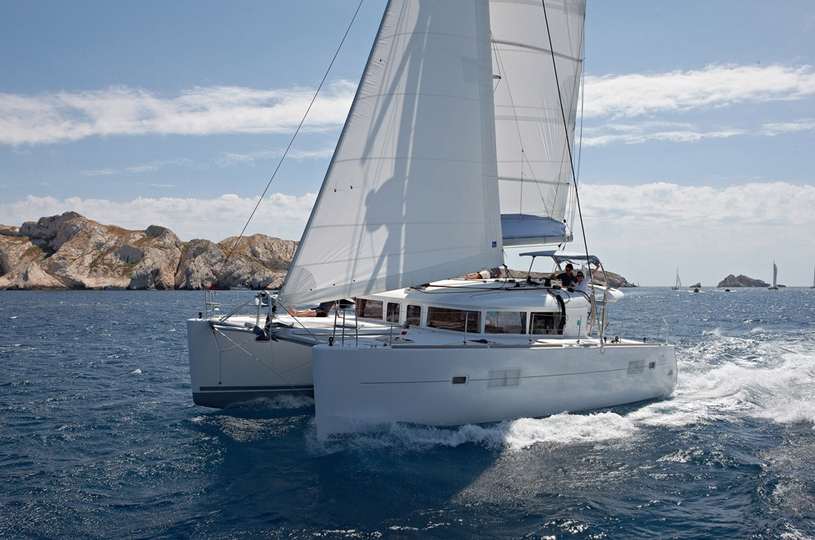
What qualifications do you need to get a delivery job?
Many delivery skippers operate on a freelance basis but there are also delivery companies that coordinate deliveries and use a pool of regular skippers and crew. The arrangements concerning payment for deliveries to either skipper or crew will vary greatly from one company or delivery to the next so it is always best to ensure you are clear on what has been agreed prior to committing to anything.
The delivery of a private yacht by a paid or unpaid delivery skipper and crew is not of itself commercial use of the yacht. However, if there are paying passengers on board then the voyage is indeed classified as commercial in which case the vessel, skipper and crew will need to comply with any relevant commercial codes of practice and manning requirements relevant to the flag state under which the vessel is registered.
In the case of commercial passages under the UK codes of practice, the vessel will need to be coded and the skipper will also require a commercial endorsement on their Certificate of Competence. If the yacht is already coded and the only people on board are the delivery skipper and crew then it is likely that the voyage will still be treated as commercial.
The qualifications required to skipper a delivery will depend on where the delivery will take place and also the nature of the passage. However, the skipper will owe a duty of care to the owner of the yacht and, as such, even for non-commercial passages, as a minimum it is recommended that the skipper holds the RYA Yachtmaster™ Offshore Certificate of Competence and should also have a significant amount of experience on vessels of a similar style and size to that being delivered. For longer passages and transocean deliveries, it is strongly recommended that the skipper holds the RYA Yachtmaster™ Ocean Certificate of Competence. The higher your qualification and greater your experience the more appealing you will be to a potential delivery company.
Delivery skippers and companies will often require crew. This is a great way to get some extra miles and experience under your belt. First Mates are genrally paid, but for deck crew more often than not you only expect to be reimbursed for your travel costs rather than receiving payment for the delivery. The RYA provides a range of courses across many subjects that will assist in preparing you well for a role as a delivery crew member. Experience gained on a passage is invaluable and coupled with some quality training will see you grow in confidence in your boating abilities. You can find opportunities for delivery skippers and crew here on Crewseekers in our Sailing Opportunities section.
Qualifications, experience, endorsements and other aspects of this information can change on a regular basis - for the very latest information consult:
www.rya.org.uk/coursestraining/careersadvice www.gov.uk/topic/working-sea/training-certification
<< Introduction
- Like this, share it
- Email a friend
Featured sailing opportunities

First Mate/Deckhand
Boat type: FC2-70
Location: France

Liveaboard Captain (f/m) and Business Partner
Boat type: Catamaran
Location: Tortola, BVI

Boat type: Traditional Gaff Rigs & Bermudan Ketch
Location: Bradwell on Sea
we love sailing as much as you do
Crewseekers is run by experienced, professional sailors offering a friendly and helpful service to yacht crew and owners. We are the original yacht crew introduction agency – established for over 25 years, offering amateur and professional sailing opportunities throughout the world.

All guides , Deckhand , Stewardess , Yacht Jobs
How to become a yachtie.
- November 1, 2023
“Ahoy there, future yachties! Are you ready to embark on an exciting and luxurious career on the high seas?” If the idea of working on a yacht, traveling to exotic locations, and catering to the needs of the rich and famous sounds like a dream come true, then you’re in the right place. In this comprehensive guide, we’ll explore the ins and outs of the yachting industry, from the essential skills and certifications needed to make a splash, to tips on building a strong resume and making valuable connections in the yachting world. We’ll also discuss the various career paths available, from starting out as a deckhand to eventually taking the helm as a captain. Finally, we’ll delve into the yachtie lifestyle, and how to strike the perfect balance between work and play while living and working on the world’s most luxurious vessels. So grab your deck shoes and let’s set sail on this exciting journey to becoming a yachtie!

1. Discovering the Yachting Industry: Opportunities and Requirements
The yachting industry offers a wide range of career opportunities for those who are passionate about the sea and luxury vessels. From deckhands and engineers to chefs and stewardesses, there is a position for every skill set and interest. To begin your journey in this exciting field, it is essential to understand the requirements and qualifications needed for each role. This will help you determine which path is best suited for your skills and aspirations.
Before diving into the world of yachting, it is crucial to familiarize yourself with the certifications and training necessary for your desired position. For example, aspiring deckhands should obtain their STCW (Standards of Training, Certification, and Watchkeeping) certification, while engineers may need to complete an MCA (Maritime and Coastguard Agency) approved course. Additionally, it is essential to have a valid passport, a seafarer’s medical certificate, and potentially a visa, depending on the country you plan to work in.
Once you have acquired the necessary qualifications, it is time to start networking and job hunting . Many yachties find their first job through word-of-mouth or by connecting with others in the industry. Attending boat shows, yachting events, and joining online forums can help you make valuable connections and learn about job openings. Furthermore, registering with a reputable yacht crew agency can increase your chances of finding the perfect position. Remember to create a professional CV and be prepared for interviews, as competition in the yachting industry can be fierce.
2. Essential Skills and Certifications for Aspiring Yachties
Entering the world of yachting requires a unique set of skills and qualifications, which are essential for ensuring a successful career. Obtaining the necessary certifications is a crucial step in becoming a yachtie, as these credentials demonstrate your competence and commitment to the industry. Some of the most important certifications include the STCW (Standards of Training, Certification, and Watchkeeping) Basic Safety Training, which covers essential safety and survival skills, and the ENG1 Medical Certificate, which confirms your fitness to work at sea.
Aside from certifications, aspiring yachties should also focus on developing their soft skills and practical abilities . Excellent communication, teamwork, and problem-solving skills are highly valued in the yachting industry, as crew members must work closely together to ensure smooth operations and guest satisfaction. Additionally, proficiency in various tasks such as cooking, cleaning, and maintenance is crucial, as yachties are often expected to perform a wide range of duties on board. By honing these skills and obtaining the necessary certifications, you will be well on your way to a rewarding career as a yachtie.
3. Building a Strong Resume: Tips for Landing Your First Yacht Job
As a newcomer to the yachting industry, it’s essential to create a compelling resume that showcases your skills, experience, and passion for the job. Start by highlighting any relevant experience you may have, such as working in hospitality, customer service, or a related field. If you have any certifications or licenses, be sure to include them as well. When crafting your resume, consider the following tips:
- Keep it concise: Aim for a one-page resume that’s easy to read and understand.
- Use a professional format: Choose a clean, modern design that highlights your most relevant information.
- Include a personal statement: Write a brief introduction that explains your interest in the yachting industry and what makes you a great candidate for the job.
Networking is a crucial aspect of landing your first yacht job, so attend industry events and connect with professionals in the field. This can help you learn about job opportunities, gain valuable insights, and make a lasting impression on potential employers. Additionally, consider joining online forums and social media groups dedicated to yachting to expand your network and stay informed about the latest industry news.
Finally, be persistent and proactive in your job search. Apply to multiple positions, even if they’re not your ideal role, as this can help you gain experience and make connections within the industry. Don’t be discouraged by rejection – it’s a natural part of the job search process. Instead, use it as an opportunity to learn and improve your resume and interview skills. With determination and a strong resume, you’ll be well on your way to becoming a successful yachtie.
4. Networking in the Yachting World: Making Connections that Matter
Establishing a strong network is crucial for success in the yachting industry. Building relationships with fellow yachties, captains, and industry professionals can open doors to new opportunities and help you advance in your career. Attend industry events, such as boat shows and yacht crew meetups, to meet like-minded individuals and expand your network. Don’t be afraid to introduce yourself and engage in conversations, as this can lead to valuable connections and potential job offers.
Utilizing social media platforms is another effective way to network in the yachting world. Join Facebook groups, follow industry influencers on Instagram, and connect with professionals on LinkedIn to stay informed about the latest news and job openings. Be active in these online communities by sharing your experiences, asking questions, and offering advice. This will not only help you learn from others but also showcase your expertise and passion for the industry.
Finally, consider creating a checklist to track your networking efforts and ensure you’re making the most of every opportunity. This can include goals such as attending a certain number of events per month, connecting with a specific number of professionals online, or following up with contacts you’ve made. By setting measurable objectives and regularly reviewing your progress, you’ll be well on your way to building a powerful network in the yachting world.
5. Climbing the Yachtie Career Ladder: From Deckhand to Captain
Embarking on a career in the yachting industry can be both rewarding and challenging. One of the key aspects to success is understanding the various roles on a yacht and how to progress from one position to another. Starting as a deckhand , you will gain valuable experience and skills that will serve as the foundation for your future growth in the industry. As you continue to learn and develop your abilities, you will have the opportunity to advance to higher positions, such as mate, engineer, or even captain.
One of the most important factors in climbing the yachtie career ladder is gaining relevant qualifications and certifications . For example, obtaining your STCW (Standards of Training, Certification, and Watchkeeping) certificate is essential for working on any yacht. Additionally, pursuing specialized training in areas such as navigation, engineering, or hospitality can significantly increase your chances of securing a higher position on a yacht. It is also crucial to network within the industry, as many job opportunities are found through personal connections and recommendations.
Lastly, developing a strong work ethic and demonstrating professionalism at all times will set you apart from other crew members. This includes being punctual, maintaining a positive attitude, and taking pride in your work. As you continue to excel in your role and gain the trust of your captain and fellow crew members, you will be well on your way to climbing the yachtie career ladder and achieving your ultimate goal of becoming a captain.
6. Living the Yachtie Lifestyle: Balancing Work and Play on the High Seas
Embracing the yachtie lifestyle requires a delicate balance between hard work and enjoying the perks of the job. While the days can be long and demanding, the rewards are often worth the effort. To maintain this equilibrium, it’s essential to develop a routine that allows you to excel in your duties while still finding time for relaxation and personal growth. A checklist can be a helpful tool to ensure you’re staying on track with your responsibilities and making the most of your downtime.
One of the key aspects of living the yachtie lifestyle is learning how to adapt to the unique challenges of working on a yacht. This includes mastering the art of multitasking, being prepared for unexpected situations, and maintaining a positive attitude even when the going gets tough. By staying organized and focused, you’ll be able to enjoy the incredible experiences that come with working on a luxury yacht, such as exploring exotic destinations, meeting new people, and indulging in world-class cuisine. Remember, the key to success in this industry is finding the right balance between work and play, so make sure to take advantage of the opportunities that come your way.
Frequently Asked Questions
1. what are the different roles available on a yacht, 2. how long does it take to become a qualified yachtie, 3. can i work on a yacht without prior experience in the industry, 4. what is the salary range for yacht crew members, 5. what are the typical working hours and conditions for yacht crew members.
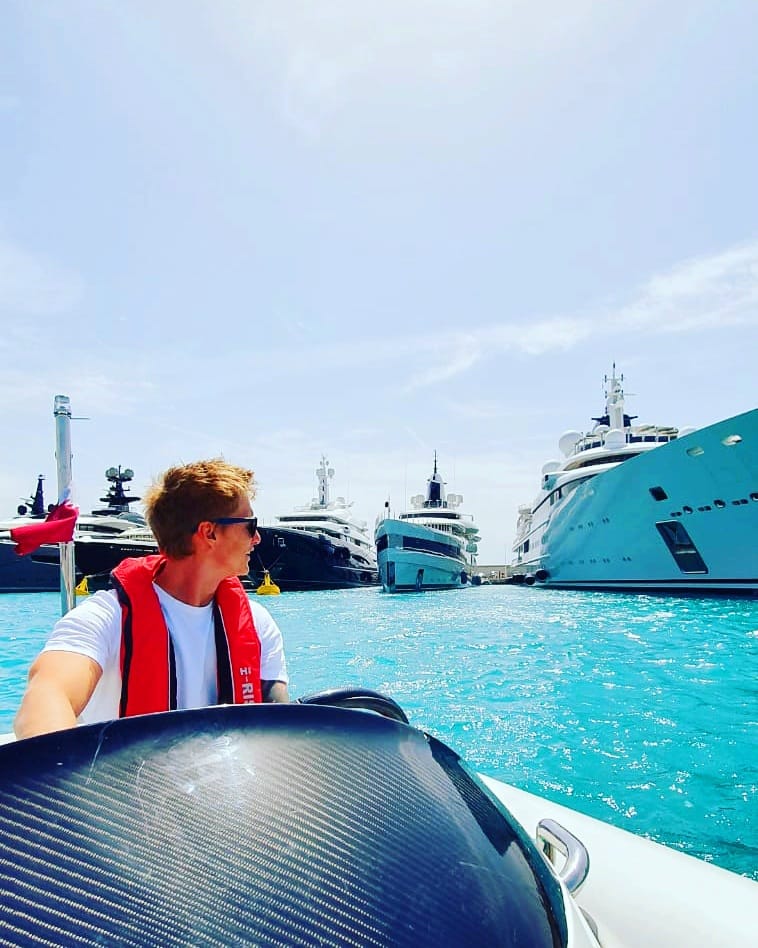
Yacht Deckhand Premium STCW
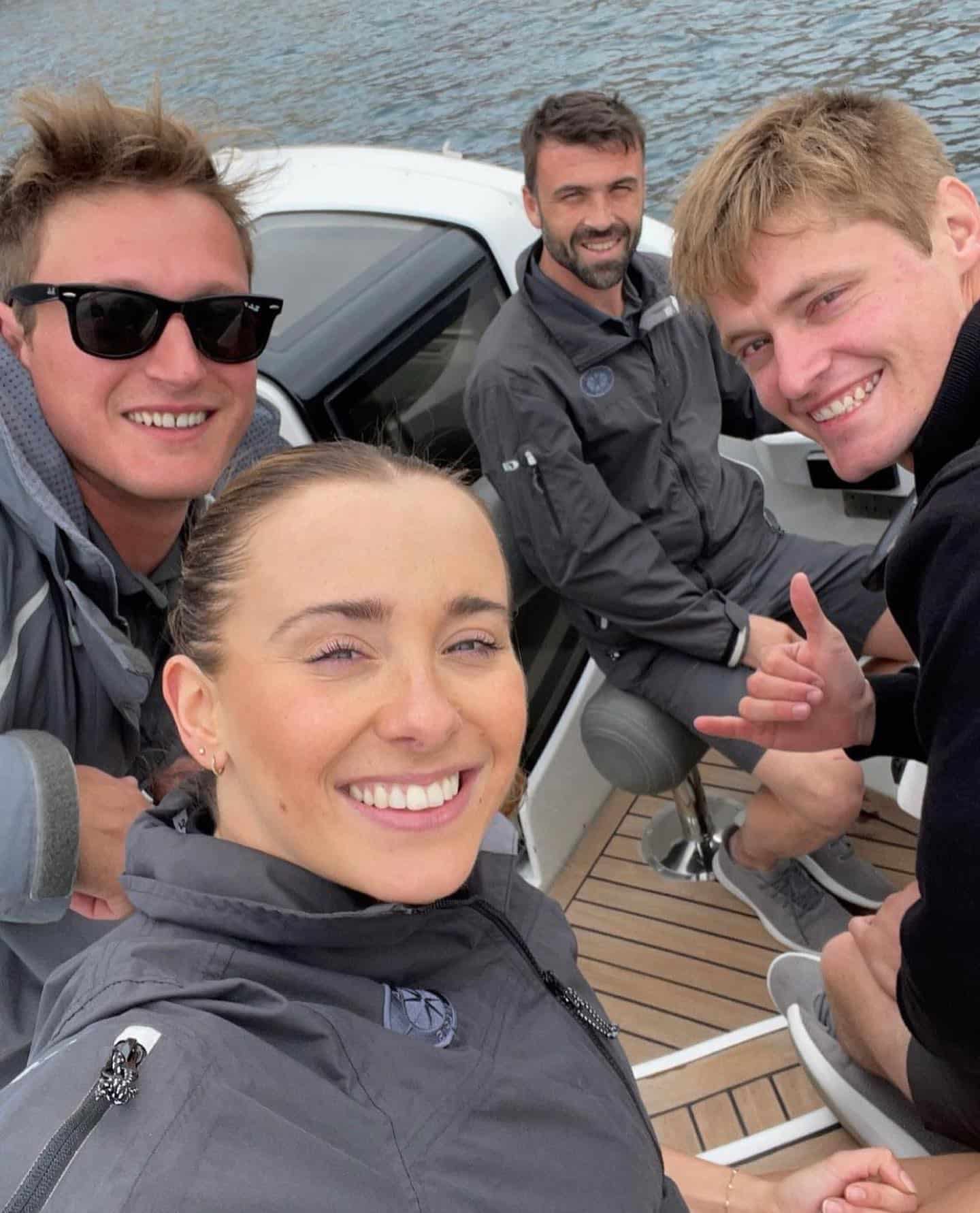
Yacht Stewardess Premium STCW
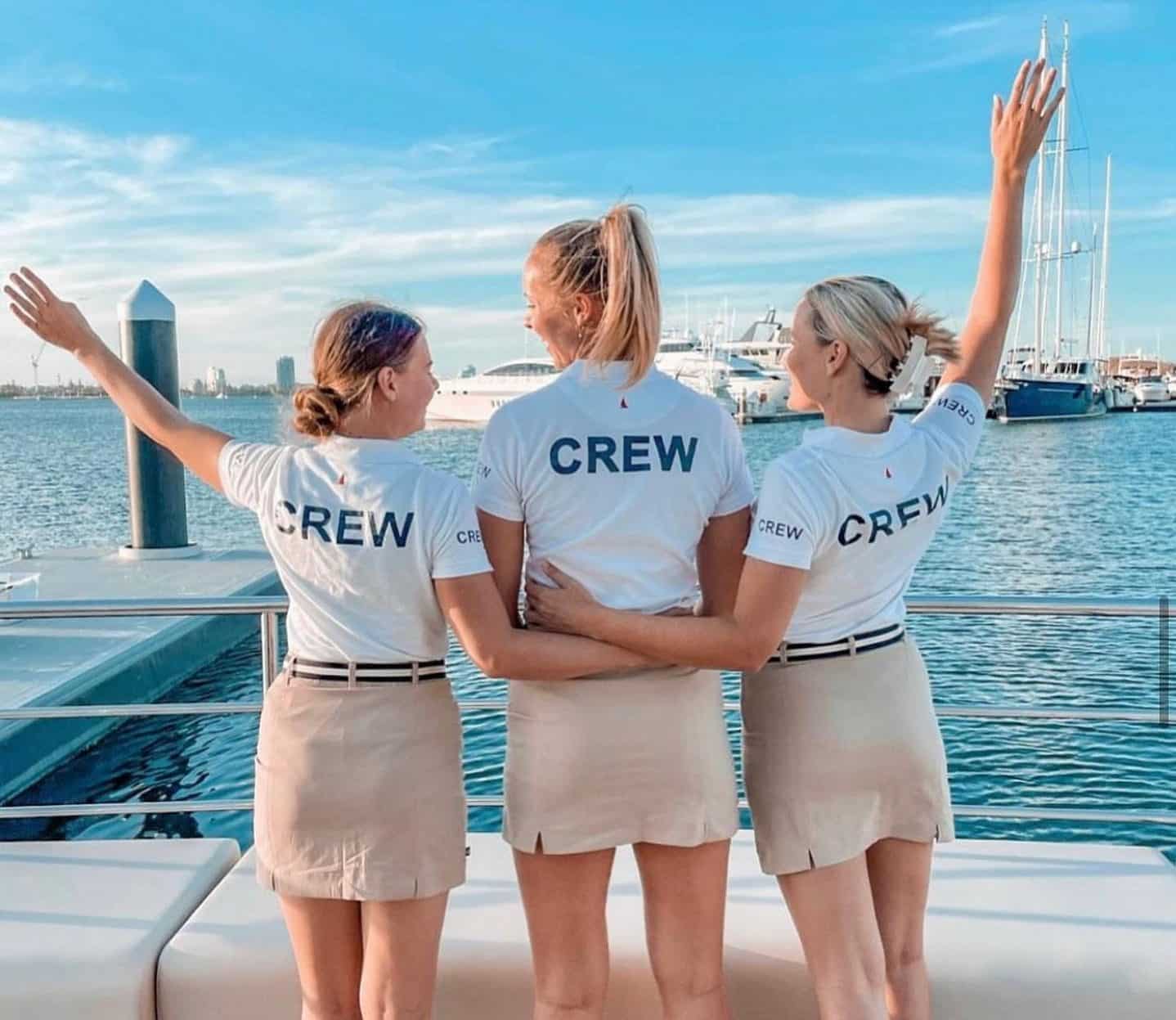
Yacht Stewardess Full STCW
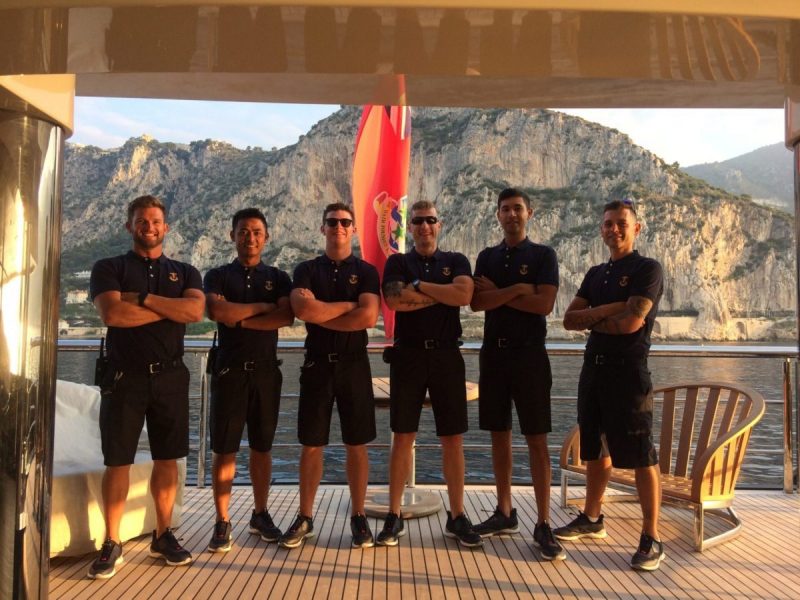
Superyacht Deckhand Full STCW

Top 10 best places to find a Yacht job in the Med 2024?

Find the Best Yacht Deckhand Training In Fort Lauderdale

Exploring Yacht Stewardess Training in Fort Lauderdale: A Comprehensive Guide

All You Need to Know About Yacht Stewardess Training in United States

Yacht Stewardess Training in Florida: Launch Your Yachting Career

Understanding Food Hygiene Level 2 For Yacht Crew

An Ultimate Guide to ENG1 Medical Certificate for Yacht
Superyacht crew training europe.
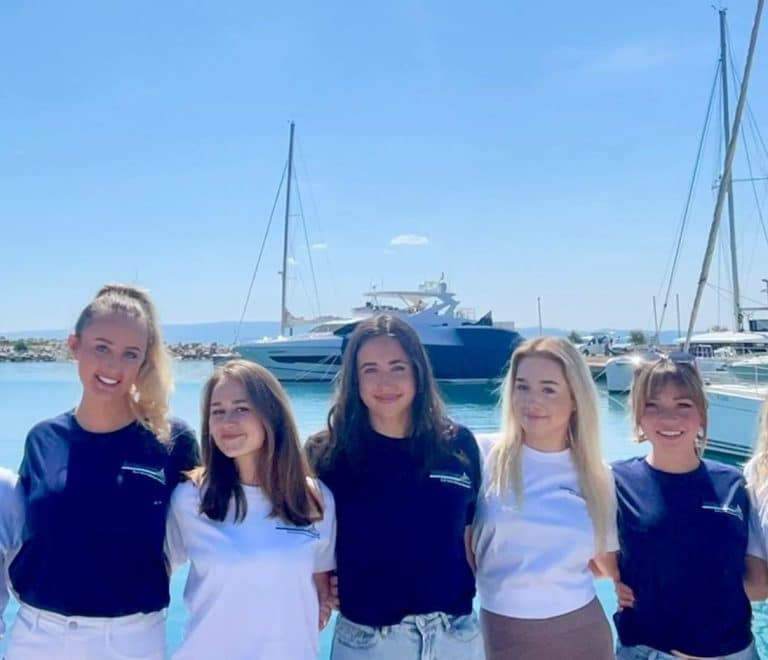
July Training Fully Booked – 2 last spots for August with code yachtie50
Get free yacht cv and yacht job offers
The Full List of Yacht Crew & Staff
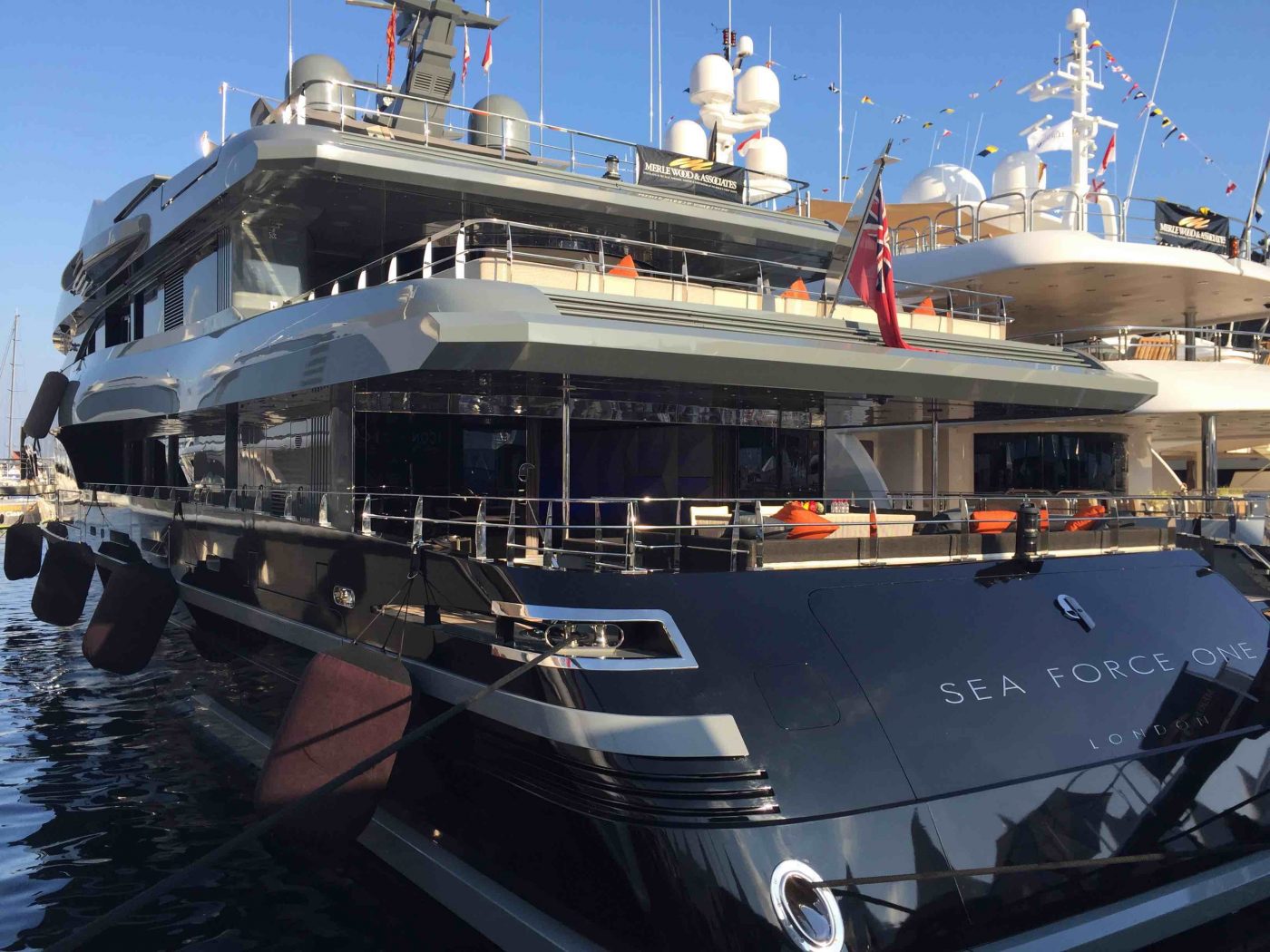
Published on November 22, 2016
Working on board a super yacht is a fascinating career. Life at sea, whilst demanding can be an extremely lucrative and exciting career path. But do you know the full list of yacht crew and staff? And what it takes to work on a yacht?
Whilst it is more suited to the younger generations, the process and types of crew involved with running these magnificent vessels is impressive.
Of course, the types of staff required for each vessel vary depending on the size of yacht and the type of yacht. In the super yacht world, it is likely that a large number of the below crew will be involved for each yacht. Wow, the staff required to operate a yacht... Share on X
Here is an overview of the crew involved in building, maintaining, and running these floating mansions:
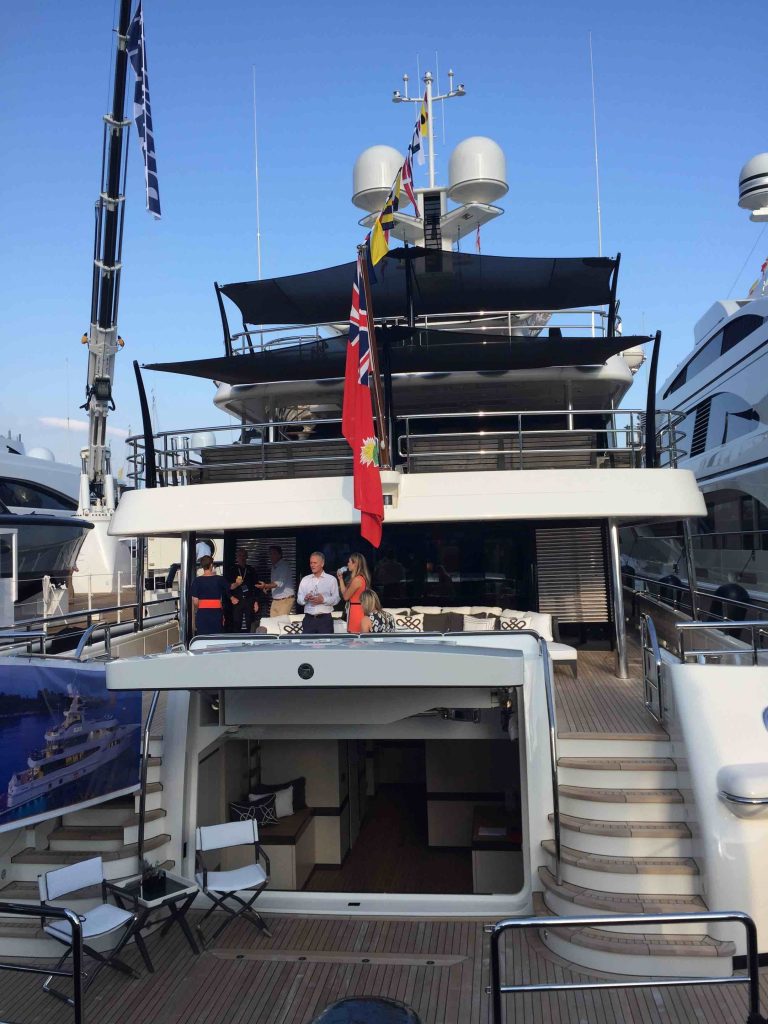
As captain it is you are responsible for the crew, guests and vessel. Every crew member and even visiting guests fall under your command and you have the final say on all yacht decisions. Alongside your qualifications , expect to be paid a high salary in return for your professional service.
Captain/Engineer – A multi-faceted role, this combines the skills of captain with Engineer. A highly sought-after type of crew, they will straddle the skills for both captaining the boat and ensuring engineering issues are dealt with whilst at sea.
1st Officer – Sometimes known as Chief Officer or Chief Mate is second in command to the Captain and manages all the deck crew including the Bosun, Deckhand and any second or third officers. You would be required to undertake bridge duty and thus have a good range of qualifications and skills.
2nd Officer – Is the second-ranking position to the 1st Officer. You would require a good level of qualifications and skills to achieve this position. A 2nd Officer may also be designated in additional areas such as security, medical, or safety, depending on background and specific skills.
3rd Officer – Is the third-ranking position to the 2nd Officer. Qualifications and skills as per the other officer roles are required.
Chase Boat Captain – A chase boat is a vessel which does not live on the main yacht and often has their own crew. These can be towed, driven separately, or berthed in a convenient location.
Chase boats are becoming very popular due to restrictions in tender garage space. As the name would suggest this role refers to the captain who is in charge of the chase boat and subsequent crew.
O.O.W (Officer On Watch) – This is a deck officer in charge of keeping watch on the ships bridge and overseeing navigation whilst on duty. The OOW ensures the ship complies with all COLREGS and safety protocols. This position requires additional qualifications in order to help perform the said duties.
Bosun – Sometimes referred to as the Leading Hand or Senior Deckhand, the Bosun is an experienced deckhand most likely able to take on additional and extra responsibilities. They tend to be the main tender driver and take additional responsibilities in security. Like a deckhand, less qualifications are required, but flexibility and the ability to take direction and blend into the team environment is very important.
Lead Deckhand – As the name suggests, the Lead Deckhand will be in charge of the other deckhands. Generally, only found onboard yachts where more than one deckhand is required, this is a position of responsibility. Ultimately the buck stops with the lead deckhand, so it takes a strong personality and adaptive approach to get the job done regardless of the day or hour!
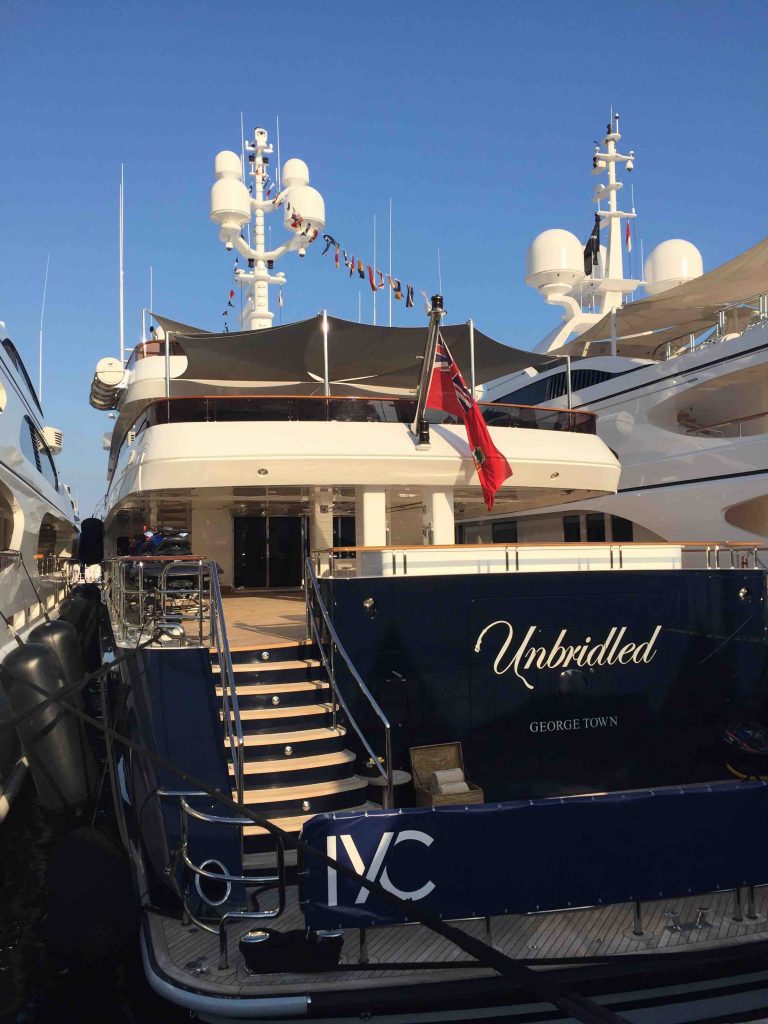
Security Officer – Super yachts are valuable and expensive items, so a dedicated security officer is commonplace. Spending 60 million on a superyacht is considered to be a mid-level purchase in the superyacht world!
Security officers are often employed to take control of all aspects of security, from when the yacht is moored in the bay (and the crew depart for downtime) through to being moored on land. This position is suited to close protection and military background candidates with specific qualifications in security.
Commercial Shipping Master – This is a phrase referring to a Captain of a commercial shipping vessel. They are in essence the captain of the boat (see captain) but will typically be in charge of commercial operations rather than private or chartered yachts and super yachts.
Professional Race Crew – These are unique and exceptional individuals, with a strong background in shipping. Race crew members require a high level of qualification and ability to focus whilst leading the crew and vessel to compete in international competitions.
Purser – Is in charge of the interior and financial matters in accordance to the ship. Normally found on large yachts and superyachts, the Chief Steward will report to the purser. Due to the amount of admin required a strong background of accounts and bookkeeping is required.
Chief Steward/ess – Will be the most experienced member of the Steward team. They will often be in charge of recruiting and training less senior members of the team. The chief steward should have the ability to think ahead, plan for every possibility and focus on the finishing touches and detail required for the very highest standard of service. Yachting qualifications and a proven history of working onboard large yachts are required for this position.
2nd Steward/ess – Second in command to the Chief Steward, the 2nd steward is in charge of all duties as requested by their superior. The 2nd steward ensures interiors, housekeeping, laundry and the presentation of the vessel is spotless. Their duties may include anything from childcare (if required) to pet care. They work closely with the crew to ensure that the guest and clients experience onboard is perfect.
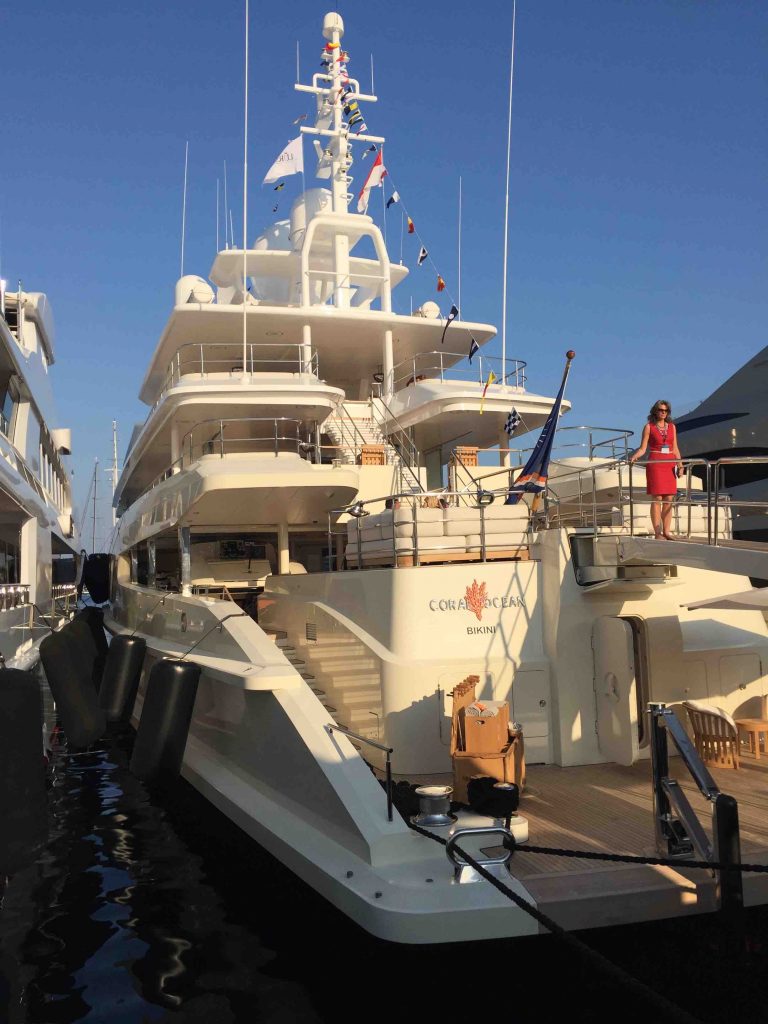
Steward/ess – A role found onboard every yacht or superyacht, the steward is in charge of client experience. From housekeeping through to food and drink service, the steward helps with all aspects of running the yacht. Stewardesses are expected to work long hours and have a good, positive and flexible attitude.
Stew/Deck – This is a combined role between a Steward and Deck crew member. This role straddles both the interior and exterior of the yacht and is a popular choice when needing additional staff on board.
Solo Steward/ess – Typically found on much smaller vessels, the solo steward will be the only steward on board.
Head Chef – Is perhaps one of the most important roles on board. The right chef is the key to a successful crew and perfect guest experience.
A head chef must have a wide range of culinary experiences, and be able to take part in the service for the guests if required, including Silver Service , Buffet Service and Fish filleting at the table.
Sous Chef /2nd Chef – The assistant to the head chef, the sous chef will help the Head Chef with all cooking duties and also cook for the crew of the yacht. Often this role is combined with a steward position, but on the larger vessels this may be a self-contained role (see Cook/Stew).
Cook/Stew – This role combines cooking with steward duties. Assisting the head chef, and then performing standard Steward duties (see Steward).
Cook – This position is suited to an individual who is less experienced as a chef but enjoys cooking. This would be a candidate who is happy to cook for the crew and guests (if required),and will be often used during off duty hours (for example if the chef is sleeping). Generally, not an individual role (unless the yacht is very big), this is a good skill for any of the main crew to have on their CV.
Head of Housekeeping – Often this role is found in the larger vessels or commercial cruises, this person would be in charge of housekeeping and be a specialist in this subject. They would oversee the duties and work closely with the Chief Stew.
Laundry Personnel – This may be a crew member with additional skills in laundry, or on the bigger vessels this may be a dedicated role. This role is typically found more in commercial shipping where the cruise ships require a huge amount of laundry each day at sea.
Beauty/Spa therapist – This is a role-specific with skills in line with beauty and holistic treatments. Superyachts will generally have an area for pampering and your role on the vessel is to satisfy the client’s needs. You would need to have traditional therapist qualifications , along with your yachting qualifications. It is often common to combine the role of 1st Officer/2nd Officer with a combination role.
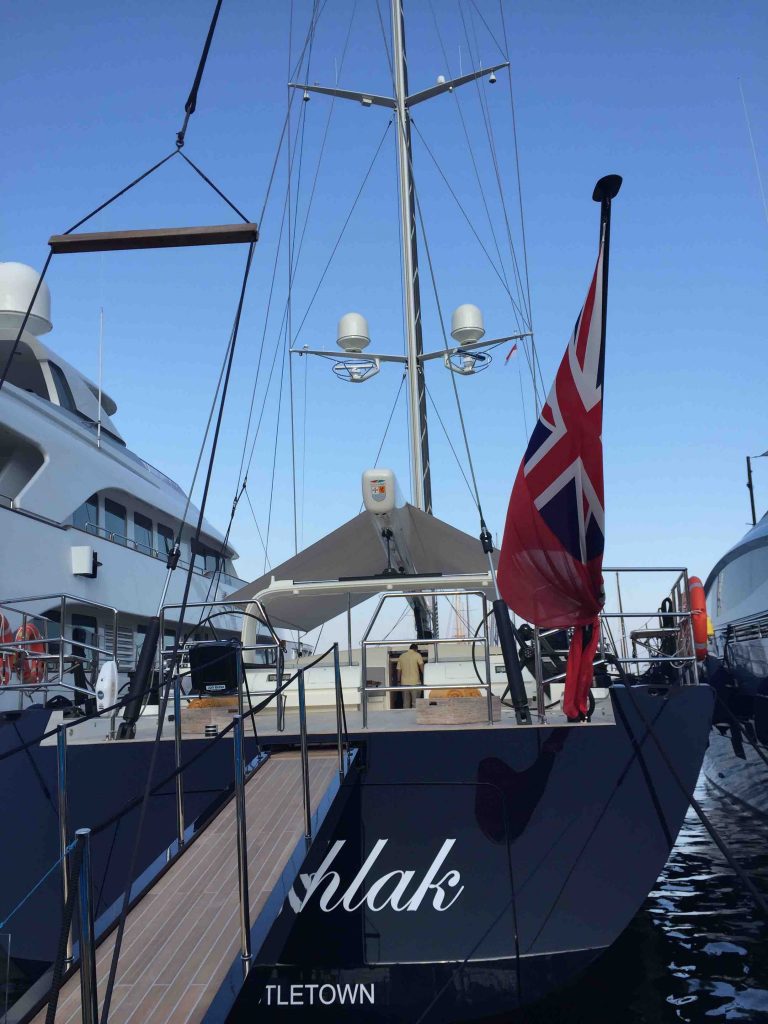
Masseuse – Involved in the beauty/spa area onboard, the masseuse role is to relax and treat the guests at their leisure. From sports massage through to Swedish and reflexology, a range of massage techniques is preferred. Again, this role can be combined with the Beauty/Spa therapist (depending on the size of the yacht) and can also be combined with main crew duties.
Fitness Trainer – Roles specific for personal trainers or fitness coaches, these team members would work with the guests in the dedicated gym areas helping with fitness goals whilst at sea. These might be specific training programmes or general conditions. Again, this role might be a combined role with other crew duties.
Nurse – An important role, particularly if the yacht doesn’t have facilities for helicopter landing. Qualifications must be in line with medical guidelines, and the nurse or Doctor should have ability to cope with a wide range of illness and ailments. Up to date First Aid and yachting qualifications will also be expected. Again, this role can be combined with the main crew duties.
Engineering
Chief Engineer – This member of the team is required to oversee and ensure that the electrical and engineering of the yacht is operating without issues. They should be flexible and willing to help fix not only important problems, but even be willing to help fix a broken toilet!
At sea the right part might not be immediately accessible, so an engineer should be able to troubleshoot and think outside the box.
2nd Engineer – Second in command to the Engineer, the 2nd engineer assists and helps with all duties around the maintenance of the vessel.
3rd Engineer – Third in command to the Engineer.
ETO (Electrician Technical Officer) – Normally employed on larger vessels where the support is required. They report to the Chief Engineer.
Electrical Engineer – Again this role is similar to the ETO. Reporting to the Chief Engineer and holding qualifications in Electrical maintenance.
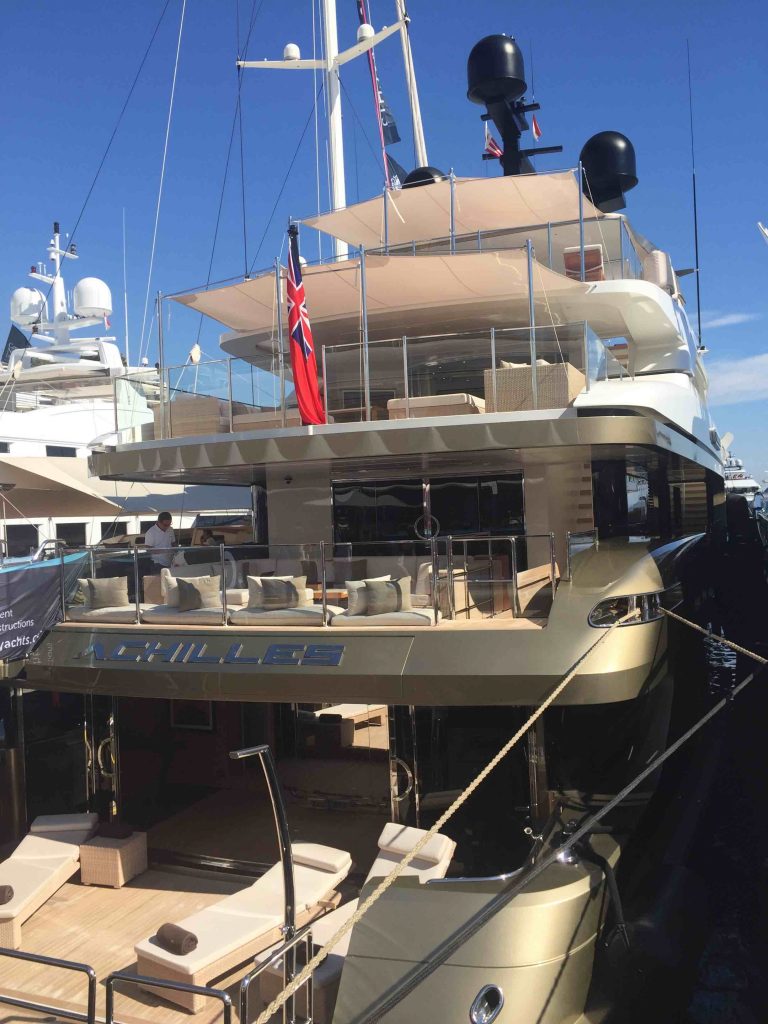
Pilot – For the larger vessels, commercial and cruise yachts, access to the vessel is often by air (helicopter or seaplane). The larger vessels may well have their own aviation permanently stationed on the yacht, and in turn a pilot is required to fly the appropriate aircrafts.
Shore Based
Admin – As the title suggests this team will manage the administration, HR and paperwork of the yacht. Working closely with the purser onboard and with the owner of the vessel, ensuring that the specific operation of the yacht is always managed correctly.
Admin will be closely linked to the Captain, Purser and Chief Steward on the yacht and will involve a whole host of specialised skills from graphic designers through the tech, online support teams.
PA – This role is suited to a highly organised and efficient team member. Working closely with the admin team and the crew onboard the yacht.
Villa Staff – As the name would suggest, this would encompass a wide range of shore-based staff to work within the villa’s typically frequented by the yacht. This could range from a Butler through to Nanny, Housekeeper, Chauffeurs etc.
Contract Workers
Alongside the main crew of the yacht, there are contract workers who are brought in for yacht maintenance. As and when this might be required. These roles are self-explanatory. And they all work to ensure that the yacht is maintained. Any repairs are done efficiently when the yacht is in port or moored for the day.
Roles include: Day Worker, Varnisher, Painter, Spray Painter, Carpenter. Shipwright, Metal Fabricator, Welder, Rigger, Laminator, Electrician. Electrician Expert, Sail Maker, Project Manager. Customer Service Staff and Catering Staff.
How Polo & Tweed Can Help
Did you find this full list of yacht crew & staff helpful? And would you like to work on a yacht? Get in touch with us! Polo & Tweed regularly source and place the finest yacht crew around the world. If you are interested in registering with us or are looking to recruit your new crew members, please don’t hesitate to get in touch with us.

Impartial training and careers advice
Call us: +441983 280 641
+441983 280 641

- The Superyacht crew hierarchy explained
When you first start looking for Superyacht crew jobs, you’ll most likely be considering becoming a Deckhand or Stewardess.
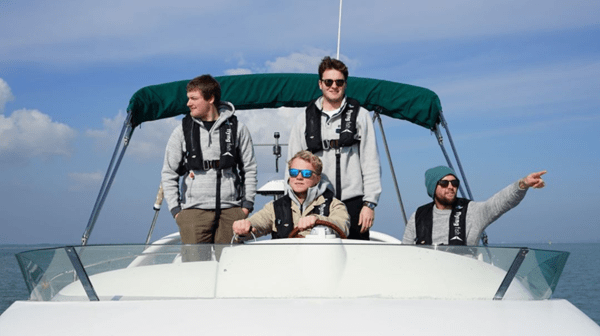
These are two of the most popular entry point roles into a Superyacht career, and – as we never tire of saying here at Flying Fish – promise an abundance of benefits and incredible experiences!
Of course, these are not the only Superyacht crew jobs on offer, and if you are about to or have completed your Deckhand or Stewardess training, you may be wondering what other kinds of crew members you’ll be working with.
What’s just as important to know however is the hierarchy of those crew members; not only so that you know who to report to in different situations, but so that, if you want to progress your career beyond the Deckhand or Stewardess role, you’ll have an idea of the best path to take!
To help you out, we’ve outlined the hierarchy of a Superyacht crew for you below…
Depending on the size of the Superyacht, the hierarchy of a Superyacht crew goes something like this:
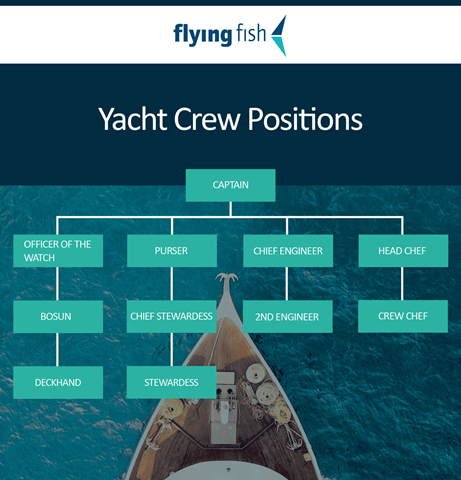
Working under the owner of the Superyacht or the owner’s representatives, the Captain of a Superyacht is responsible for the safe and smooth running of the ship – so he or she is who you will ultimately need to answer to!
The duties of the Captain go beyond navigation and the sailing of the vessel to managing admin, health and safety, ensuring compliance with maritime regulations, financial reporting and much more.
If you’re looking to become a Superyacht Captain yourself, you’ll need to have worked your way up from the majority of the other roles in this blog, as well as undertake a number of other qualifications and be able to demonstrate a variety of knowledge and skills, including seafaring, admin, IT, health and safety, and even accounting.
2. Officer of the Watch (OOW)
The OOW is second in command to the Captain and is responsible for the day-to-day running of the deck, as well as taking care of navigation and running watches when on passage.
They’ll also have a significant hand in the maintenance of the Superyacht, as well as being in charge of the deck equipment inventory.
If this is a role you’d like to progress to, there are several different paths you can take, all of which we’ve shared in our blog “ Becoming an Officer of the Watch (OOW) ”.

This is one of the lesser-known roles on a Superyacht (as their duties will usually fall to the Captain on smaller vessels), but is nevertheless important!
In brief, the Purser works under the captain, taking charge of financial matters on the Superyacht (e.g., accounting, purchasing food, drink and cleaning supplies etc.), as well as taking care of HR and recruitment.
In fact, they may well be one of the first people you meet when you begin applying for Superyacht crew jobs!
In order to become one, you’ll need to have sound knowledge and experience of the Superyacht industry, and have a range of financial and IT skills and qualifications under your belt on top of your STCW certificate and ENG1 Medical certificate.
4. Chief Engineer
A Superyacht is a vast and complex vehicle – so, as well as Deckhands taking care of its exterior, it also needs someone to manage it’s mechanical functioning – and that’s where the Chief Engineer comes in!
In a nutshell, the Chief Engineer (and the 2nd Engineer who works under him/her) are responsible for ensuring that every aspect of the Superyacht’s mechanics runs without a hitch.
If Chief or 2nd Engineer is a role you’d like to pursue, starting off with Deckhand training is a good choice, as it will provide you with a good introduction to Diesel Engine Maintenance and general maintenance and repairs.
5. Head Chef
A Superyacht holiday wouldn’t be complete without delicious meals for guests to enjoy. Every Superyacht therefore has an appointed Head Chef to take on the role of providing these to the highest possible standard throughout the day.
To become a Head Chef on board a Superyacht, you’ll need to have completed all the necessary culinary qualifications to become a chef and have comprehensive experience of working as a Head or Sous Chef in a hotel or restaurant. You’ll then also need to have your STCW Basic Safety Training certification on top!
Working as a Crew Chef (working under the Head Chef and making meals for all the members of the Superyacht crew) is a great entry point into this role.
“Bosun” is another term for “Senior Deckhand.” Their role is to take charge of daily cleaning and maintenance tasks, as well as drive the yachts tenders and (if on a larger boat requiring more crew) look after the Deckhands working under them.
After a few seasons of experience and proven hard work and dedication as a Deckhand, you’ll be in a great position to apply for a Bosun job!
7. Chief Stewardess
The Chief Stewardess is in charge of the Superyacht’s interior, including laundry and service. It is their duty to ensure that guests on board have a five-star experience around the clock! Like the Bosun, the Chief Stewardess will also be in charge of looking after a team of Stewardesses, depending on the size of the boat.
Again, as with a Deckhand, after a few seasons working as a committed and stand-out Stewardess, the Chief Stewardess role will be within easy reach.

8. Deckhand
The role of the Deckhand is to maintain and clean the exterior of the yacht to ensure that it is in perfect condition at all times.
The Deckhand is also involved in other deck operations , mooring, anchoring and sometimes security.
This, along with the Stewardess, is at the bottom of the Superyacht hierarchy, and is best pursued after the completion of a Superyacht Deckhand course .
9. Stewardess
As a Stewardess, you’ll be assisting the Chief Stewardess to ensure that guests on board the Superyacht enjoy only the best possible experience.
This involves working on the interior of the yacht, including service, cabin preparation and providing guests and owners with whatever they need.
Although you can work as a Stewardess without any prior experience (same as a Deckhand), it’s always a good idea to undertake a Superyacht Stewardess course first and gain a number of other skills to give you the upper hand when applying for roles!
How much money do these crew members earn?
Once again, depending on the size of the Superyacht, salaries can vary in these different roles. You can find out more about this in our Superyacht salary guide.
In sum, the hierarchy of Superyacht crew jobs is straightforward – but offers a wealth of exciting career possibilities to the most dedicated of seafarers!
If you can see yourself taking up an office on the ocean and climbing the Superyacht career ladder, be sure to take a look at our Superyacht training courses at Flying Fish.
After just two weeks of Deckhand or Stewardess training, you’ll have everything you need under your belt to impress yacht crew agencies (such as YPI Crew and Insignia Crew ) and take that very first step into a truly rewarding and memorable career!

Related articles

- Seafarers Tax
5 ways to ensure your SED claim is rock solid
The Seafarers’ Earnings Deduction, often referred to as the SED, is a tax legislation that enables seafarers to claim back their UK income tax. It a...

Do I need to pay off my Student loan if I work on a Superyacht?
Good question! First, let me say that the information below is aimed at people who have studied in the UK and took out a Student Loan to cover course ...

Have I got the right experience to work in yachting?
If you’re thinking about working on board a Superyacht, we share the skills and experience you need and how to get into the yachting industry in thi...
- About Sailonline
The One Source For Yacht Charters And Charter Yacht Ownership

- What is boat chartering
- Choose your best charter type
- Choose your charter company
- Choose a cruising area
- Choose the right boat
- Booking your charter
- Your sailing resume
- Yacht Charter Destinations Chart
- Catamarans vs. monohulls
- Bareboat Destination Skills
- Sailing Area Table
- Caribbean weather info
- What to pack for your charter
- Charter boat checklist
- Internet access on charter
- Briefing your charter crew
- Saving money on charter
- All boat charter tips in 1 file
- Budget Charter Fleets
- Provisioning a charter boat
- Booking directly with a boat owner
- The charter days you really get
- Managing your boat on charter
- Boat charter with kids
- Seasickness tips
- Starting a charter from the USVI
- If you damage a charter boat
- Flotilla charters
- Charter with a handicapped child
- Crewed yacht charter myths
- Organize a crewed charter
- Crewed charter tips
- Browse The Database
- Submit your Boat Listing
- Yacht Management Contract
- Buying a boat with a partner
- Bareboat vs. crewed yacht
- Charter Yacht Phase-out
- Phase-out punch list
- Yacht & Marine Surveyors
- Charter Boat Owners forum
- Yacht financial management tools
- 2nd tier fleets financial comparo
- Active ownership FAQ
- Layman guide to charter boat ownership
- Is Buying A Charter Boat For You?
- Buying a used charter boat
- Yacht buyer representation
- Bareboat vs. crewed yacht ownership
- Active Yacht Ownership
- Customers' Testimonials
- Cruising Logs
- Captain licenses
- 'Heaving to' maneuver: A must
- Charter Boat Seamanship Manual
- Yacht Crew Certification: All answers
- Snorkeling & kayaking safely
- Rules of the Road
- MOB Crash-Stop Maneuver
- 5 Knots you must know
- Flag Etiquette
- Emergencies on charter
- Distress calls at sea
- Navigation on a yacht charter
- Navigation aids sheets
- Estimate distances at sea
- Heavy weather basics
- Caribbean weather information
- VHF use: The basics
- Raising Main Sail | UnPC
- Anchoring technique & hand signals
- Catamaran sailing tips
- Docking: Avoid the embarrassment!
- Mooring technique
- Med-mooring technique
- Dinghy handling: make the best of it!
- Reefing a Catamaran
Remember Me
- Forgot your password?
- Forgot your username?
- Create an account
Yacht Crew Licenses & Certifications: Q & A

Captain Mark Fry, of International Yacht Training , answers your questions.
Q : How does one substantiate the requirement of actual cruising time as a qualification for the "6 Pak" license? I have been boating for at least the last 15 years and have substantial hours, however I never maintained a log. I am afraid that this requirement has and will keep guys like me from going for their licenses. Thanks, Dick B.
A : To substantiate sea time for the US Coastguard "6 pack" license on your own vessel, you are required to complete the "small vessel service form" from the USCG. As the owner of the yacht you can sign off your own sea time and have it notorised from someone who can substantiate it such as a dock master, yacht club commodore or such like. If you are not the owner of the boat(s) where you have done your sea time, you must, unfortunately, have each individual boat owner sign each form; then each form must be notarized. Needless to say, this can be a very difficult and tedious task.
____________________________
Q : I am interested in starting a crewed charter business either based in BVI or AVI 1) Is their any captain licence that covers both or do I need two Licences? I am currently located in Newark, DE. USA. 2) Do you have any sugestions for me as far as schools or study guide courses? 3) I have plenty of sea time but mostly on smaller yachets. How can I gain my tonnage ratings for large sailing vessels 100 - 200 Ton Master? David M.
A : It is very interesting that you have brought up this question at this time. The British Virgin Islands passed a law on Feb 1st 2005, that any vessel chartering in their waters must have a qualified Captain on board with a qualification recognised by the BVI. Here at IYT, we issue dual certification for American citizens. That is a 200 Ton Yachtmaster Offshore certificate and a USCG 200 Ton Masters license. This helps satisfy both administrations so you can work in both the BVI and the USVI. IYT holds the dual Yachtmaster course once a month in our Ft Lauderdale facility. Details of entry level requirements, course schedule and pricing can be found on our website.
Q : Is it true that boat insurance goes up dramatically when one obtains a Captains License? We have heard this, but would think that the opposite should be true - that a licensed captain should be a lower risk. Rebecca V.
A : You are absolutely correct, there are a number of companies that will give you a reduction in your boat insurance if you hold a Captain license or a recognized certificate of competency. But like car insurance, you should shop around for the best deal.
Q: How do I get an International Certificate of Competency (ICC) to charter in Spain? William C.
Here at IYT in Ft Lauderdale, we are licensed to issue ICC's on behalf of both the U.K. and the Irish Governments. Generally speaking however, you must be a resident of one of these countries in order to obtain an ICC. We are trying to find out how we can issue ICC's on behalf of the US Coastguards but so far have been unable to get a satisfactory reply. We have also requested permission from the Irish Government to issue ICC's to non-Irish residents and are currently awaiting a reply. If we get permission to issue ICC's in the US from the Irish Government, then as part of the EU this certificate will be good to charter anywhere in Europe. You will be able to obtain this certificate here is the USA. As soon as we get an answer we will update you.
Q : I'm a bit confused...."Yachtmaster" is a registered Trade Mark of the UK's Royal Yachting Association. Your website doesnt even mention the RYA and you seem to have no affiliation with it!! As a long term holder of RYA certification, I would not like to see my qualifications degraded or indeed the Yachtmaster Offshore or Ocean tickets confused with anything other than the "real thing"! Tony N-W
A - Hi Tony, International Yachtmaster Training ( IYT ) is a U.S. Corporation and has absolutely nothing to do with the British recreational yachting organisation called the Royal Yachting Association or RYA. This is why there is no mention of it on our website. The term "Yachtmaster" actually belongs to the British Maritime and Coastguard Agency (MCA) who were the first to coin the phrase and issue yachtmaster certificates as the Board of Trade as far back as 1932. In 1973, RYA were given permission to issue "Yachtmaster " certificates by the MCA. In 1999, International Yachtmaster Training was also given permission by the MCA to issue "MCA Recognised Yachtmaster certificates. Yachtmaster certificates are also issued by the Australian Yachting Federation, the Irish Sailing Association, the Cruising Association of South Africa and the Canadian Yachting Association although their certificates are not recognised by the MCA. All of these organisations are recreational yachting associations run by recreational yachtsmen and they issue recreational yachtmaster certificates. Some of these organisations issue yachtmaster certificates with a "commercial endorsement", and certain administrations question the authority of recreational yachting organisations to issue "commercial" certificates.
International Yachtmaster Training on the other hand, is a professional yachting organisation, fully approved by Det Norske Veritas as a Maritime Training Center of Excellence. It is run by professional yachtsmen and we issue professional, commercial Yachtmaster certificates. Our standards are higher than the other organisations including the RYA, as they are fully compliant with the International Maritime Organisation rules for the Standards of Training and Certification of Watchkeepers, or STCW as it is commonly known. IYT does not allow "direct entry" into its examination system as the RYA do, one has to actually sit our courses to obtain our certification. All of our examiners worldwide are professional mariners, not so with the RYA.
The IYT Yachtmaster program is so successful, it is now recognized by 24 Governments worldwide including not only the MCA but also the U.S. Coastguard among others. The demand for our certification as a standard of excellence is such that we now have 33 licensed schools in 20 different countries and this is growing every week. With regard to the RYA registered trademark in the U.K., it is interesting to note that the MCA, who coined the phrase, refuse to recognise the RYA registration. The "International Yachtmaster Training" name and logo, is however a federally registered trademark in the United States.
In conclusion, the IYT Yachtmaster Certificates have become the certificates of choice throughout both the professional international yachting community and recreational yachtsmen. Their compliance with the STCW convention for Basic Safety Training and insistence on completion of all aspects of the training courses ensures a well qualified individual trained to professional international standards. So Tony, when you are ready for the "real thing", contact us, you will be pleasantly surprised.
Q - I keep my boat in Belize. We plan to cruise the Caribbean in a few years (live aboard). Is there any good reason to get my 6-pack license in this case? Mark P.
A - The U.S. is the only country in the world that issues a "license" to drive a boat. All other countries issue a "certificate of competency" which includes a practical examination to prove that you are competent to command a boat. There is no reason to get your six-pack license unless you intend to operate your boat as a commercial charter boat in the US Virgin Islands. The Coast Guard License is only a requirement is you wish to carry passengers for hire or reward in the U.S. or U.S. territories. It consists of a series of multiple choice questions. It is also largely unaccepted overseas as there is no practical component to the training and no "on the water" examination. The most internationally recognised qualification for yachting is the IYT Yachtmaster certificate which also carries a reduction in your insurance if you hold such a certificate.
Q - I intend to operate a charter boat on the USVI. I heard that the USVI have special regulations, different from the USA. What kind of license is needed in those islands? Does the boat have to be US flagged? Knowing that I will be based from the USVI, am I allowed to do charterers pick ups in the BVI? Thank you very much. Joe S.
A - If you are going to be chartering in the USVI, you need to be qualified to US Coastguard standards. This would mean a "Six-Pack" license or similar to take paying passengers aboard your vessel. It is always in the best interests of your qualifications to complete the 5 day Basic STCW training courses (not the 3-day version), which will be acceptable to the BVI. With regard to where you flag the vessel, the best people to talk to are the US Virgin Islands Charter League. You can contact Pamela Wilson at 1.800.524.2061. With regards to being able to pick up charterers in the British Virgin Islands, there have been some changes recently so I would suggest you contact the British Virgin Islands Maritime Authorities for their most recent update.
Q - As a professional skipper, I have been asked several times if I could perform a wedding on my boat, which is based in US waters. If I do, can I deliver a valid wedding license? What is the real validity of this whole thing and how does it REALLY work? Or is it just a gimmick? Please elaborate since it could be an interesting marketing tool for my business. Sincerely, Capt. Gene
A - It was once possible for a ship Captain to marry people at sea. However, this is no longer the case. There are extreme cases where a couple could be married in dire circumstances such as a sinking vessel or someone about to die. But this could only be done in International waters. It is however possible to marry someone on your boat inside territorial waters (3 miles ) provided the person giving the ceremony is duly qualified to do so by the State, such as a public notary. I was married aboard a yacht 7 years ago here in Ft Lauderdale. I would suggest contacting the State authorities to find out how this could be done, it is rather good fun to do so.
Q - I am starting a Skippered Yacht Charter business in St. Vincent & the Grenadines later this year and I see a lot of comments about the "6-pak" license requirements. I am qualified to RYA Yachtmaster Offshore. Do I need any further qualifications (over the YM) to operate the business in SVG ? Graham
A - The "six-pack" license that you refer to is a U.S. Coastguard license which is required for operating vessels that carry up to six people in U.S Territorial waters. This includes the United States mainland and the U.S. Virgin Islands. It can only be taken by U.S Citizens and will be of little or no value to you in St Vincent and Grenadines.
Q - What are the qualifications needed by the different Caribbean countries to run a crewed charter yacht?
A - This is a matter for the Flag State Authority or Maritime Authority on each Island. The problem is there are many different countries involved. There are U.S. British, Dutch, French, Bahamas and all the independent islands who make their own decisions on what qualifications are acceptable for which yachts.
The qualifications will depend on the status of the yacht, whether it is private or commercial (this means engaged in trade or accepting money for a charter), the Flag State or where the yacht is registered, the tonnage of the yacht, whether it complies with a classification society for safety and construction, the number of guests it will carry, whether it is power or sail, its compliance with the code of safe working practices and sometimes the nationality of the crew and / or the number of crew it will carry.
There is also the issue of work permits from the various islands. For instance, one might be suitably qualified to run a charter yacht out of the British Virgin Islands but without a Work Permit from the V.I. Government to do so, it could mean big trouble. The same applies from the U.S. Virgin Islands.
A lot of people think that they can buy a yacht and suddenly start a charter business in the Caribbean. Having spent 6 years running commercial yachts throughout all the islands, I would strongly recommend conducting some research before embarking on such a venture.
Lastly, with regard to RYA Yachtmaster certificates, I would caution that a number of Flag States (including the French Islands) will not accept the RYA Yachtmaster certificates even with a commercial endorsement as they do not believe that a recreational sailing organisation with no quality management system and no auditing requirements in place should have the authority to issue commercial certificates. They also do not comply with the STCW convention as laid down by the International Maritime Organisation.
Before deciding to run a commercial yacht in the Caribbean, I would strongly suggest contacting the Government of the Island to find out as many rules and regulations as possible. The number of yachts doing so is strictly governed, otherwise there would be a "free for all" with no controls in place.
Q - I have limited (almost none) sailing experience. I would love to bareboat charter. How much experience is needed before a bareboat charter company will turn the boat over to you. Were do you get experience? I know a course would be in order but if I go to the expense of a course that leads to a bareboat certification is that enough?
Depending on where you live, approach a reputable sailing school (there is no other way to do this). I recommend Offshore Sailing School ( http://www.offshore-sailing.com ). They have many outlets all around the country. Or any Certified ASA school.
Q - A quetion about lowering flag from a yacht club yard arm has arisen here in Marblehead, MA. Specifically, the Canadian flag was flown from the yardarm before and during the Marblehead-to-Halifax ocean race recently. Clearly, the U.S. ensign is the last to be lowered ceremoniously, as you say. But which of the other two that flew should be lowered first, the Canadian flag or the yacht club's burgee? Bud P.
A - The flags should be lowered as follows 1) Club burgee first 2) Canadian flag second 3) US Flag last
Q - I understand that with a US flagged vessel I could operate a charter vessel outside US territorial waters without the need of the "six-pack" license, am I correct? And in the event the charter is based in one of the "non US" Caribbean Islands, is it the authority of the starting island of the charter that gives permission to Charter or do I need a permit from every other "island country" on the way, if it is different than the one at the start of the charter??
A - To run a charter yacht, you are required to comply with Flag State regulations irrespective of where in the world you operate. To operate a US flagged yacht, you would need to be US Coastguard qualified such as a 50 ton or "6 pack". Other islands have the authority to confine a charter boat to harbor if the Captain is not properly licensed. I would also doubt very much if an insurance company would insure you to operate a charter yacht without the proper license as the insurance would probably be void if there was an accident.
- PREMIUM FILES
- Pre-Owned Yachts
- Charter Boat Owners/Buyers Forum
- Favorite Links
Most read articles
- Boat flag etiquette
- VHF Radio Basics
- Catamarans - Monohulls: Pros and Cons
- Charter Boat Ownership for Dummies
- Charter Boat Owners Group
Copyright ©2000 - 2022 Sailonline.com. Unauthorized reproduction prohibited. Sailonline is not affiliated with any charter company.

Get Onboard
Superyacht Training

Do you Want to Work on a Yacht? The truth about Yacht Crew Life
We know a thing or two after having spent over 10 years living the luxury yacht life . It sounds glamorous, epic and like so much fun and totally not like a “real” job at all. I mean you get to travel the world and rub shoulders with the rich and sometimes even the famous. But pretty postcards, endless parties and bikinis it is not. It’s hard work crewing a luxury yacht. And it’s not for everyone.
Here’s the truth about yacht crew life.
It can be all the fun, sunshine, exploration and travel – but that is not the job. Yachting is an industry of extreme highs and extreme lows. Not all yachts are the same. You may strike it incredibly lucky and land yourself the utopian yacht, crew and billionaires who care. But in reality, you’re more likely to be living off Red Bull and doing 36 hour shifts, too tired to do anything but stare at the shore from your porthole window. No day aboard a yacht is the same. Workload and the type of work you’ll be doing changes depending on the season, whether you have guests on board, have any maintenance issues and also how new you are to the crew (rank & position too). A superyacht requires never ending upkeep. The yacht needs to be kept in immaculate condition, as do the crew, and the crew always need to be prepared for any situation.
Working on a superyacht is very hard work; you have to be at the beck and call of guests who have some quite particular requests that are almost impossible to fulfill. Whatever the guests require it is your job to make sure they get it. With a smile. The money is great though, but also varies based on position, qualifications, yacht size, where the yacht is located and if it’s private or charter. In general, a slightly higher salary is offered if the yacht is private with the hope that, if you work on a charter, you will make up your salary with tips. Once you have completed a particular charter you might just get a day or a night to explore the splendid ports of call with a nice big gratuity in your pocket. These kinds of opportunities are extraordinary and for that moment, any trials you may have encountered with the world’s wealthiest whilst facing unruly seas, unpredictable weather and even more unpredictable and unruly guests, diminishes.
All in all what happens to so many people in this industry may happen to you. Despite the challenges, you join for a season and fall in love with the lifestyle. Yacht life might not be for everyone, but if the bug bites you, it bites hard! Yachtie for life ! If you are thinking about getting into the yachting industry, download our eBook and find out all the insider tips of surviving , and preparing for yacht crew life.
Needing more?
Error: Contact form not found.
RYA/MCA Online
1. what are the basic requirements you need to be eligible to work in the yachting industry, 2. what is the stcw and why do i need it, 3. what is the eng1 medical certificate, 4. what land based experience will help me find a super yacht job, 5. what are the different departments onboard, 6. what crew training is required for me to work as a junior deckhand.
- Yachtmaster/Coastal Skipper Theory
- Yachtmaster/Coastal Practical
- Specialist Super Yacht Training Course (Deck Hand Training Course)
- RYA Power Boat Level II
- RYA Personal Watercraft Course
- RYA Competent Crew Certificate
- RYA Day Skipper Theory and Practical Certificates
- VHF Radio Operator’s License
7. What crew training is required for me to work as a junior stewardess?
- Stewardess Course
- Proficiency in Designated Security Duties (PDSD)
- MCA Food Safety Level 2
- RYA Powerboat Level 2
8. How do I book my training courses?
9. how do i get my first job on a yacht, 10. are these courses worth it, or am i just wasting my money, 11. will i get hired for my first job from south africa, 12. what is daywork, 13. what are the best locations to get a yacht job, 14. how much can a motor yacht stewardess or deckhand earn, 15. what are the negatives of working on a yacht, 16. what are the positives of working on a yacht, 17. is working on a super yacht for everyone, 18. what is the minimum age to work on a yacht, 19. is accommodation provided when i am completing my yacht training in cape town.
Log in or Sign up

You are using an out of date browser. It may not display this or other websites correctly. You should upgrade or use an alternative browser .

BenSeattle New Member
Greetings from semi-sunny Seattle, As my golf career winds down I'm becoming increasingly enamored of the boating life, particularly because I'm exposed daily to the wonders of Seattle's expansive waterways. I've always been envious of friends who've invited my family to tour Lake Washington or cruise up the Puget Sound to the San Juan Islands... particularly during this time of year: Seattle's four-month summer! While country club and resort golf has been my passion for years, I've recently come to the conclusion that a whole new chapter of exploration, recreation and education could be opened with the purchase of an appropriate power boat. Naturally, the costs of yachting are significantly more than those associated with even the most enthusiastic golf endeavors, but at this stage of my life I continue to ask myself, "Why not buy a boat?" and every answer continues to tell me I should. Like many first-timers, I'm both excited and cautious... eager to jump in but also determined not to make a mistake. I look forward to using this Forum to interreact with others whose knowledge is vastly deeper than my own. First question: how large can I go without a crew? Certainly, I would in the early stages of ownership antaicipate being accompanied by a Captain who can accellerate my education, but at some point I would expect my use of the boat will find such a presence unneccesary, save for special events where would be devoting most of my attention to guests. I envision most of my time on the water to be one-day excursions around the lakes as well as three-to-four day outings through the San Juan Islands and into the waters off Canada. Alaska? Perhaps one day. Our family includes myself, my wife and teenage boys, 15 and 17. Therefore, I'm curious as to whether this "crew" will one day be sufficient to manage what I would consider to be a fairly large vessel. At this point, I'm most attracted to yachts in the 75 to 95 foot range. Do I have enough bodies or should I already count on bringing aboard a handful of hard-working seamen? Please feel free to include any advice and counsel regarding this or other topics suitable for a newcomer. Happy cruising.
OutMyWindow Senior Member
Having my share of mishaps very long time ago when I first got into boating, my thoughts are that a 90 foot yacht for a first timer may be courting disaster. I suggest you take your family on a charter yacht of about the same size up to Alaska, and do a lot of watching, talk to the captain and get a feel for things first. Good luck I don't want to scare you but the Pacific Northwest is and can be very treacherous for the unexperienced. http://www.pacificshipwrecks.ca/english/wrecks.html
goplay Senior Member
Good question... I got into boating last year and bought a 47'. I used it a lot, running it myself and put 100 hours on it in less than 12 months. After having a larger boat, and knowing what I wanted in a larger boat I decided to commit some major dollars to buy something bigger. Your question was my first question... how big can I go with just my fiancee and myself running it? I had a range of answers, including professional captains who run single handed 80'+. A lot has to do with experience and a lot has to do with the type of boat. I personally came to the conclusion that 60-65' is probably optimum for two average boaters to handle, have reasonable chances of finding slips (transient and permanent), size for a greater range in seas, fuel range, accommodations etc. I would stretch this to the 70' range but slips become much harder to come by (at least in CA). The key issue to consider is insurance. Most insurance will only allow you to jump in 10' increments if you are running it yourself. With the 62' I am buying I will have to have a captain with me. I don't see that as a big issue most of the time since it is a cheap way of avoiding trouble and learning at the same time. I do plan on, however, operating it myself but with the captain's presence. Hopefully I will be able to drop the requirement for a captain. If slips and insurance (jumping up 25') weren't an issue I would go for a 72-74' and avoid a possible future upgrade!
outmywindow said: Having my share of mishaps very long time ago when I first got into boating, my thoughts are that a 90 foot yacht for a first timer may be courting disaster. I suggest you take your family on a charter yacht of about the same size up to Alaska, and do a lot of watching, talk to the captain and get a feel for things first. Good luck I don't want to scare you but the Pacific Northwest is and can be very treacherous for the unexperienced. http://www.pacificshipwrecks.ca/english/wrecks.html Click to expand...

nas130 Member
One of my bosses tried to run a 70 something footer by himself and wound up hiring a captain. Bigger boats need a lot of attention. Most work can be subcontracted out, but you still need to manage the boat. If you want to show up and go, hire a captain. If you do not mind putting in the time, you can run a large boat by yourself. You can hire dayworkers for wash downs and some of the dirty jobs. Once you get the experience if you buy a bigger boat you can drive the boat and hire a mate/engineer and stew to keep things ship shape. nas
Not just me! Please know that I appreciate the replies, but I'd better make it clear that I certainly would not run a boat totally by myself. This ain't like, "Honey, I'm going for a spin in the Porsche.... be back in an hour." No, I envisious -- at some point down the road -- putting the wife and two strapper teenagers to work, serving as crew, in addition to acting as guests. Trust me.... should I buy a boat for this family, it won't be so a pair of teenagers can sit below and hammer at the X-Box all weekend! Still, from all indications, on anything above 60-70 feet, an experienced captain sounds like a VERY good idea. Happy cruising.
sailronin Senior Member
Ben, The USCG will require a licensed captain on any vessel 200 gross tons or greater (46 CFR 15.805). So that will be the absolute maximum, however that doesn't make it a good idea to plan on running your own 110 footer. It depends how much time you want to put into the yacht. A boat over 65 to 75 feet will be pretty much a full time job for one person to clean and maintain. If you are retired and want to spend 4 to 6 hours five days a week taking care of your boat, it's a great hobby! Plan on starting with a smaller boat and decide if this is something you want to devote a lot of time to master or if you want to enjoy your time on the water without all the worry, hire a professional. Dave
Billy1119 Senior Member
I agree with most of the above. The time required to clean and keep up the boat is only one aspect you need to think about, and the experience and knowledge needed by a captain isn't just the piloting of the boat, but also the knowledge of the mechanical, electrical, hydraulic, and other systems on the boat that need maintenance and repairs. If you are very mechanically inclined, and your sons are as well, then over time spent with a captain training you what to do, you would be able to handle a boat that size. There is a lot to know, especially on newer boats, and a lot to break. I can spend at least 25 hours a week just keeping up with maintenance and repairs (no cleaning at all) on our 84. There's always something that needs doing. If you want to run a boat of that size (around 80 ft) without crew after a while, just know it's not all going to be fun, it will be a lot of work too. Some if it's fun work. When it's your own boat, though, the work is more fulfilling. 95 ft? Your teenagers better be hard, willing, knowledgeable workers! Hopefully this will give you a little more knowledge of what will be required.
KCook Senior Member
I like the approach outlined by "goplay". Seems to me that a sub-50 foot flybridge would make an excellent "trainer" yacht. baby steps Kelly
Wise counsel Greetings from somewhat somber Seattle: Sage advice, gentlemen, and much appreciated. Billy the Sunseeker made lots of sense especially. Obviously, this may be a case of my eyes being bigger than my capabilities. Naturally, I look forward to appreciating all the "fine points" of yacht ownership, but because I even moreso look upon this venture for its pleasures more than it's pains, it's apparent now that if I'm determined to "run my own boat" a vessel MUCH smaller than 75' is going to be the necessary order. Ah yes... a "trainer" boat. Now, of course, I'll have to decide: go with smaller and "be my own captain" or find myself so attracted to that 75 to 95' length that professional captain and mates should also be factored in. Frankly, while there is much appeal to becoming well-versed regarding all that goes into a skilled yachtsman, it is also true that I'm certainly not looking to take on a full-time job (I already have one of those!) Equally important, I suspect that a smaller boat simply will not have the room nor the amenities that I would like to see. All this, of course, is pure speculation at this point, of course, but I'm delighted to receive valid impartial advice. (Certainly I will shortly be speaking with brokers but those boys tend to want to sell me something....) Happy cruising.
So find a broker who also charters Kelly
TomTom Member
how big There was an info in the mag. Boote exclusiv this year, that Ralf Schumache (the little one of both f1-drivers) changed his MY down to a elegance 64, because he can run it by himself. First it was an 115 Dynasty if i rember right. ( www.elegance.de ) Then in the boot-fair Hamburg Boot last year Drettmann showed a 28m-elegance and they told me, that this the owner is running with 1 multiple skilled captain for quarter-year trips in Europe. The vessel looked well. TS TSOE.com
yachtbrokerguy Guest
In the 60 -70 foot range the cost of a GOOD captain will be substantially lowered by the reduction of yard bills, cleaning bills, and more. A new boat will need someone to oversee warranty work, an older boat takes lots of maintainance. Having fun is hard work, but all work and no play doesn't make for enjoyable yachting. Having had a captain's license for 32 years, I do not hesitate to jump a boat in that size range and run it alone, after the first 5000 landings they are easy, but for a beginner, a knowledgeble captain who wants to teach the new owner will take much of the stress away. After owning a boat in that size for awhile you can later decide if crew makes it more enjoyable or if you can do it yourself. Bigger than 75' almost always has crew except for long term owners who have spent years moving up. Finding the right captain is often as hard as finding the right yacht, do not try to save some money there, if you pay peanuts you will get monkeys.
Garry Hartshorn Senior Member
Talking about monkeys I saw a guy cleaning teak decks today on the boat next to me with straight teak cleaner and a wire brush, may have been cheep labour but what is the damage done worth ???
A WIRE brush? I think most monkeys would know not to do that.
Well it would have been worth employing a professional crew rather than a monkey even though most monkeys would know better......
Garry Hartshorn said: Well it would have been worth employing a professional crew rather than a monkey even though most monkeys would know better...... Click to expand...

MYCaptainChris Senior Member
My suggestion I would definately say stick to the 40-55 foot range, I have a friend back in the UK who runs a 46 foot Princess very well with his wife and two teenage sons. His problem at the moment is that his sons are at that age where they don't want to spend it with the parents, and however capable his wife maybe it is proving alot of work for just two. Saying that I run a 111ft steel yacht with just two. This is only because my budget has been reduced to the extent where the yacht can no longer go to sea. With just the two of us working approx 8am-6pm (often more) monday to friday and at least 6 hours over the weekend (once again often more) I would have to say we are still not keeping up with the maintenance. We need at least another two crew and a new owner!!!! The larger the yacht and the older the yacht the more maintenance you need to do. If you really want to enjoy your yacht either get full time crew or stay on the smaller side.
Chris, could you expand a little on what chores are eating up the most manhours on your yacht? curious Kelly
Man hours Mostly cleaning, but the engine room needs constant attention on a yacht of this age. I am currently re-wiring one of the Gensets as all the old wiring has oxidised. Fixing leaks in the fresh water system, keeping the water makers maintained and in the case now pickled, running up the mains and gens on a weekly basis which then requires the topsides to be washed down. Flushing through the a/c, clean all sea strainers, exercising valves, preparing the boat for viewings (as it is for sale) and I probably spend 2 hours a day on the phone to the owner. The deck hand spends most of her time recently removing and resealing all the caulking around the cap rails, varnishing, washing down on a weekly basis, (1 person takes 2 days to wash down properly inc decks) perparing and painting any rust and maintaining the yachts tenders which includes a 28ft Chris craft. I am currently researching the costs to rebuild or replace a genset for a potential buyer along with a breakdown of the general running costs of the vessel.
- No, create an account now.
- Yes, my password is:
- Forgot your password?

trending now in World News

Harrowing CCTV shows woman hiding inside shop after alleged gang...

NASA's Curiosity rover makes 'mind-blowing' discovery on Mars

Israeli tanks advance in southern Gaza as Netanyahu says hostage...

Sharks off the coast of Brazil test positive for cocaine,...

Stripper reveals the 'scary' truth about cheating men at bachelor...

Anti-Israel agitators invade Capitol Hill building on eve of...

Theories emerge as to how thrill-seeking couple in homemade yacht...

Teen thief killed when he runs in path of bus after snatching...
Couple in homemade yacht who died and washed ashore in a life raft could have been hit by larger ship, experts suggest.
- View Author Archive
- Get author RSS feed
Thanks for contacting us. We've received your submission.
Experts have offered theories about how a thrill-seeking Canadian couple’s attempted transatlantic sailing expedition turned tragic last month, positing their homemade vessel may have been struck by a much larger ship soon after they departed Halifax on the country’s North East coast.
Earlier this month, the bodies of Brett Clibbery, 70, and Sarah Justine Packwood, 54, were found on a life raft washed up on Sable Island, Nova Scotia.
The area is ominously nicknamed the “Graveyard of the Atlantic” due to the large number of shipwrecks that wind up on its shores.

An official investigation is underway, and although no concrete answers have yet come to light, one leading theory is that their boat was badly damaged by a much larger vessel, forcing the couple to seek refuge in the life raft.
“While they do not have conclusive proof, [investigators] suspect the sailboat … was struck by a bulk carrier likely only a few days after departing Halifax,” a source close to the investigation revealed to Saltwire .
Investigators have reportedly inspected a carrier ship that was in the same area as the couple’s boat — named Theros — at the outset of its voyage, but the results of the probe have not been released to the public.
“The crew of the carrier ship told investigators there were no signs of damage and they were unaware of any collision with a smaller vessel,” the Daily Mirror writes.
The source surmised that the ship’s homemade additions might have presented additional problems, and veteran sailors told the outlet the excessive ballast from batteries and solar panels could have destabilized the boat.

The pair set sail June 11 on a journey that was supposed to take them across the Atlantic Ocean from Halifax to the Azores in their 42-foot yacht, which the couple built themselves.
The eco-friendly boat, which operated without a diesel engine, was due to arrive at its destination by July 2, to serve as a demonstration of how it’s possible to travel the world with electric, wind and solar-powered vessels.
The excursion was to be the couple’s first fully “green” journey on Theros, the building of which the couple chronicled on their YouTube channel, “Theros Adventures.”
Despite the swirling theories about how the doomed voyage turned deadly, the Canadian transportation safety board has not made any formal announcements indicating what happened
“At this time, we cannot say with complete certainty that the sailing vessel was struck by a ship, as we are still gathering information regarding the overdue sailing vessel Theros,” a spokesman said.

Clibbery and Packwood married on the yacht in 2016, one year after they met during a chance encounter at a bus stop in London, England.
Packwood was preparing to donate a kidney to her sister when she met Clibbery, who was visiting from Canada — a heartwarming story that was the center of a 2020 “How We Met” piece in The Guardian.
“We have been traveling and co-creating adventures ever since,” Packwood previously posted on YouTube.
Clibbery’s son, Brett, posted a loving tribute to the couple on Facebook, acknowledging the last few days had been really hard for the family, and news to emerge from the investigation has left it “hard to remain hopeful.”
He continued, “They were amazing people, and there isn’t anything that will fill the hole that has been left by their, so far, unexplained passing.
“Living will not be the same without your wisdom, and your wife was quickly becoming a beacon of knowledge, and kindness. I miss your smiles. I miss your voices. You will be forever missed.”

Advertisement
Breaking News Alerts
Press "allow" to activate.
- Big Island News
- Big Island Polls
- Local Discussion
- Entertainment
- Guest Columns
- COVID-19 Updates
- Hawaii Sports
- Hawai’i Volcano Blog
- Weather Forecast
- Surf Report
- Merrie Monarch
- ʻŌlelo Hawaiʻi / Hawaiian Language
- Hawaii Activities
- Recent Job Listings
- Upcoming Events
- Map of Events
- Post Your Event
- Opioid Crisis
- Latest Videos
- About Big Island Now
- Get the App
- Advertising
- Meet the Team
Privacy Policy | About Our Ads

Coast Guard rescues yacht crew 200 nautical miles west of Palau
The USCGC Oliver Henry (WPC 1140) crew is towing the motor yacht Black Pearl 1, located approximately 200 nautical miles west of the Republic of Palau, after responding to a distress call on Sunday.
The 11-person yacht crew, who reported a locked rudder and flooding in the bilge, is being assisted by the Oliver Henry’s crew with dewatering and damage control as they head for Palau. Their estimated time of arrival is 33 hours.
“Our primary concern is the safety of everyone aboard the Black Pearl 1… We will continue to provide all necessary support to ensure the vessel and its crew reach safety,” said Lt. Chelsea Garcia, the US Coast Guard search and rescue mission coordinator for the case.
The cutter crew was on a routine patrol for Operation Rematau when they received the distress signal and responded. The vessel is a 154-foot 497-ton Belize-flagged luxury yacht designed for dive excursions. They were reportedly en route to Cebu, Philippines, for maintenance.
By 6:12 a.m on July 21, the USCGC Oliver Henry crew arrived on the scene and noted the vessel’s steering issues, including a locked rudder at 10 degrees, and that the vessel was taking on water. At 6:53 a.m., the Oliver Henry crew placed a rescue and assistance team aboard the Black Pearl 1 to help with dewatering and assess damage control needs.
“Search and rescue is the Coast Guard’s no-fail mission, and our commitment to this responsibility is unwavering. Fast response cutters, like the USCGC Oliver Henry, are crucial in our ability to respond effectively to emergencies across this vast region. The AMVER system is another critical tool in our mission. Sponsored by the US Coast Guard, AMVER is a global ship-reporting system that allows us to identify and divert participating ships to assist those in distress at sea without imposing additional obligations beyond international law. In an emergency like this, we are all partners,” said Capt. Robert Kistner, commander of US Coast Guard Forces Micronesia.
US Coast Guard Forces Micronesia personnel are responsible for a 1.9 million square nautical miles search and rescue zone.

Sponsored Content
Subscribe to our Newsletter
- Send Me Daily Updates
- Send Me Weekly Updates
Related Articles
- Hawaii Videos
- Hawaii Jobs
- Events Calendar
- Meet the Writers
- Advertise With Us

Facebook YouTube Twitter Instagram
(e.g. [email protected])
Remember me
Forgot Password?

- SECRETARY OF DEFENSE LLOYD J. AUSTIN III
- Combatant Commands
- Holiday Greetings Map
- Taking Care of Our People
- Focus on the Indo-Pacific
- Support for Ukraine
- Value of Service
- Face of Defense
- Science and Technology
- Publications
- Storytellers
- Tell Your Story
- Media Awards
- Hometown Heroes
Hometown News
- Create Request
- Media Press Kit

- DVIDS DIRECT
Media Requests
About dvids.
- Privacy & Security
- Copyright Information
- Accessibility Information
- Customer Service
U.S. Coast Guard rescues motor yacht crew 200 nautical miles west of Republic of Palau

Courtesy Photo | A rescue and assistance team from the USCGC Oliver Henry (WPC 1140) approaches the... ... read more read more
Courtesy Photo | A rescue and assistance team from the USCGC Oliver Henry (WPC 1140) approaches the 154-foot 497-ton motor yacht Black Pearl 1, located approximately 200 nautical miles west of the Republic of Palau, on July 21, 2024, after responding to a distress call. The 11-person yacht crew, who reported a locked rudder and flooding in the bilge, was assisted by Oliver Henry's crew with dewatering and damage control. They were then towed toward Palau by the Oliver Henry in 25 mph winds and 4 to 6-foot seas. (U.S. Coast Guard photo by Petty Officer 3rd Class Ryder Nolan) see less | View Image Page
SANTA RITA, GUAM
Story by chief warrant officer sara muir communicator of the year 2018"> feature photo 2016"> operational documentation 2016"> pictorial 2016"> portrait 2016"> storyteller of the year 2016"> commentary/blog post 2016"> feature story 2016"> photojournalism 2016"> , u.s. coast guard forces micronesia / sector guam.
SANTA RITA, Guam — The USCGC Oliver Henry (WPC 1140) crew is currently towing the motor yacht Black Pearl 1, located approximately 200 nautical miles west of the Republic of Palau on July 21, 2024, after responding to a distress call. "Our primary concern is the safety of everyone aboard the Black Pearl 1. The swift response and ongoing efforts by the crew of USCGC Oliver Henry exemplify our commitment to safeguarding lives at sea. We will continue to provide all necessary support to ensure the vessel and its crew reach safety," said Lt. Chelsea Garcia, the U.S. Coast Guard search and rescue mission coordinator for the case. The 11-person yacht crew, who reported a locked rudder and flooding in the bilge, is being assisted by the Oliver Henry's crew with dewatering and damage control as they head toward Palau. Their estimated time of arrival is 33 hours. The weather on the scene is reported as 25 mph winds and 4 to 6-foot seas. The cutter crew was on a routine patrol for Operation Rematau when they received the distress signal and immediately responded. The vessel is a 154-foot 497-ton Belize-flagged luxury yacht designed for dive excursions. They were reportedly en route to Cebu, Philippines, for maintenance. At 3:37 p.m. on July 20, JRSC Guam watch received an Inmarsat C distress alert relayed from the team at JRCC Australia, identifying the motor yacht Black Pearl 1. Initial information lacked the distress nature or position, but the watch received an AIS position and diverted the Oliver Henry crew. They also identified the U.S.-flagged general cargo vessel SLNC York, 135 nautical miles away, and requested their assistance through the Automated Mutual-Assistance Vessel Rescue (AMVER) program. They diverted from their voyage and arrived on the scene at 12:30 a.m. on July 21. They made first contact with the yacht crew and relayed to Oliver Henry that the vessel had a steering issue but was not requesting assistance, attempting their repairs. All persons aboard were in good health, and the vessel had power. By 6:12 a.m on July 21, the USCGC Oliver Henry crew arrived on the scene and noted the vessel's steering issues, including a locked rudder at 10 degrees, and that the vessel was taking on water. At 6:53 a.m., the Oliver Henry crew placed a rescue and assistance team aboard the Black Pearl 1 to help with dewatering and assess damage control needs. JRSC Guam watchstanders are coordinating with the vessel's management company in China and the Palau search and rescue liaison officer for additional support from Palau Maritime. "Search and rescue is the Coast Guard's no-fail mission, and our commitment to this responsibility is unwavering. Fast response cutters, like the USCGC Oliver Henry, are crucial in our ability to respond effectively to emergencies across this vast region. The AMVER system is another critical tool in our mission. Sponsored by the U.S. Coast Guard, AMVER is a global ship-reporting system that allows us to identify and divert participating ships to assist those in distress at sea without imposing additional obligations beyond international law. In an emergency like this, we are all partners," said Capt. Robert Kistner, commander of U.S. Coast Guard Forces Micronesia. U.S. Coast Guard Forces Micronesia personnel, responsible for a 1.9 million square nautical miles search and rescue zone, continue to monitor the situation, ensuring the safety of life at sea for all. This incident underscores the Coast Guard's commitment to safeguarding maritime interests and security across the Blue Pacific, steadfastly dedicated to serving the nation and its partners. Note: All times in Chamorro Standard Time (ChST). -USCG- About Operation Rematau Operation Rematau is how U.S. Coast Guard Forces Micronesia/Sector Guam supports the overarching Coast Guard endeavor Operation Blue Pacific to promote security, safety, sovereignty, and economic prosperity in Oceania. Rematau means people of the deep sea. It reinforces the U.S. commitment to working together to advance Pacific regionalism based on the Blue Pacific narrative. This action supports U.S. national security objectives, bolstering regional maritime good governance and security. About USCGC Oliver Henry USCGC Oliver Henry (WPC 1140) is the 40th 154-foot Sentinel-class Fast Response Cutter named for Oliver T. Henry, Jr., an enlisted African American Coast Guard member first to break the color barrier of a then-segregated Service. Designed for many missions, including search and rescue, national defense, and maritime law enforcement, the Oliver Henry plays a significant role in safeguarding national interests and preserving good maritime governance. For more information about U.S. Coast Guard actions, please get in touch with CWO Sara Muir, public affairs officer, at [email protected] or [email protected].
| Date Taken: | 07.21.2024 |
| Date Posted: | 07.21.2024 00:47 |
| Story ID: | 476682 |
| Location: | SANTA RITA, GU |
| Web Views: | 971 |
| Downloads: | 0 |
PUBLIC DOMAIN
Connected media.

MORE LIKE THIS
Controlled vocabulary keywords.
No keywords found.
- Register/Login to Download
DVIDS Control Center
- 404-282-1450
- [email protected]
Web Support
- [email protected]
- 1-888-743-4662
- Links Disclaimer
- No FEAR Act
- Small Business Act
- Open Government
- Strategic Plan
- Inspector General
- Sexual Assault Prevention
- DVI Records Schedule
- DVI Executive Summary
- Section 3103


Create a free profile to get unlimited access to exclusive videos, sweepstakes, and more!
The Below Deck Med Crew Faces a "F-cking Scary" Issue: "Someone Can Get Hurt, If Not Die"
The Mustique crew members disagree over how to solve a terrifying issue in a new Below Deck Mediterranean preview.

As Below Deck Mediterranean fans are well aware, Season 9 has been a wild one. From the very beginning, the Mustique crew has been plagued with drama, both personal and in the form of yacht-related issues . And as a new preview for Episode 7 shows, the problems aren't ending any time soon.
How to Watch
Watch Below Deck Mediterranean on Mondays at 9/8c and next day on Peacock . Catch up on the Bravo app .
In the clip, which you can watch above, an anchor issue comes into play, and it may leave guests, including The Traitors ' Trishelle Cannatella, unable to make their flights to Paris.
While in the middle of the Mediterranean Sea on the last day of charter, Captain Sandy Yawn announces that the crew is unable to get the ship's anchor up.
"The anchor shaft isn't working, so we're going to have to leave the anchor," she explains. "We put the buoy on it and get the divers, and then we get it transported back to the marina. And then we install it there, because we need our anchor."
While the plan seems to be going fine — even the guests are okay with the delay, as they get more of a vacation — deckhand Nathan Gallagher doesn't love the process.
"This is f-cking scary," he says while tying the anchor to a buoy on the water. While Sandy says they're free to drop the anchor, it's not that simple.
"We need to take a step back," explains deckhand Joe Bradley . "Because if this anchor chain hits you, or hits the boat, someone can get hurt, if not die."
Here's What You May Have Missed on Bravo:
Below Deck Med's Elena Dubaich Reveals Just How Much Money She Makes on OnlyFans
A High-Profile Guest Has Major Complaints for Captain Sandy: "This Is What You Give Us?"
Below Deck Med Returns for Season 9 in a Historic Location — and with Returning Yachties

Bravo Fans Are Loving This Best-Selling Below Deck Mediterranean Season 9 Merch
Captain sandy yawn explains the problem with the anchor.
Because we're not all yachties, Sandy is kind enough to explain what exactly is going on with the ship.
"I've never had to leave an anchor on purpose because a windlass didn't work ," she explains in a confessional. "We tried to tie a line on and haul the anchor in by hand. Didn't work. Option two is we leave our anchor and have someone come and retrieve it. It's a risk to leave our anchor. It's a very expensive piece of equipment. Hopefully it's still there when we return. The weather is here, I have to get these clients back to the dock. We don't really have an option."
So, will they be reunited with the anchor? Will anyone get hit by that terrifying chain? Find out when Below Deck Mediterranean Season 9, Episode 7 airs on Monday, July 15. Watch it live at 9/8c on Bravo or stream the next day on Peacock.
Shop Below Deck Mediterranean merch from Bravo
Show your Below Deck Mediterranean fandom with exclusive merch from ShopByBravo.com .
- Joe Bradley
- Nathan Gallagher
Below Deck Mediterranean
Related stories.

Joe Bradley Was "Hurt" by Captain Sandy's Deck Crew Change

Gael Cameron Makes Confession About Boyfriend to Producer

Did Captain Sandy Hit a $200M Yacht? “That Was Intense”

The Below Deck Med Crew Drama Has Reached New Heights

Malia Turns Celebrates Her 34th Birthday

How to Watch the Below Deck Mediterranean After Show

Sandy Shares a Peek at Her & Leah's New Florida Home

Nathan Teases What's to Come with Gael on Below Deck Med

See the Below Deck Mediterranean Season 9 After Show Looks

Kate Chastain Enters the Below Deck Med Season 9 Drama

Chef Johnathan Reacts to Sandy Seeking Out a Backup Chef
Wildfires threaten below deck med’s entire charter season.
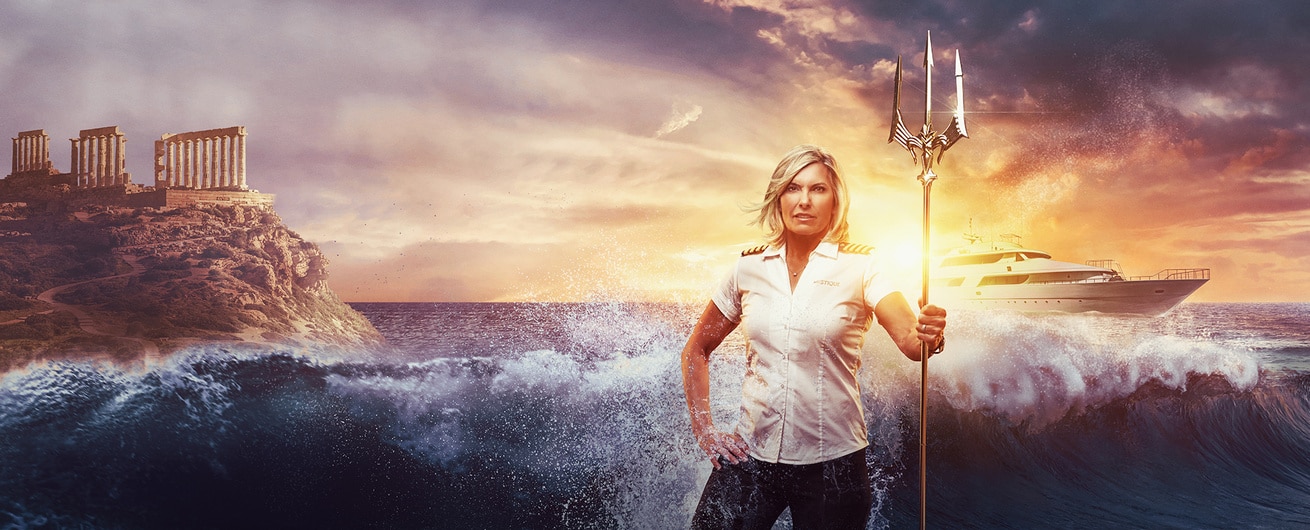
Latest Videos

Bri Muller to Elena Dubaich: "I Don't Want to Talk to You Right Now"

Elena Dubaich and Joe Bradley Make Out in Front of Bri Muller

Captain Sandy Yawn Tells Aesha Scott She Plans on Proposing to Leah
Recommended for you.

Kristen Kish Reveals Best & Worst Dishes on Season 10

Every Top Chef Fan Needs This New Exclusive Merch

Where to Watch Top Chef: Last Chance Kitchen Season 21
Yächtley Crëw will bring 'yacht rock' to Providence, with a Warwick native on board
If songs like “I'd Really Love to See You Tonight” and “Escape (The Piña Colada Song)” make you think of kicking back on a boat and cruising in the summertime, you’re not alone.
YouTube coined the genre “yacht rock” to describe the soft rock sound of the 1970s and '80s, and Warwick native Tom Gardner, guitarist with the band Yächtley Crëw , invites you to get on board with the vibes when their “Full Steam Ahead” tour stops at the Providence Performing Arts Center on Saturday, July 27.
“It’s like a feeling that reminds you of your childhood or first love. It’s nostalgia,” says Gardner, who goes by the stage name Tommy Buoy. “It’s actually a jazz-rock fusion that’s pretty hard to play. We had to step up our game to learn these songs, many of which were originally performed by high-quality studio musicians.”
After years performing solo and in bands across the region – maybe you’ve heard his song “Summertime in Rhode Island” with the rock/reggae band Someday Providence – Gardner moved to Los Angeles in 2010. He connected with six other musicians to form Yächtley Crëw, which performed for the first time in January 2017, and he says “it’s been kind of a rocket ride since then.”
Clad in nautical attire for shows, the band has performed with artists like Elliot Lurie, lead singer of the band Looking Glass, whose song “Brandy (You’re a Fine Girl)” is one of the covers Yächtley Crëw regularly includes in set lists. After signing with Jimmy Buffett’s Mailboat Records label, they also had a six-month residency in Las Vegas.
Need a break? Play the USA TODAY Daily Crossword Puzzle.
Born in 1983, Gardner, a Pilgrim High School and University of Rhode Island graduate, says he was drawn to the mellow sound of yacht rock even before it was so named. Songs like Steely Dan’s “Reeling in the Years,” “Don’t Bring Me Down” by ELO and “Rich Girl” by Hall & Oates are buoyant, he says.
As for the definition of yacht rock, he says that’s highly debated in the industry but generally revolves around big vocals and harmonies.
“We let the fans tell us what they want to hear,” Gardner says. “Some songs end up borderline yacht rock, but if the fans love it, we’ll play it. We also bring our own style. We’re faithful to the originals, but we are high-energy with choreography, banter and lights. We’re here to entertain!”
Yächtley Crëw performed several years ago at The Strand in Providence, but the group has multiple venues in the area on this year’s tour, including three in Massachusetts: Indian Ranch in Webster , South Shore Music Circus in Cohasset, and the Cape Cod Melody tent in Hyannis.
“The whole sailing vibe fits in with New England,” Gardner says, adding that he loves returning to his home state. “I’m always going to be proud of Rhode Island. It’s special when we see someone from here – it’s like one big town.”
If you go ...
What: Yächtley Crëw
When: Saturday, July 27, 8 p.m.
Where: Providence Performing Arts Center, 220 Weybosset St., Providence
Tickets: $10-$45
Info: ppacri.org , (401) 421-2787

IMAGES
VIDEO
COMMENTS
For sailing yachts between 30 and 50 feet, a crew of four to six is typically required. A small superyacht may have a crew of around 20 people, while a larger one may require a crew of 50 or more. The cost of hiring a full-time yacht crew can range from $50,000 to $200,000 per crew member per year.
Crewseekers is run by experienced, professional sailors offering a friendly and helpful service to yacht crew and owners. We are the original yacht crew introduction agency - established for over 25 years, offering amateur and professional sailing opportunities throughout the world. Amateur and professional yacht crewing positions available ...
When it comes to hiring a crew for a yacht over 80 feet in length, there are a few key considerations to keep in mind. The first is the size of the yacht. Depending on the size and layout of the yacht, the number of crew members required may vary. Larger yachts typically require a larger crew to manage maintenance, navigation, and housekeeping ...
Chief Engineer - 47m Private Motor Yacht. Western Med (Summer) / Croatia/Montenegro (Winter) Permanent. Qualifications: Y4/Y3. Experience: 3 Years +. Salary: 8000USD. Apply. Next →. The latest yacht crew jobs available onboard exclusive charter yachts and luxury private yachts with leading yacht crew recruitment company, Bluewater.
With the appropriate boat licenses, you can typically operate a boat up to 75 feet without a crew. However, most yachts need crew for docking, launching, caring for guests, and watching for danger or other boats. Without a crew, an autopilot feature may be crucial to help with keeping you on course. A crew can help because someone must always ...
Our crew database includes 5,133 Captains, 10,037 Deckhands, 2,947 Chief Engineers, 1,313 ETOs, 5,570 Chefs, 15,180 Stews, 1,469 Massage Therapists, etc. Here are some of the recently registered yacht crew members: Hundreds of live jobs on yachts and superyachts. Jobs for yacht crew in the Mediterranean, Caribbean, USA and other locations.
The best yacht jobs platform, aiming to connect superyacht recruiters and crew. Search jobs; Search crew; Pricing; FAQ; Courses. Login; Register; ... Crew Mess Stewardess 4:2 required for a 100M+ MY Rotational 15 Aug 2024 TBC Motor Yacht 100m Undisclosed. 22 Jul 2024. LinkedIn ...
The tips depend on the size of the Yacht and the guests, but a good estimate is 10 - 20% of the total weekly price of a Yacht. If you imagine a 50m (165 foot) Yacht with 9 crew, it typically charters for $150,000 - $250,000 per week. For simplicity, let's add a 15% tip for $200,000/wk.
Yacht crew is a service job at its core, and every yacht owner is looking for service-oriented people who understand how to deliver a hotel-quality living and restaurant-quality fine dining. ... Two key certifications are required for yacht crew. Employers look for the STCW (Standards of Training, Certification and Watch-keeping for Seafarers ...
Generally speaking, smaller superyachts between 24-30m (80-100ft) in size will require a crew of between 2 and 8 members, whereas mid-sized yachts between 30-60m (100-200ft) will require between 8 and 20 crew members. Larger superyachts that are over 60m (200ft) in size will usually have a much bigger crew of over 20 people, whereas yachts over ...
Yacht crew are held to the highest standards of professionalism, catering to superyacht owners and guests to create the ultimate yachting experience. ... While qualifications are required, your skills that you have might be the reason you get that dream job. Many boats, especially charter yachts, seek out crew with additional skills, whether it ...
Qualifications required to work on board a yacht. All crew, regardless of their position on board, need to have completed the STCW Basic Safety Training along with obtaining a recognised Seafarers medical certificate, the most popular being the ENG1 which is issued by an MCA ( Maritime and Coastguard Agency) professional medic.
The First Mate or Chief Officer is the right hand of the Captain. Takes command of the yacht from Captain when required. Shares Captain's responsibilities as required. Chief Officer. €3,000 - €13,500. 2nd Officer. €3,000 - €8,000. 3rd Officer. €2,500 - €6,000.
About the Yacht Positions. The diversity and opportunities to work aboard superyachts around the world are endless. The yachts range in size from 60ft to 600ft with crew of 1 - 100 crew members in four primary departments. Each department is responsible for a unique set of tasks aboard and is suited for individuals with specific skillsets and ...
Get information on job descriptions, skills and experience required to be hired, as well as the expected salary for the position. From entry level yacht jobs (ie. deckhand or steward) to a career path in the yachting industry, understand how each crew member contributes to the efficient operation of a yacht. Yacht Crew: Deck Department Captain
The full course comprises four modules/certificates: Personal Survival Techniques. Fire Fighting and Fire Prevention. Elementary First Aid. Personal Safety and Social Responsibility. This is the STCW minimum qualifications to work on ships and on commercial yachts. When you book our Deckhand and Stewardess packages you also get an included STCW ...
The delivery of a private yacht by a paid or unpaid delivery skipper and crew is not of itself commercial use of the yacht. However, if there are paying passengers on board then the voyage is indeed classified as commercial in which case the vessel, skipper and crew will need to comply with any relevant commercial codes of practice and manning ...
Working hours for yacht crew members can vary depending on the yacht's schedule and guest requirements. Crew members may work long hours, often 12-16 hours per day, during busy charter seasons. However, there may also be periods of downtime between charters. Living conditions on a yacht can be tight, with shared cabins and limited personal space.
In the super yacht world, it is likely that a large number of the below crew will be involved for each yacht. Wow, the staff required to operate a yacht... Share on X. Here is an overview of the crew involved in building, maintaining, and running these floating mansions: Deck Crew. Yacht Captain - Is a highly experienced and professional ...
Working as a Crew Chef (working under the Head Chef and making meals for all the members of the Superyacht crew) is a great entry point into this role. 6. Bosun. "Bosun" is another term for "Senior Deckhand.". Their role is to take charge of daily cleaning and maintenance tasks, as well as drive the yachts tenders and (if on a larger ...
A -To run a charter yacht, you are required to comply with Flag State regulations irrespective of where in the world you operate. To operate a US flagged yacht, you would need to be US Coastguard qualified such as a 50 ton or "6 pack". Other islands have the authority to confine a charter boat to harbor if the Captain is not properly licensed.
Here's the truth about yacht crew life. It can be all the fun, sunshine, exploration and travel - but that is not the job. Yachting is an industry of extreme highs and extreme lows. Not all yachts are the same. ... You will also be required to cater to the needs of yacht owners or charter guests. Service, housekeeping and laundry form the ...
The USCG will require a licensed captain on any vessel 200 gross tons or greater (46 CFR 15.805). So that will be the absolute maximum, however that doesn't make it a good idea to plan on running your own 110 footer. It depends how much time you want to put into the yacht.
The USCGC Oliver Henry crew is currently towing the motor yacht Black Pearl 1, located approximately 200 nautical miles west of the Republic of Palau this past Liberation weekend after responding to a distress call. "Our primary concern is the safety of everyone aboard the Black Pearl 1. The swift ...
Investigators have reportedly inspected a carrier ship that was in the same area as the couple's boat — named Theros — at the outset of its voyage, but the results of the probe have not been ...
The USCGC Oliver Henry (WPC 1140) crew is towing the motor yacht Black Pearl 1, located approximately 200 nautical miles west of the Republic of Palau, after responding to a distress call on Sunday.
SANTA RITA, Guam — The USCGC Oliver Henry (WPC 1140) crew is currently towing the motor yacht Black Pearl 1, located approximately 200 nautical miles west of the Republic of Palau on July 21 ...
From the very beginning, the Mustique crew has been plagued with drama, both personal and in the form of yacht-related issues. And as a new preview for Episode 7 shows, the problems aren't ending ...
YouTube coined the genre "yacht rock" to describe the soft rock sound of the 1970s and '80s, and Warwick native Tom Gardner, guitarist with the band Yächtley Crëw, invites you to get on ...
The Georgia National Fair has announced seven acts for its 2024 concert lineup: Cooper Alan, Yachtley Crew, Warrant, West Love & The 478 Band, Ginuwine, The Bellamy Brothers and Josh Turner.